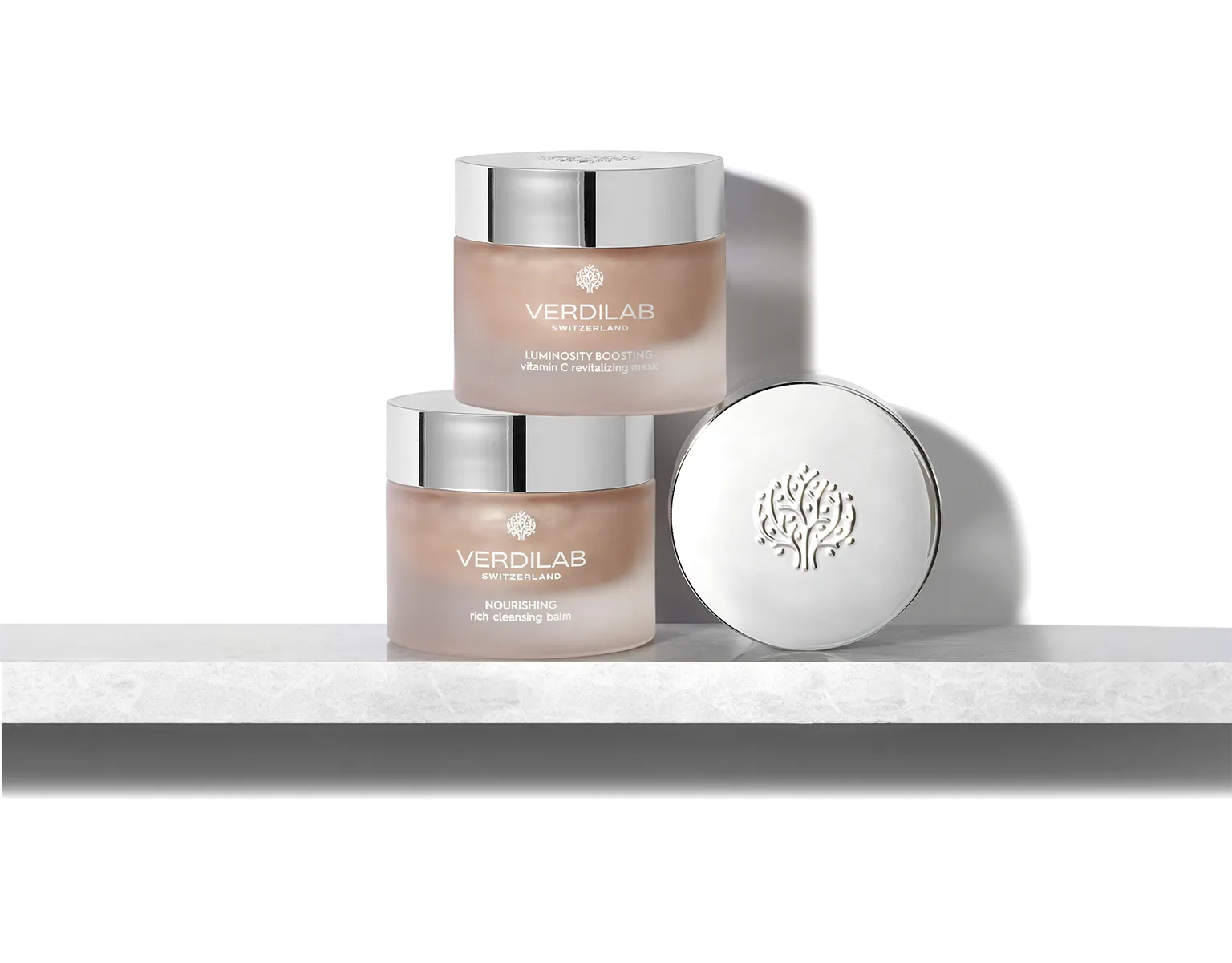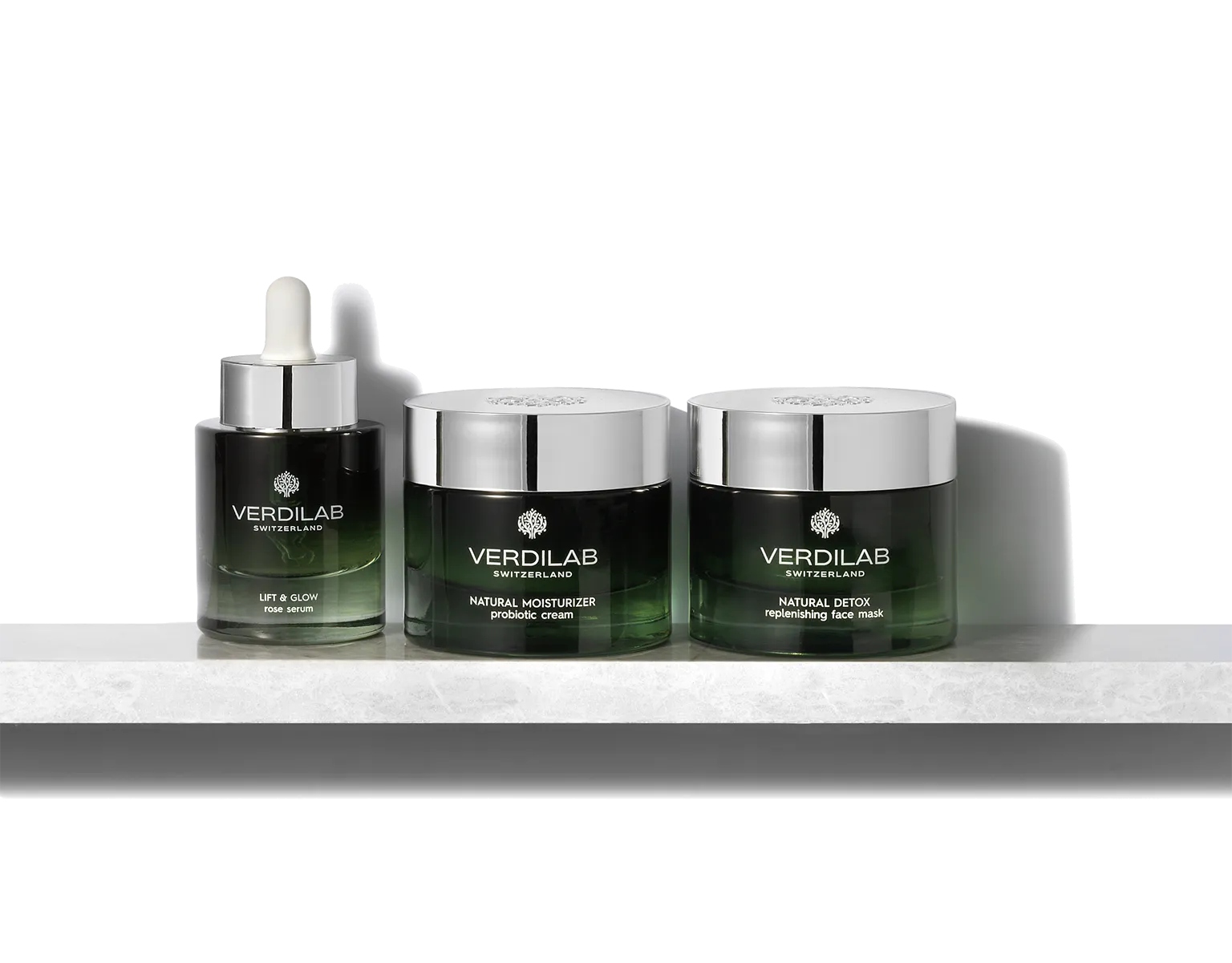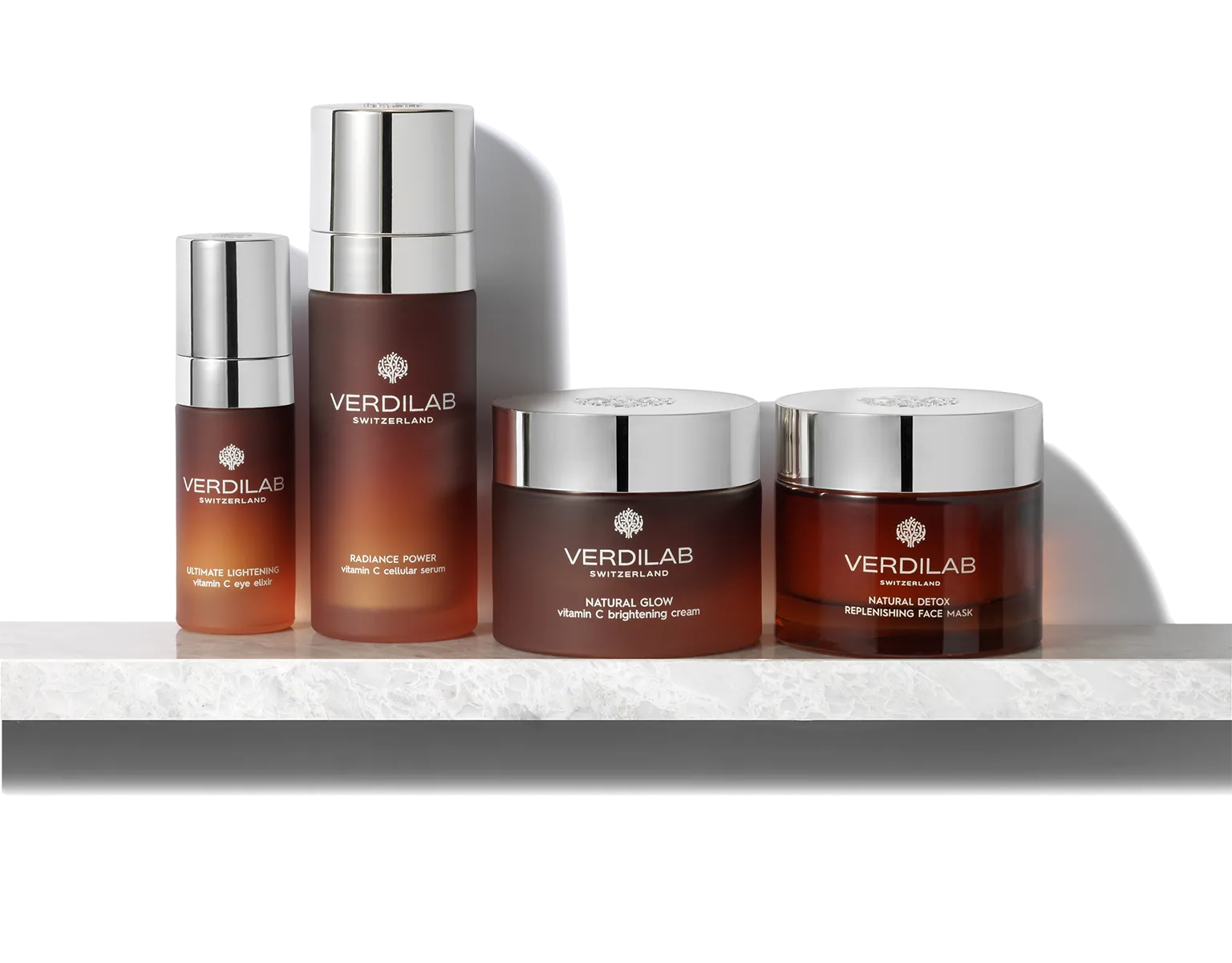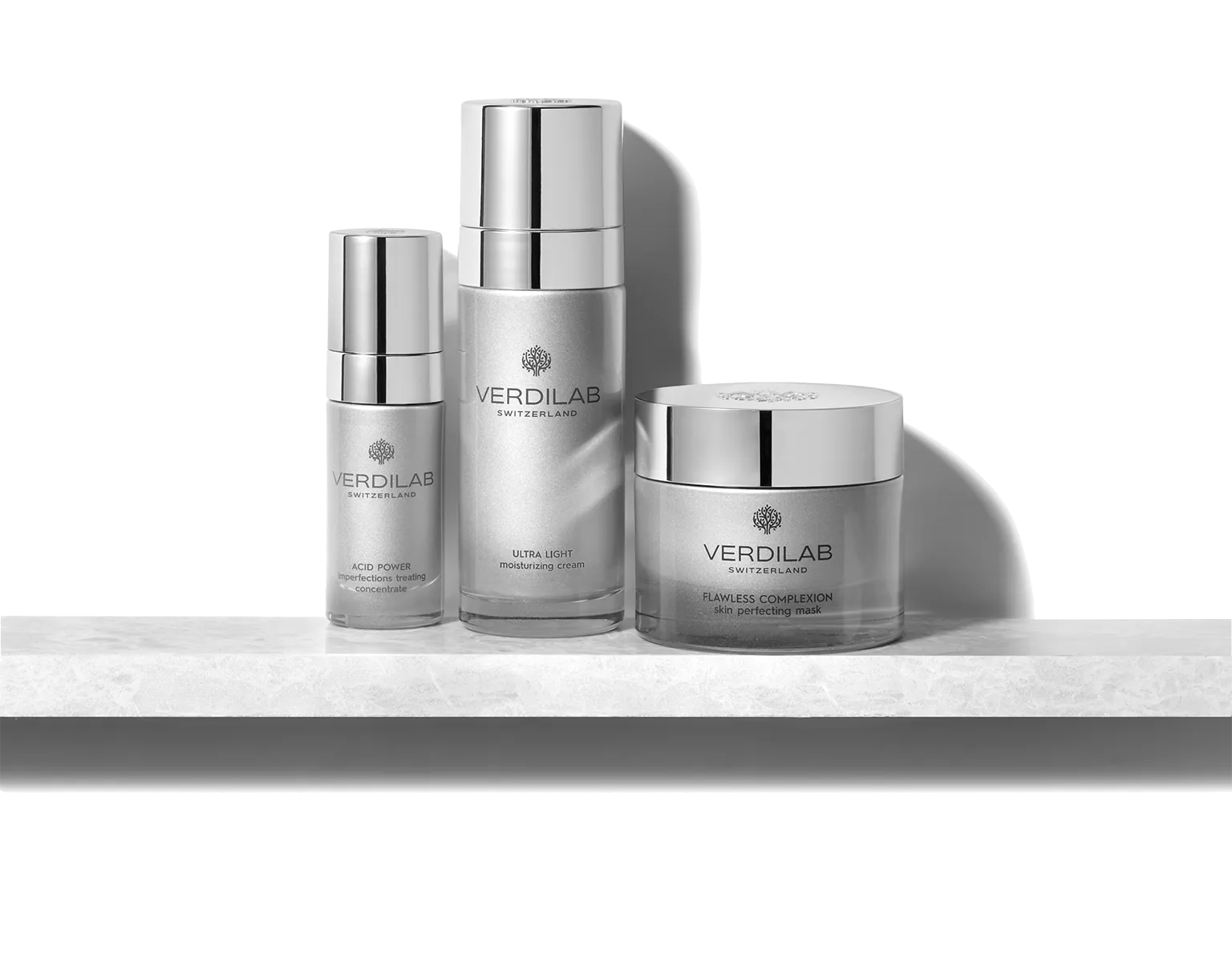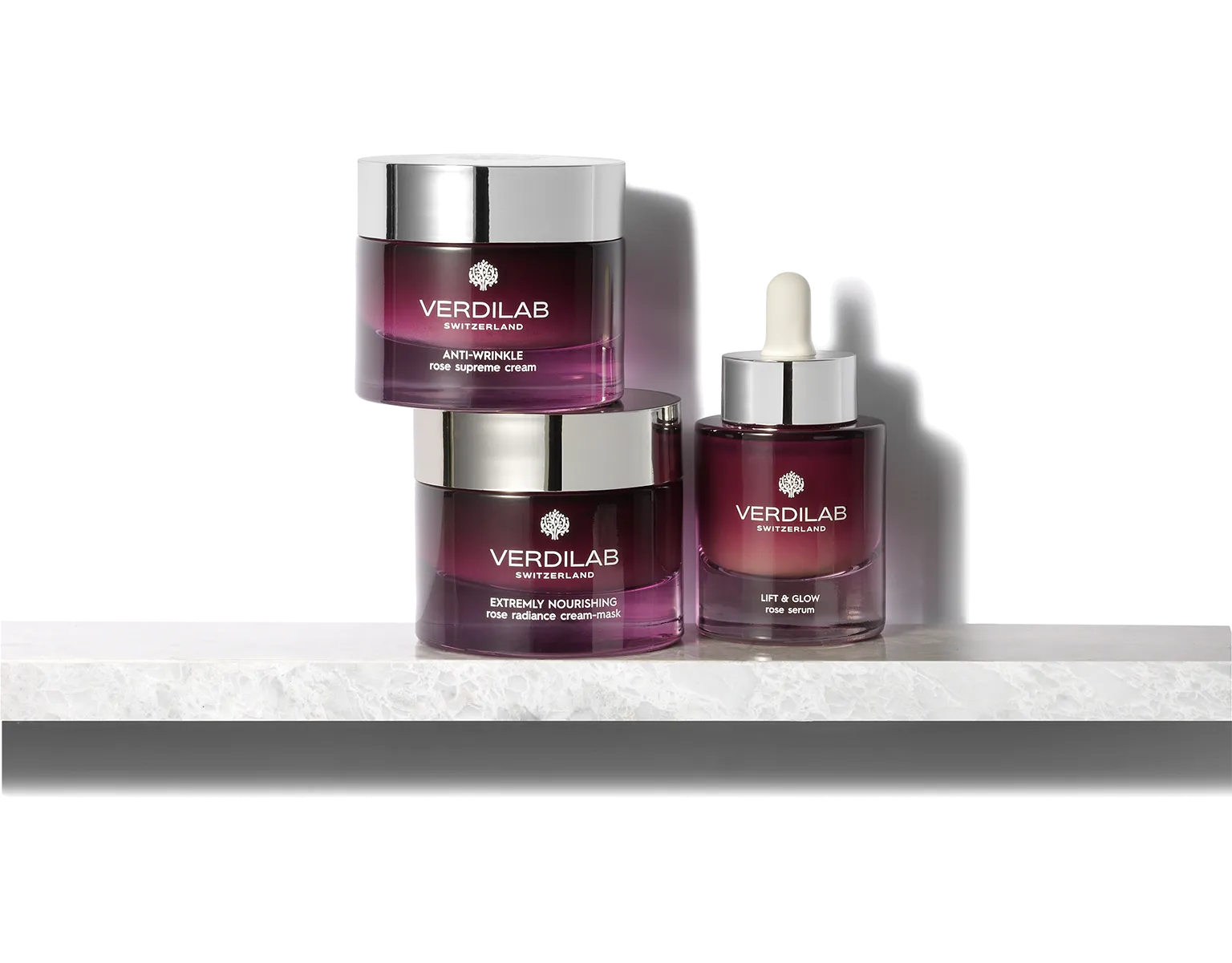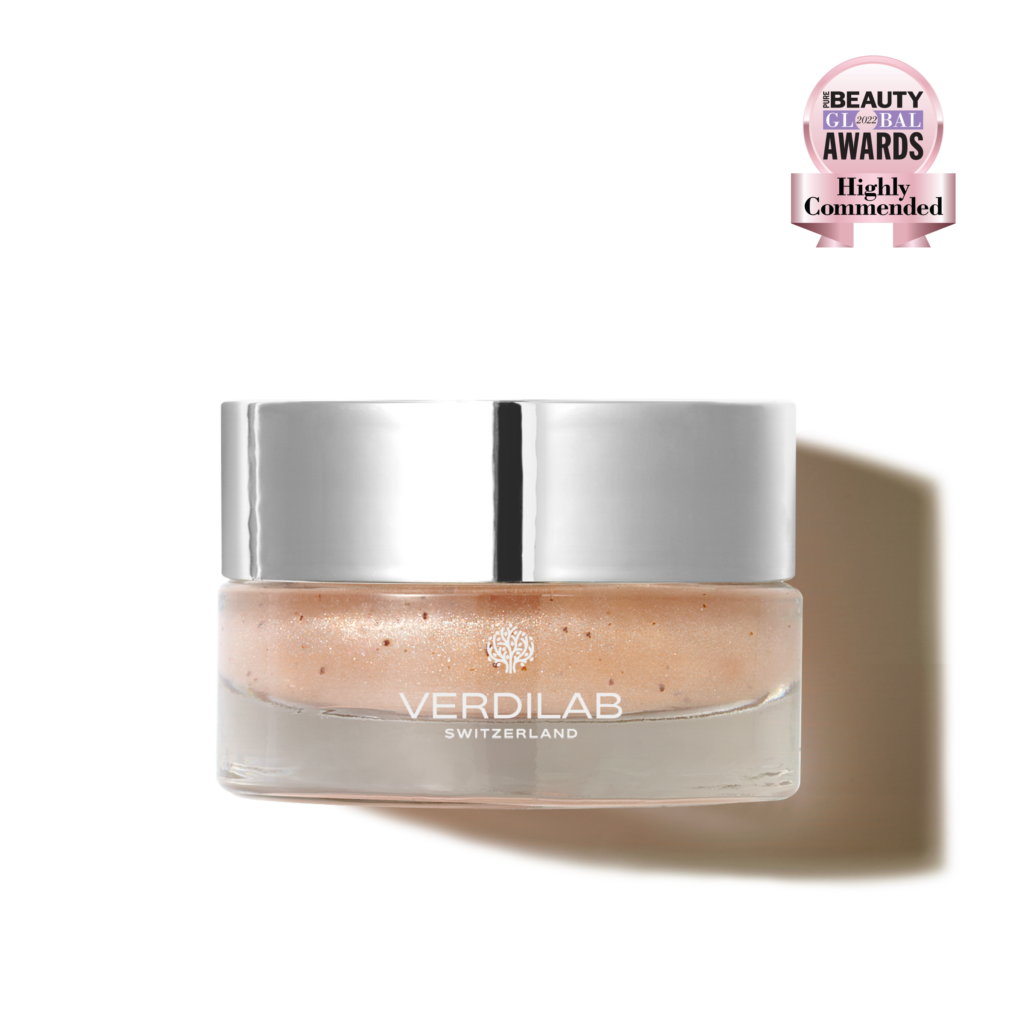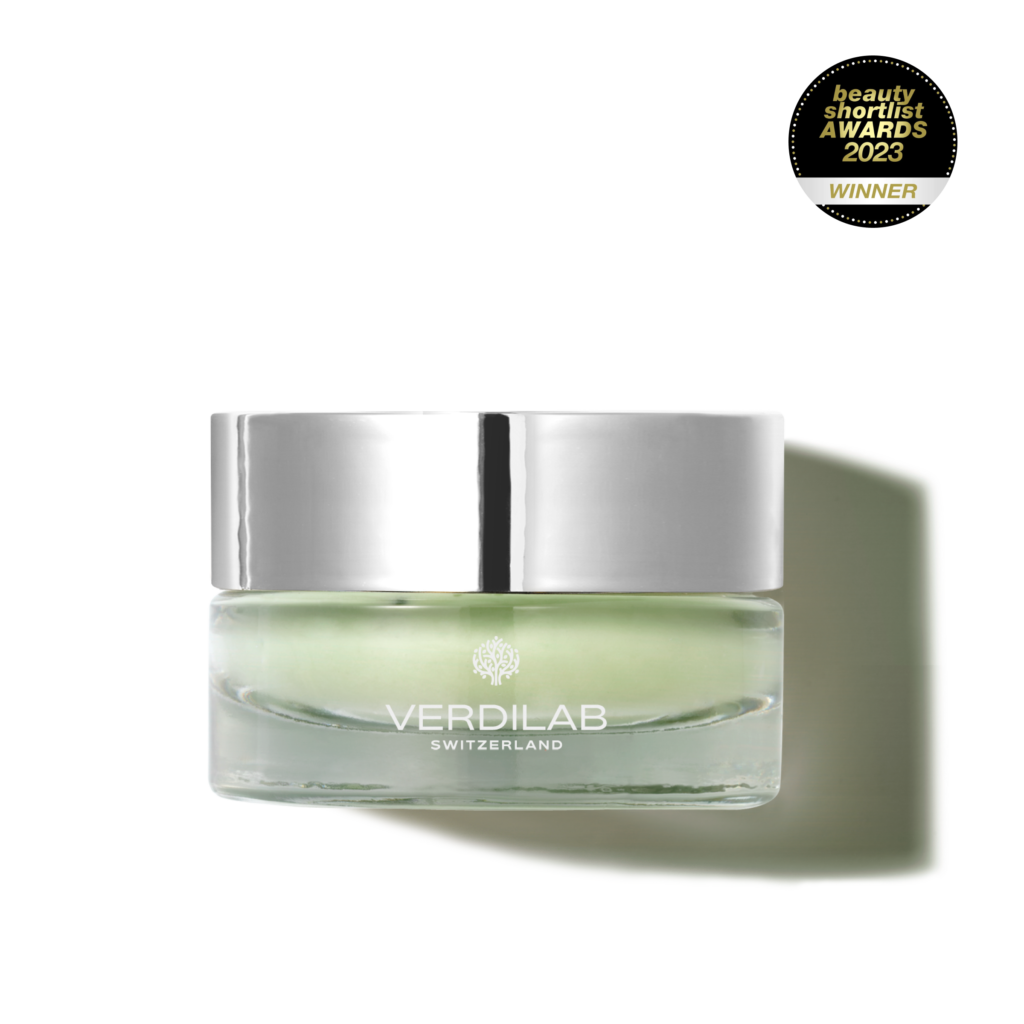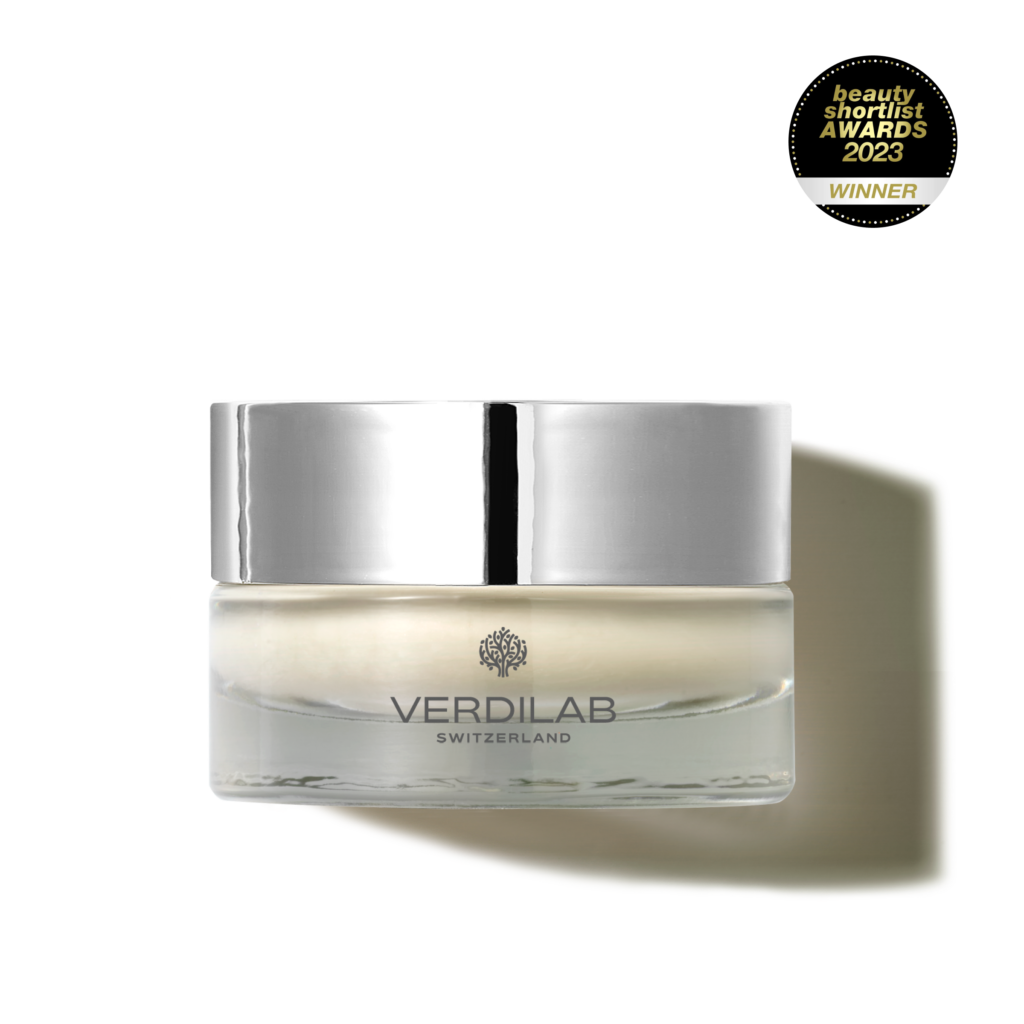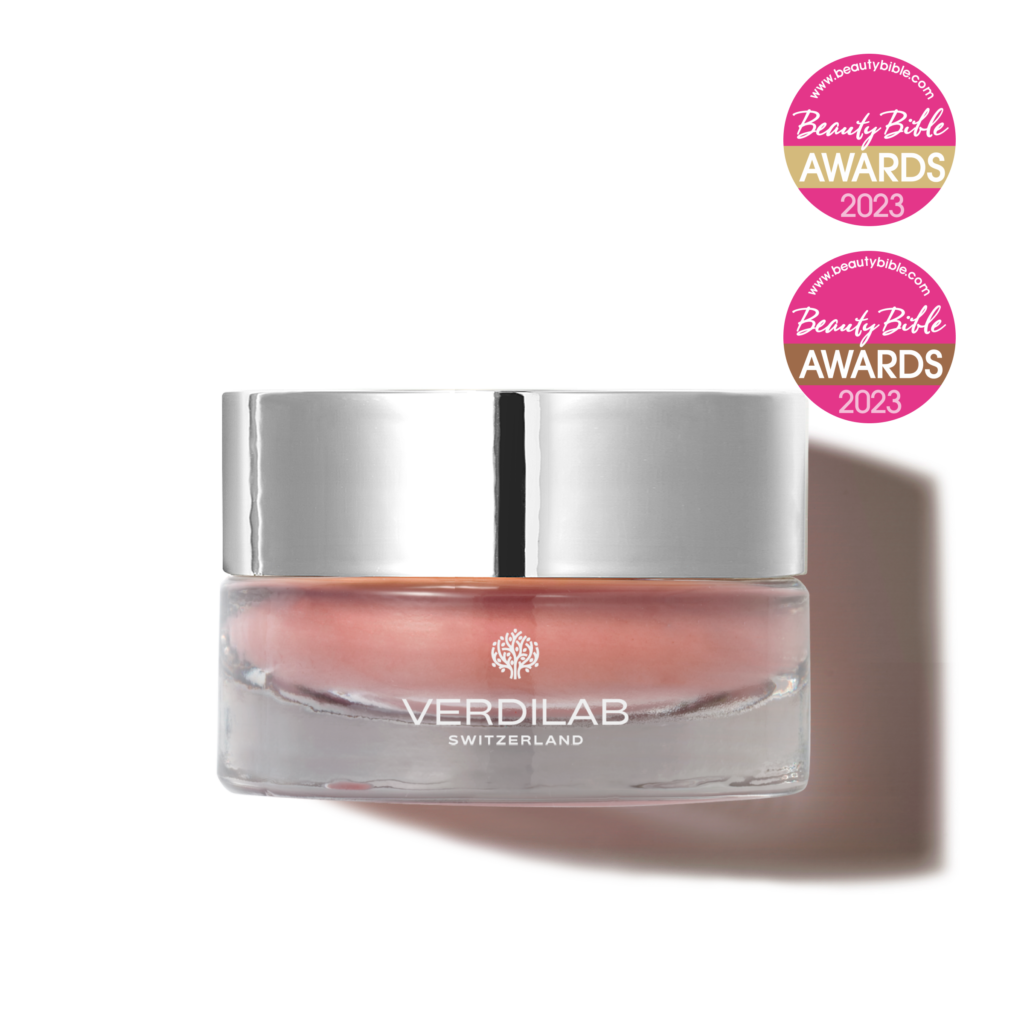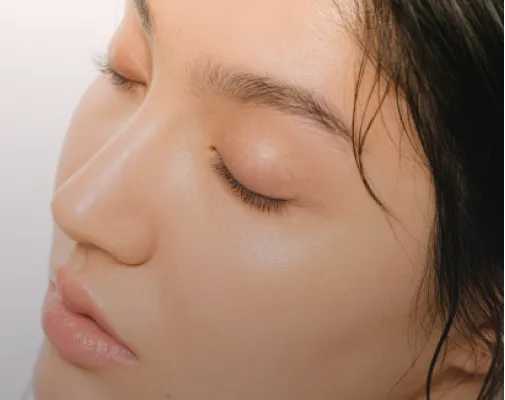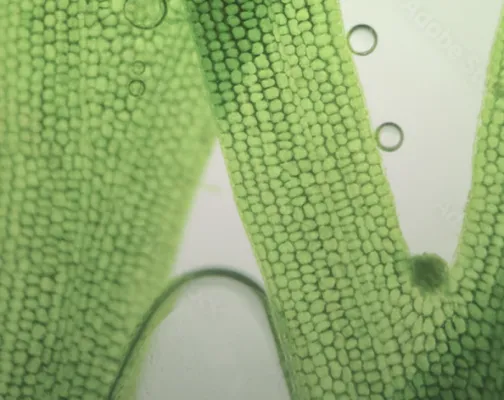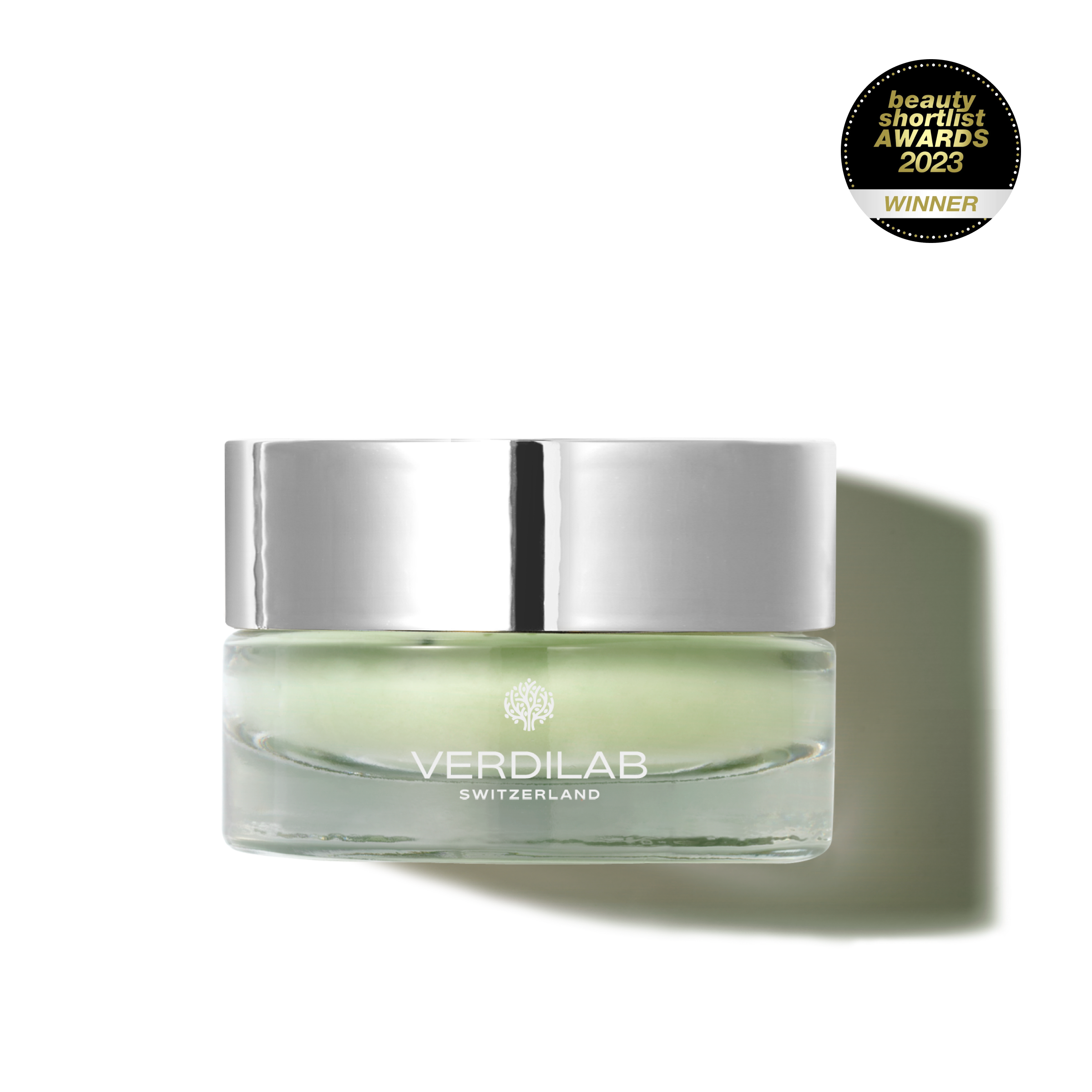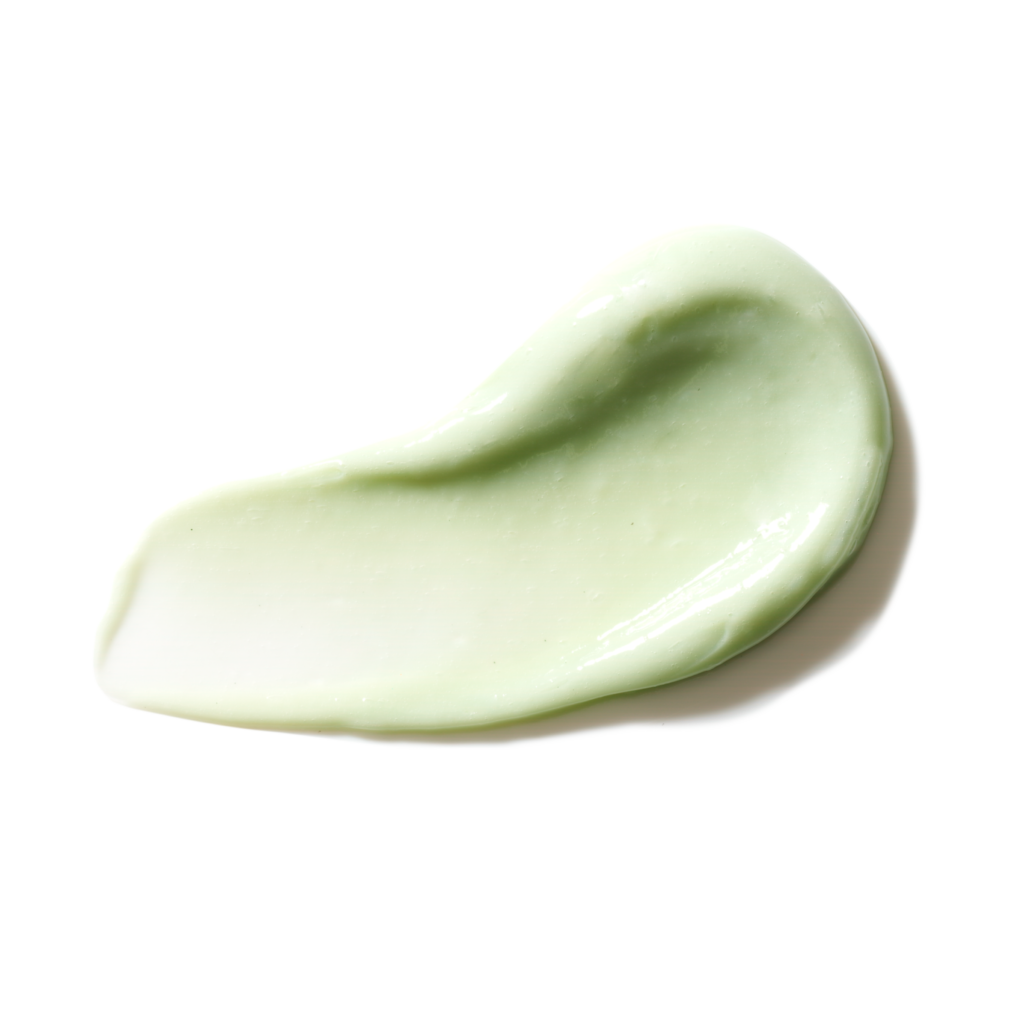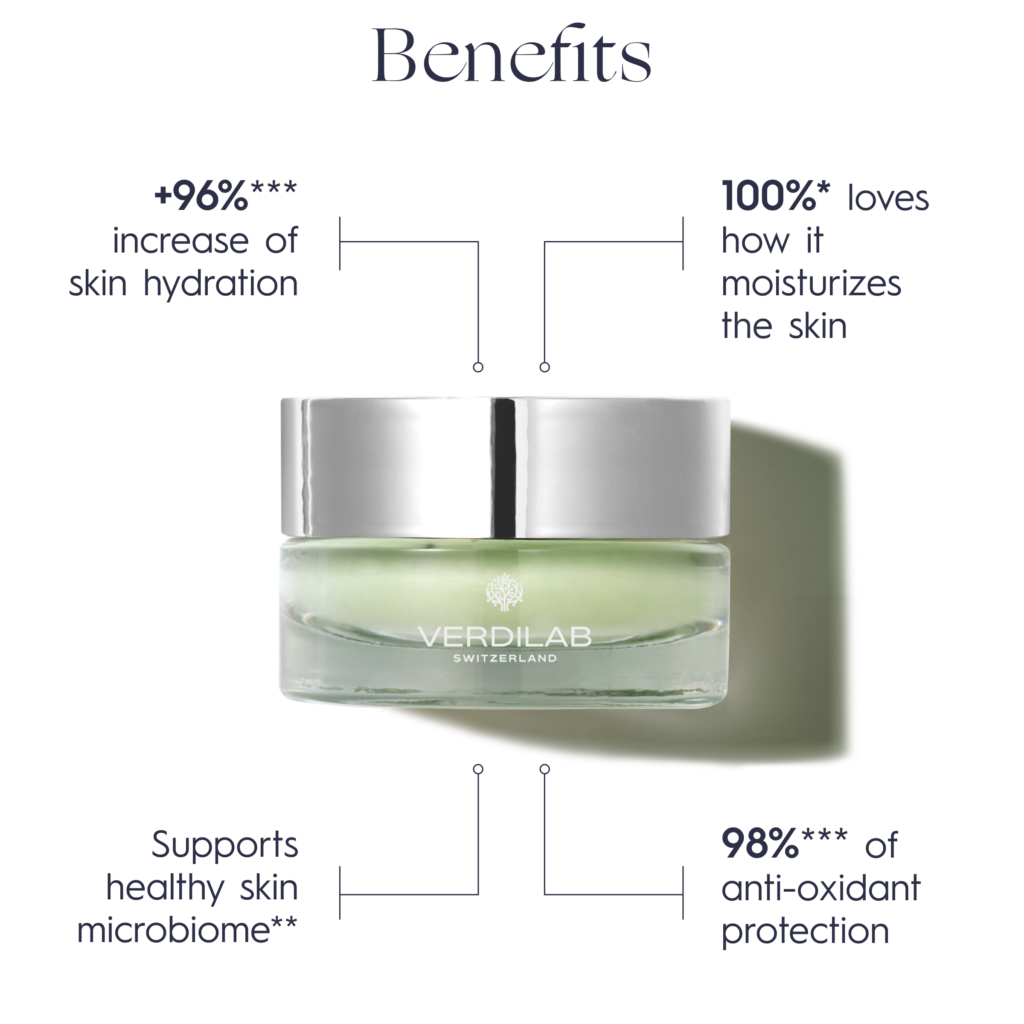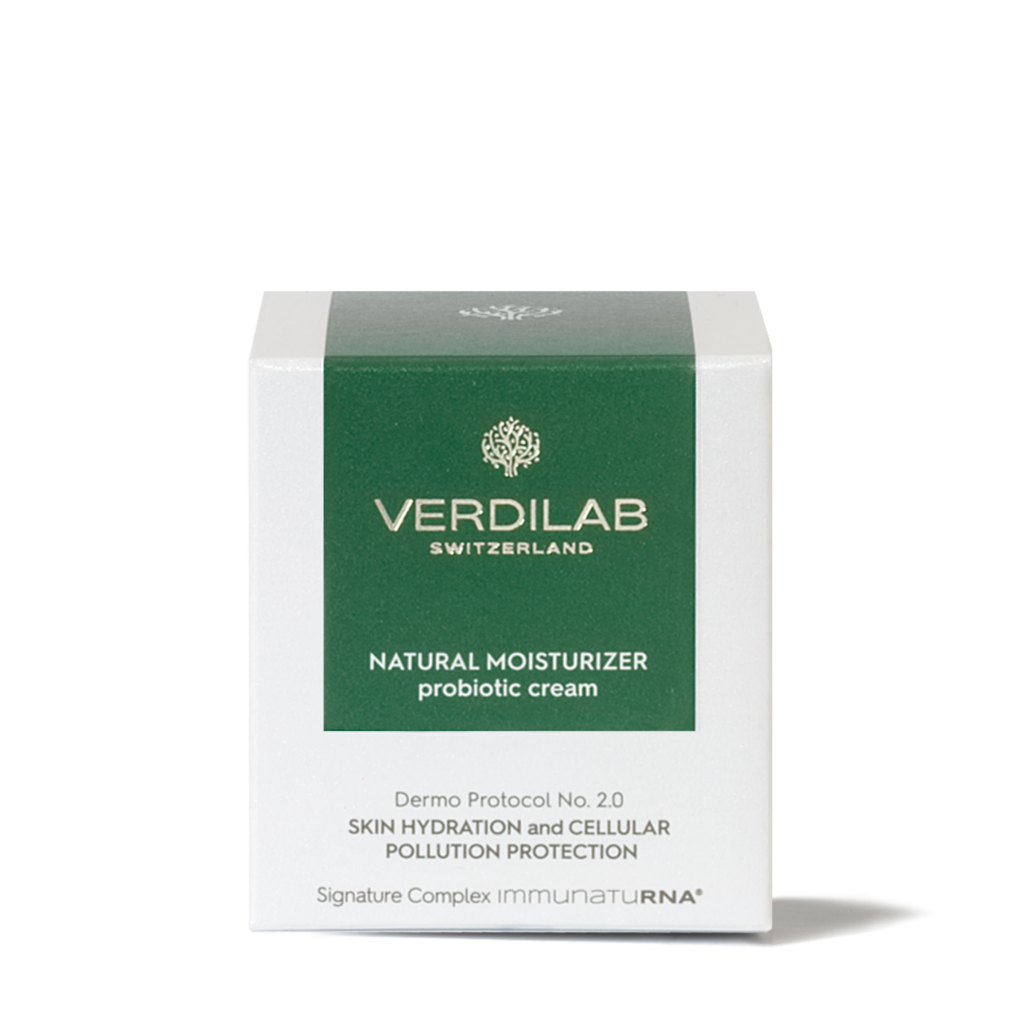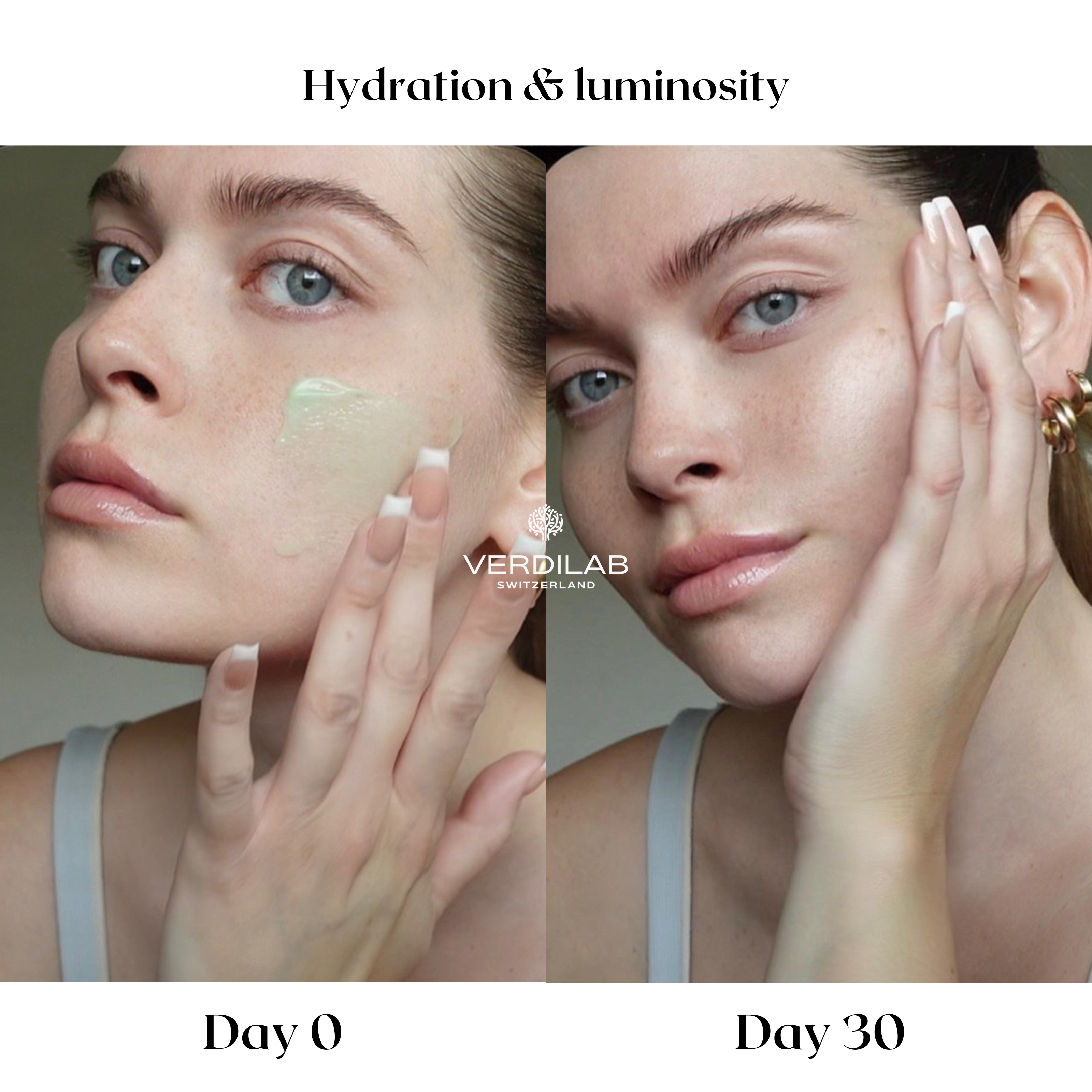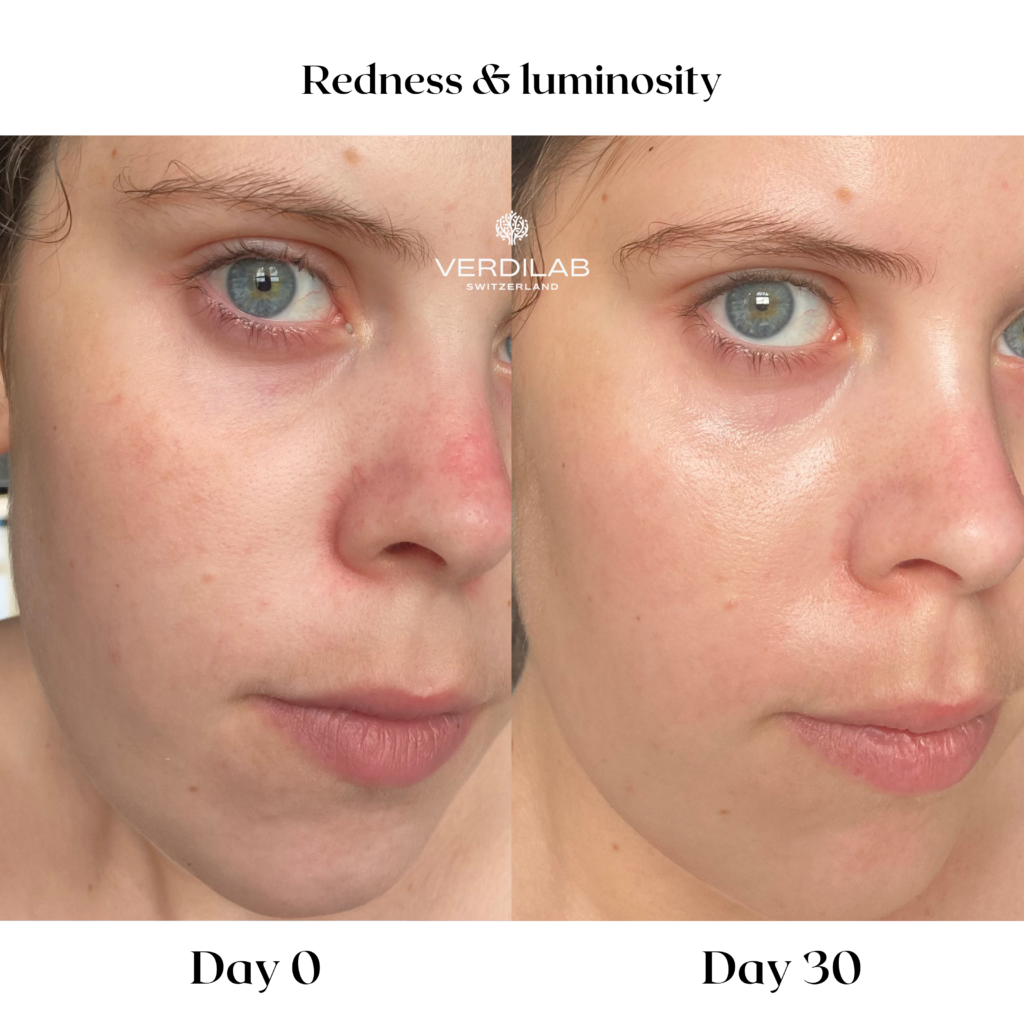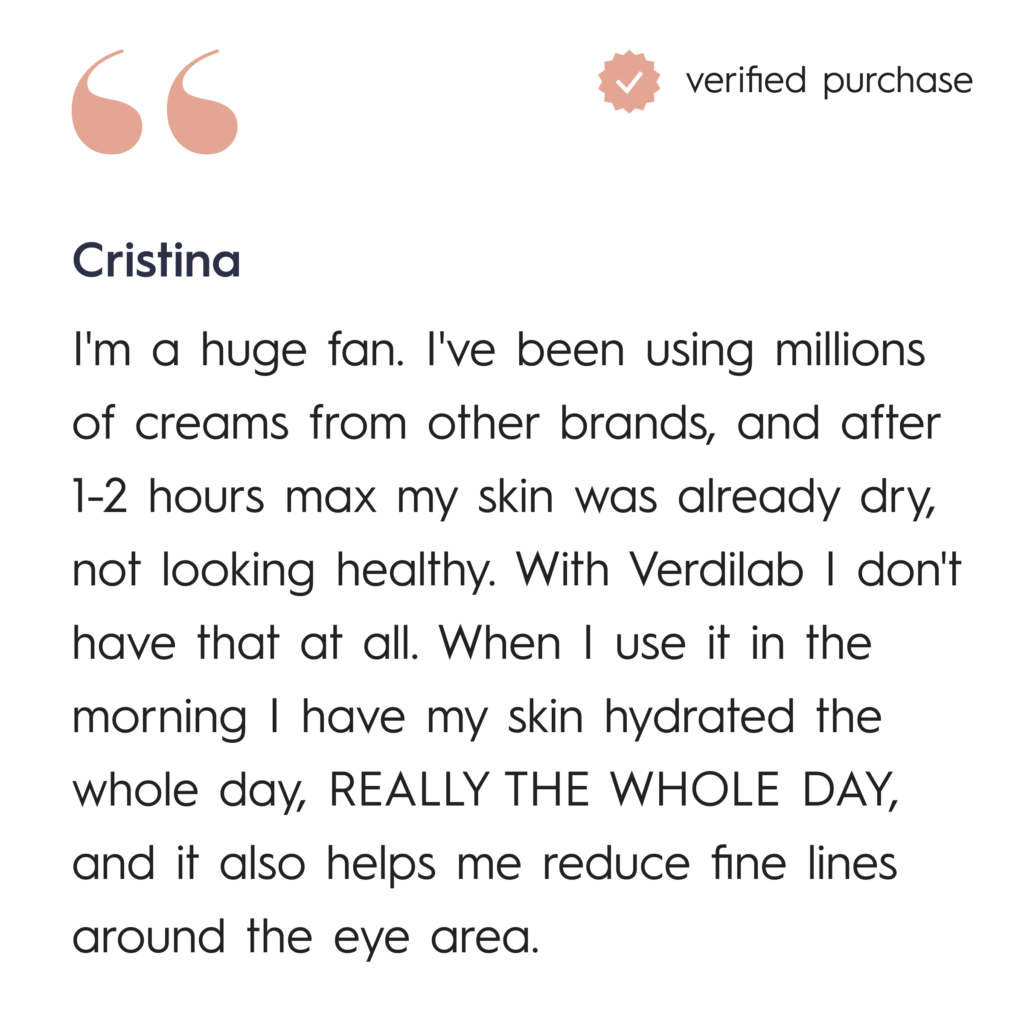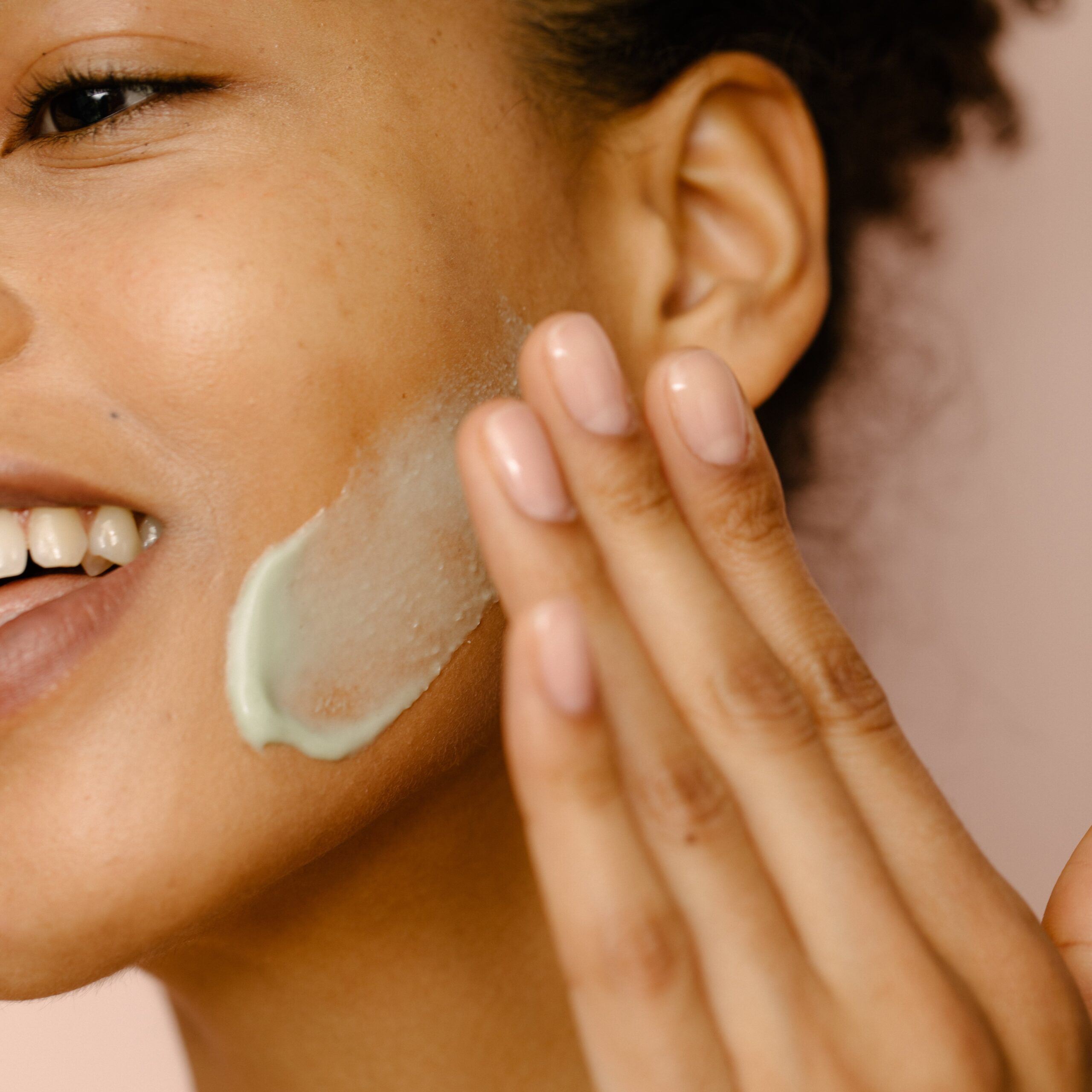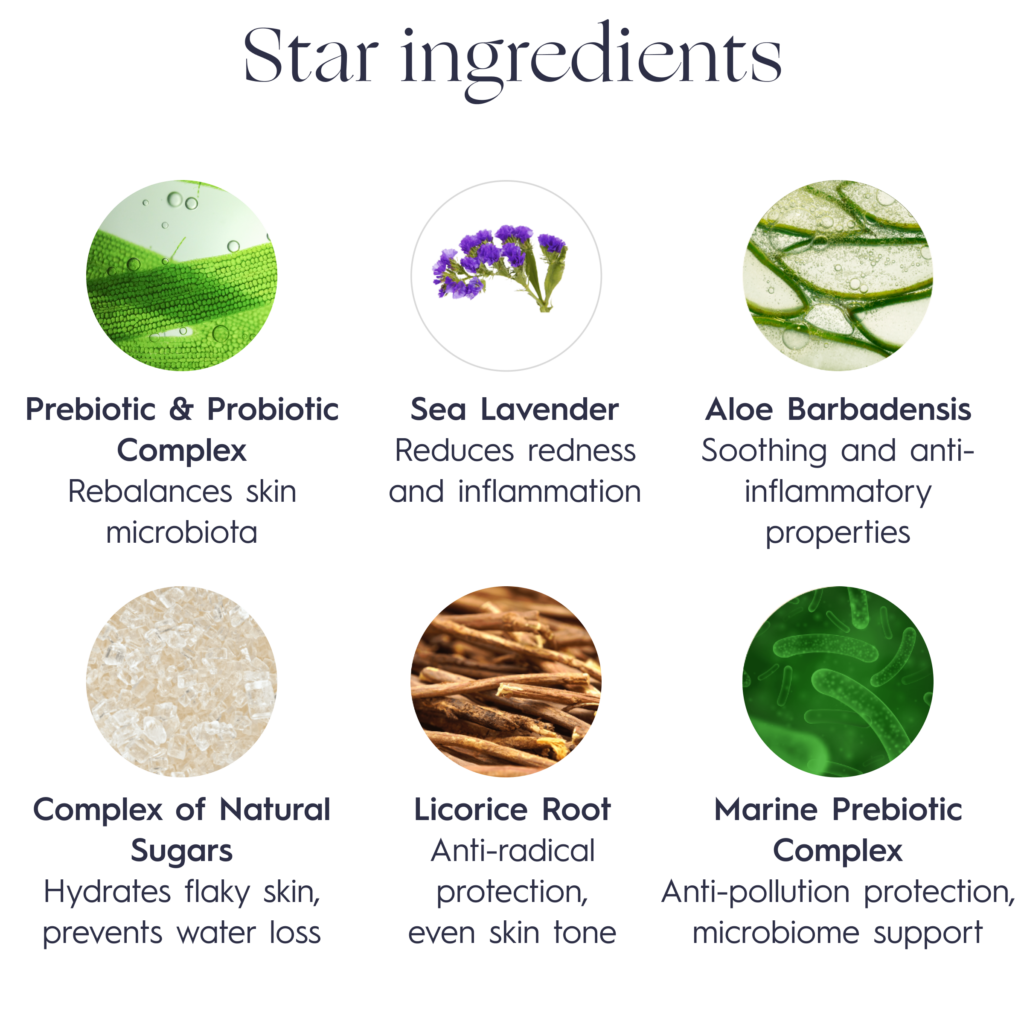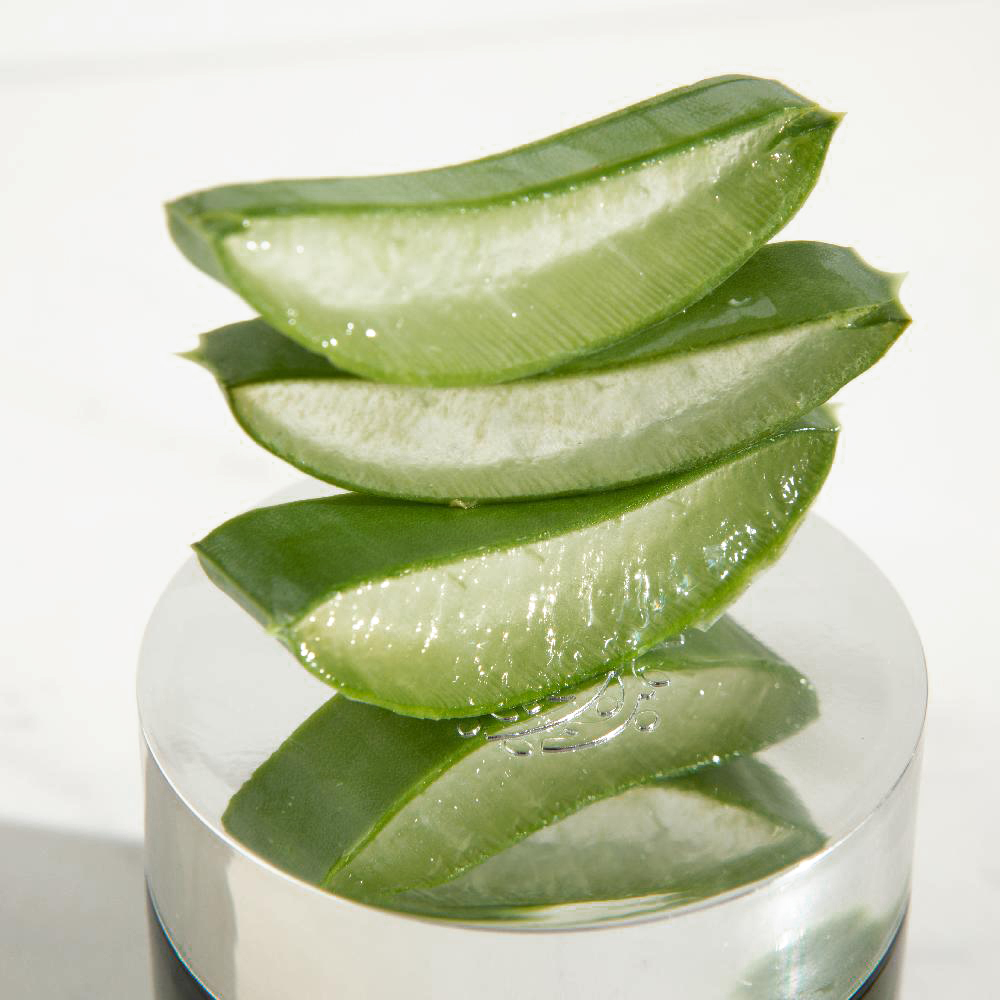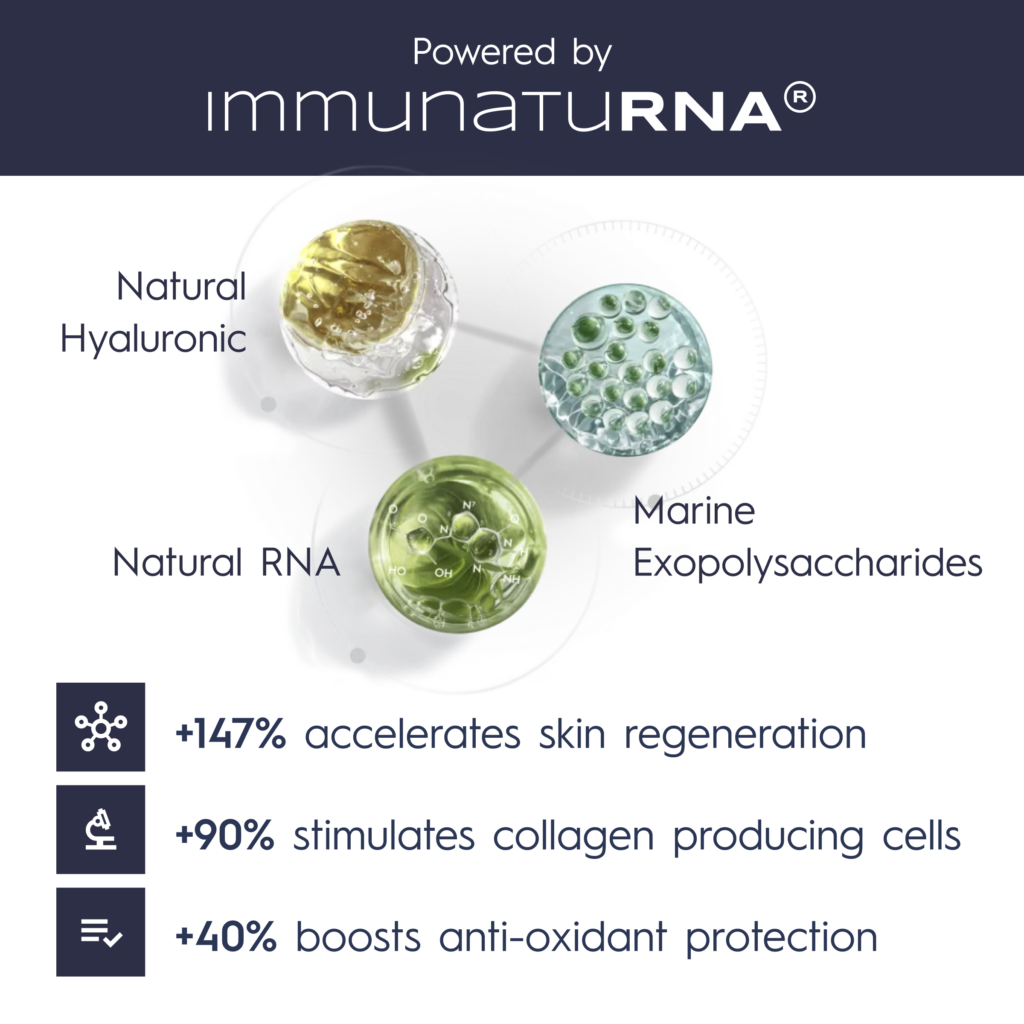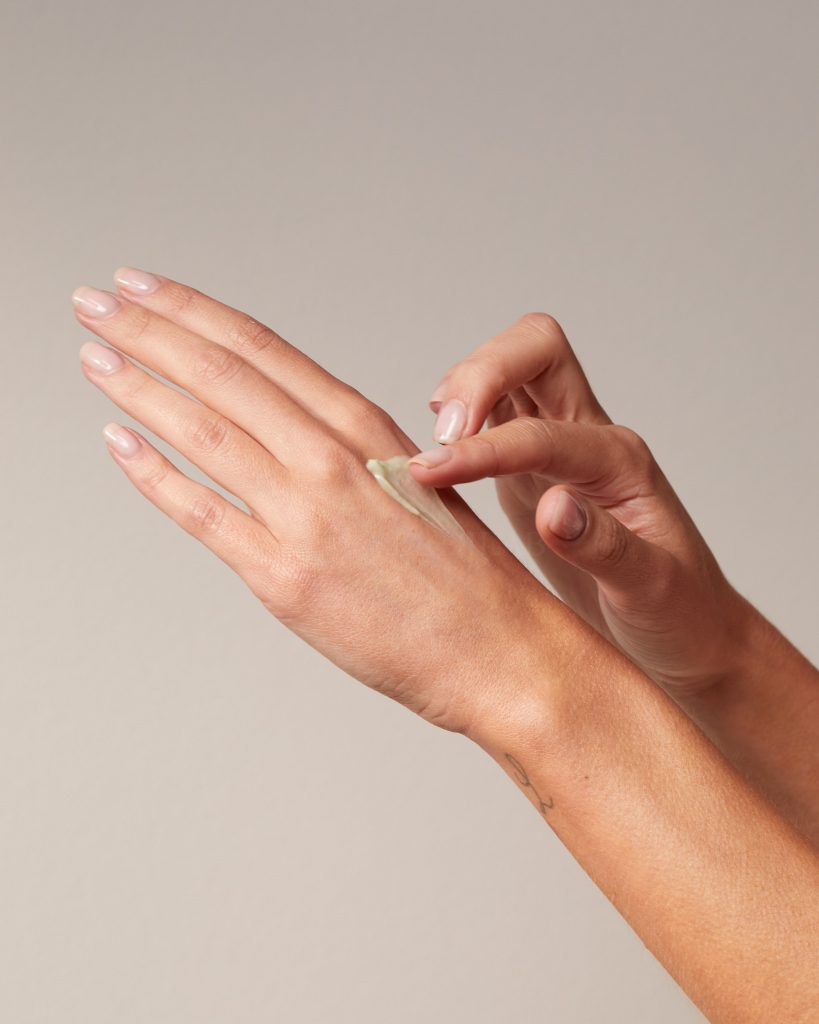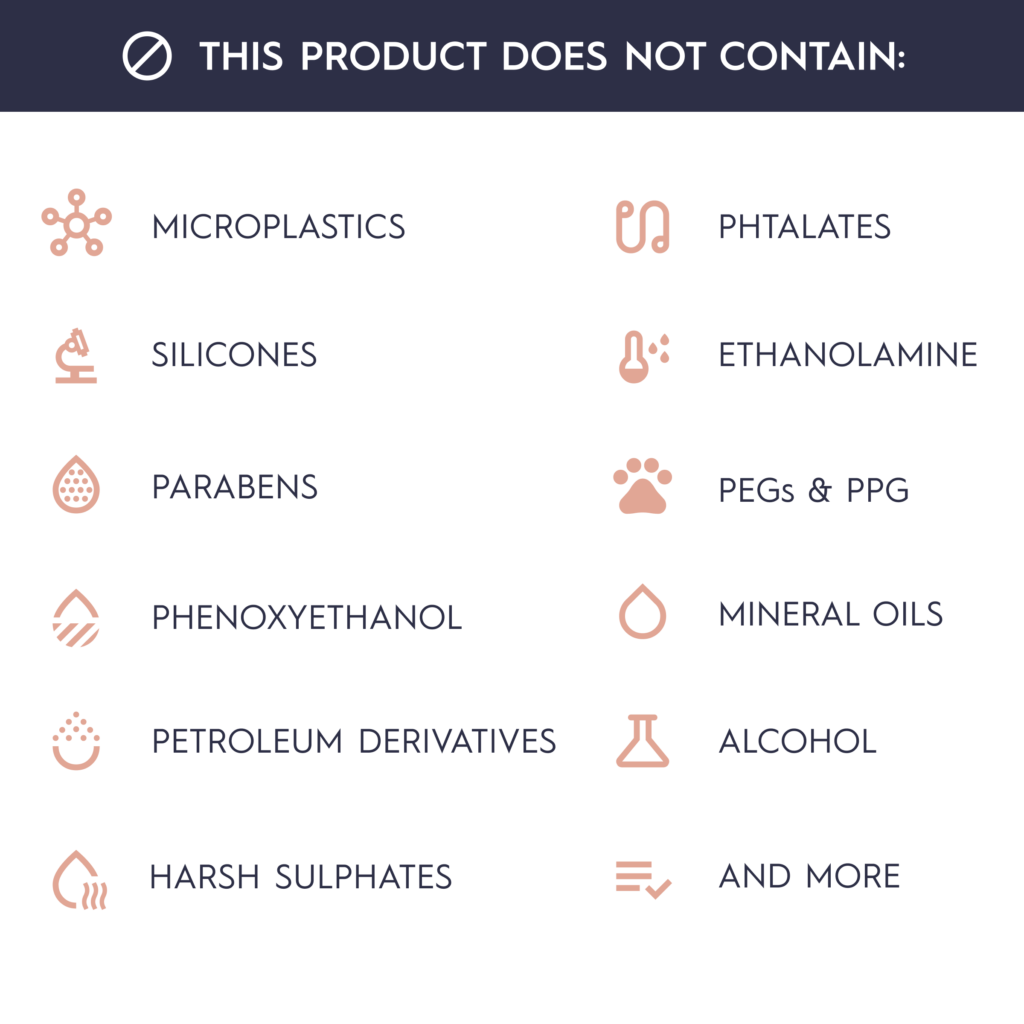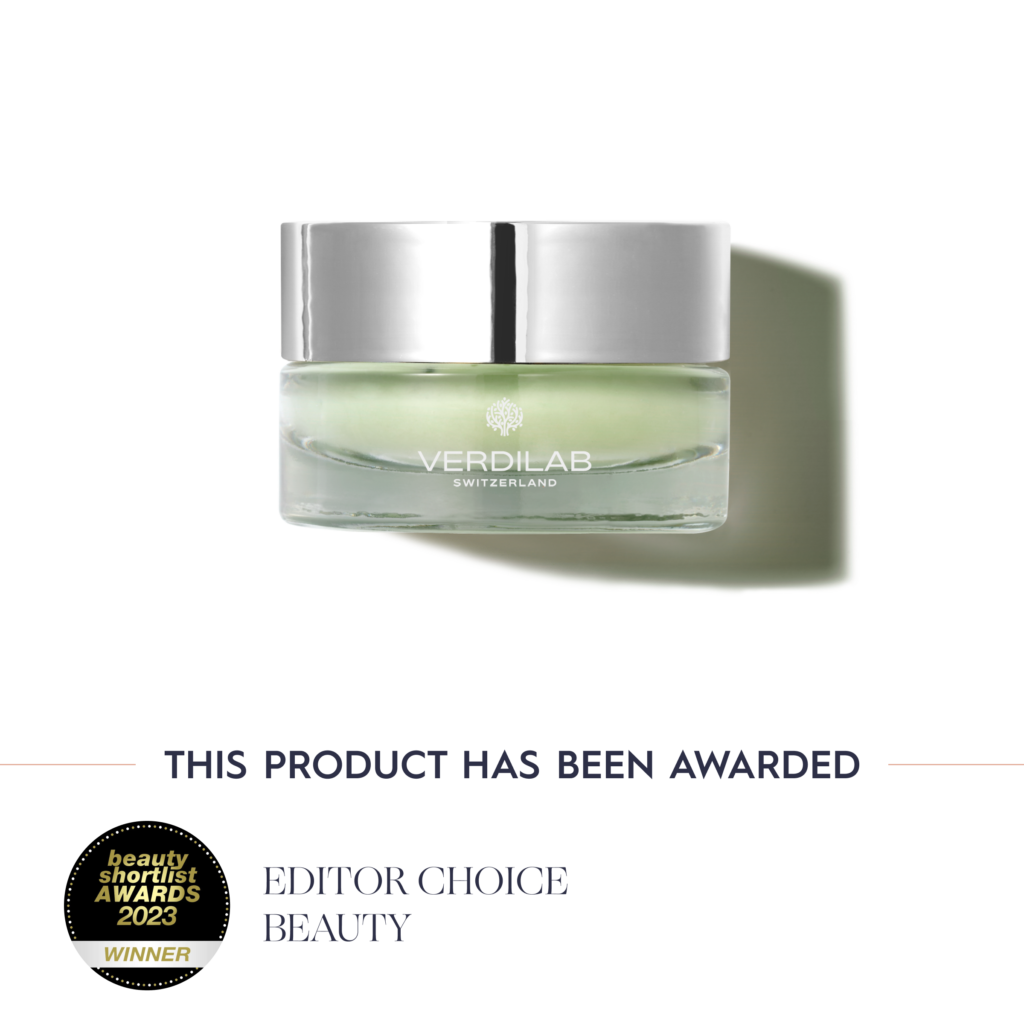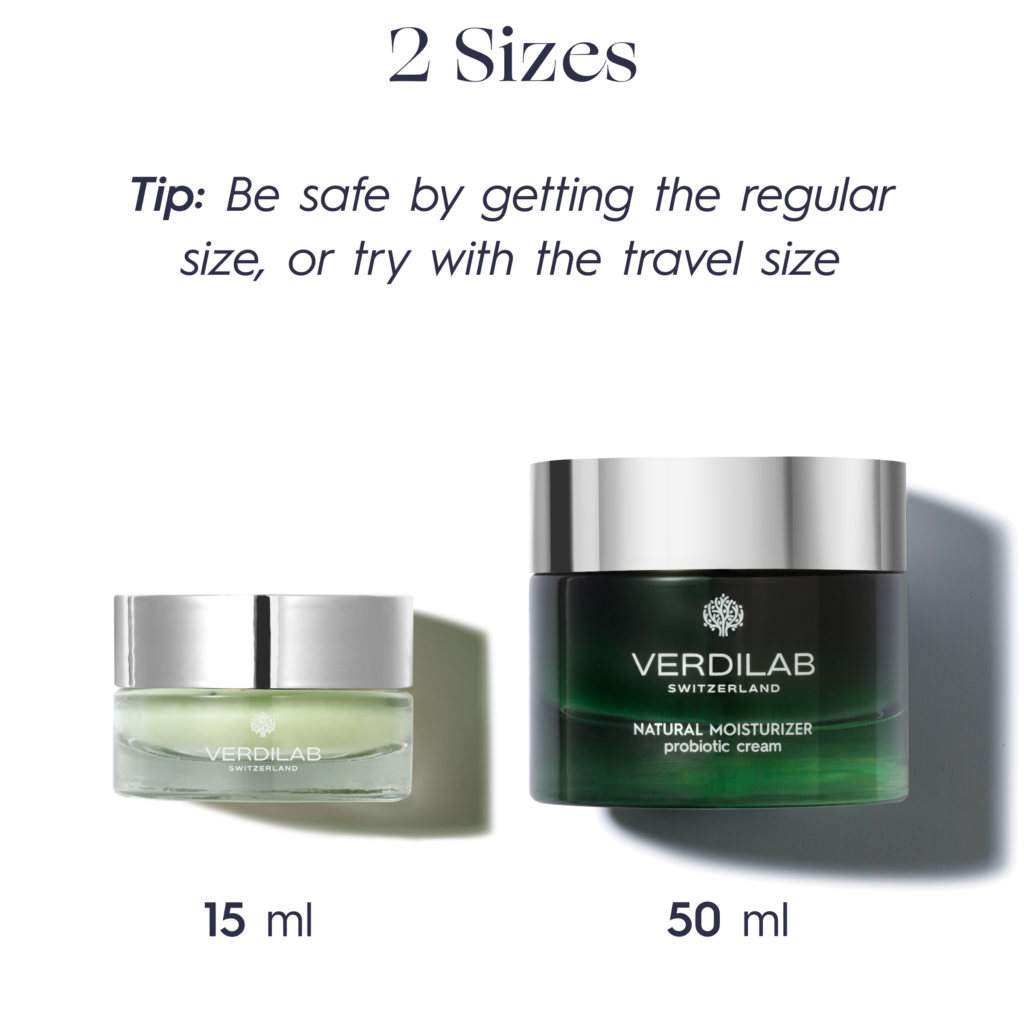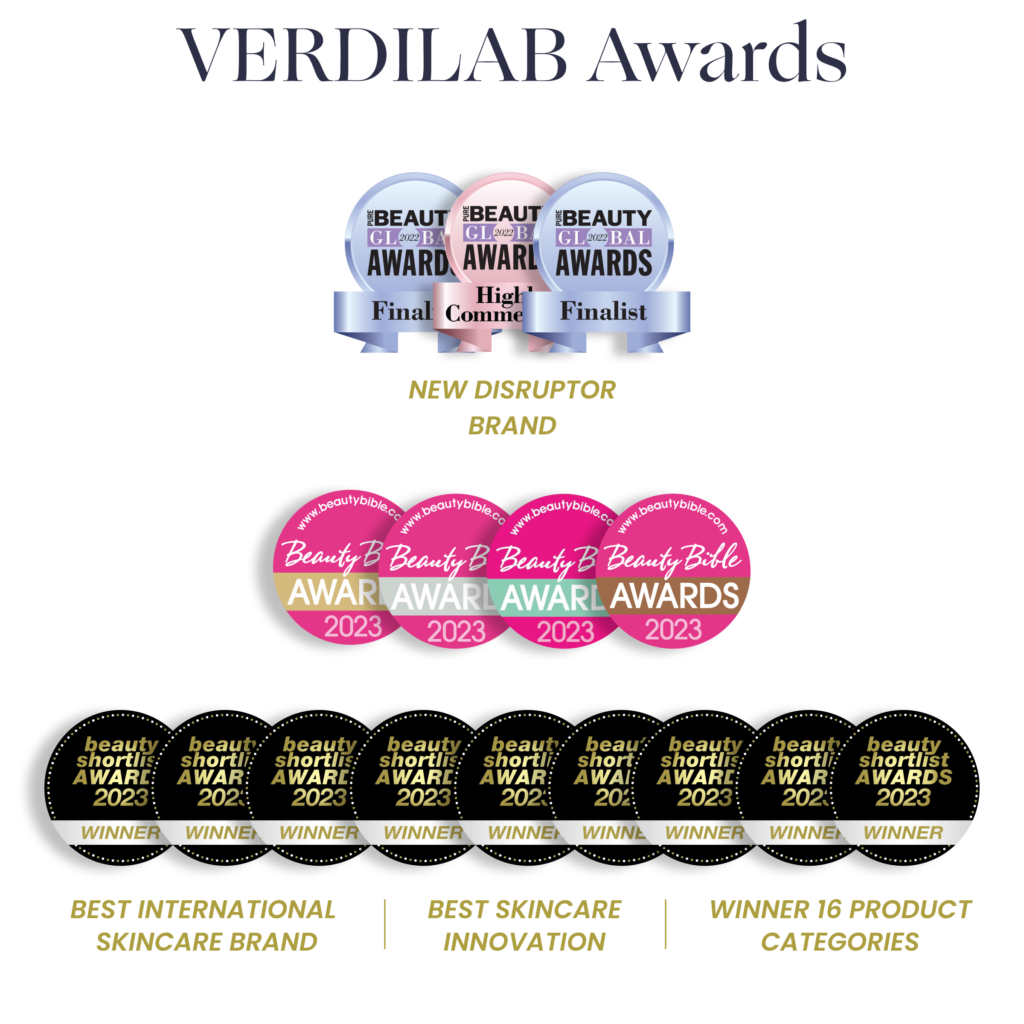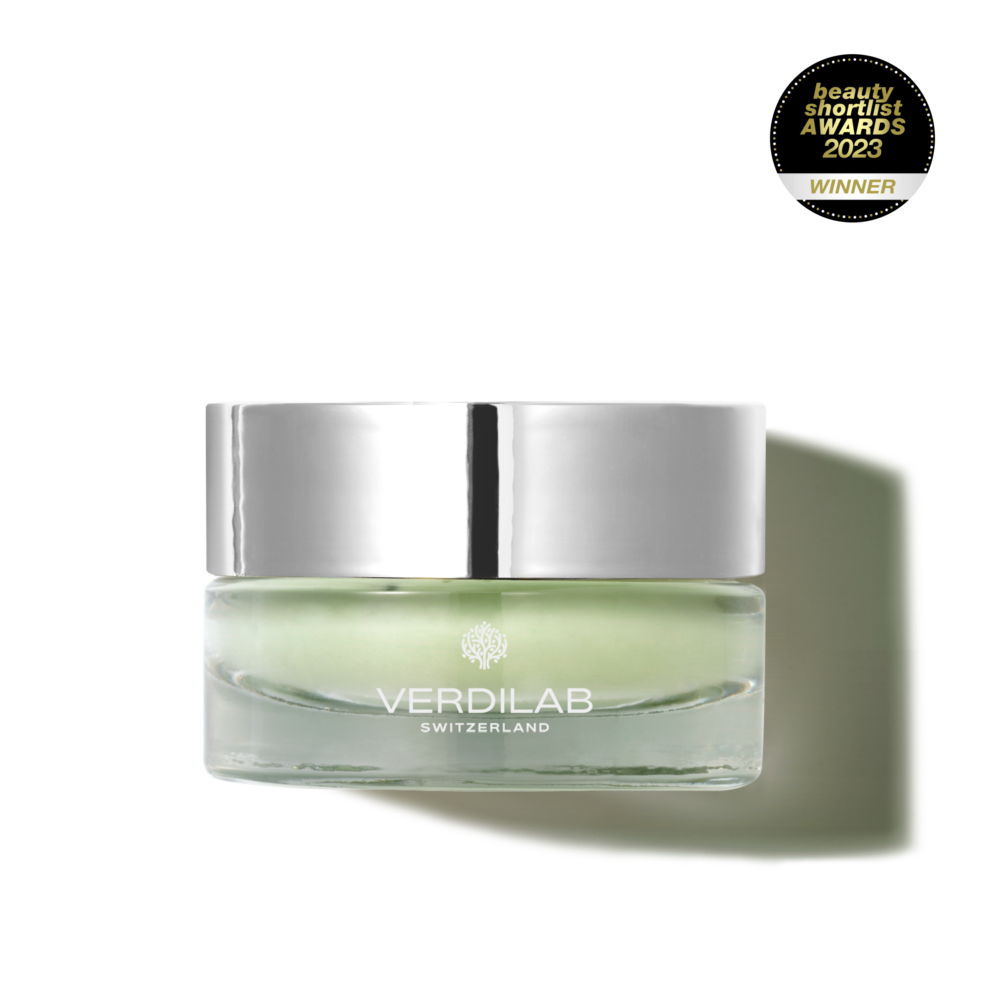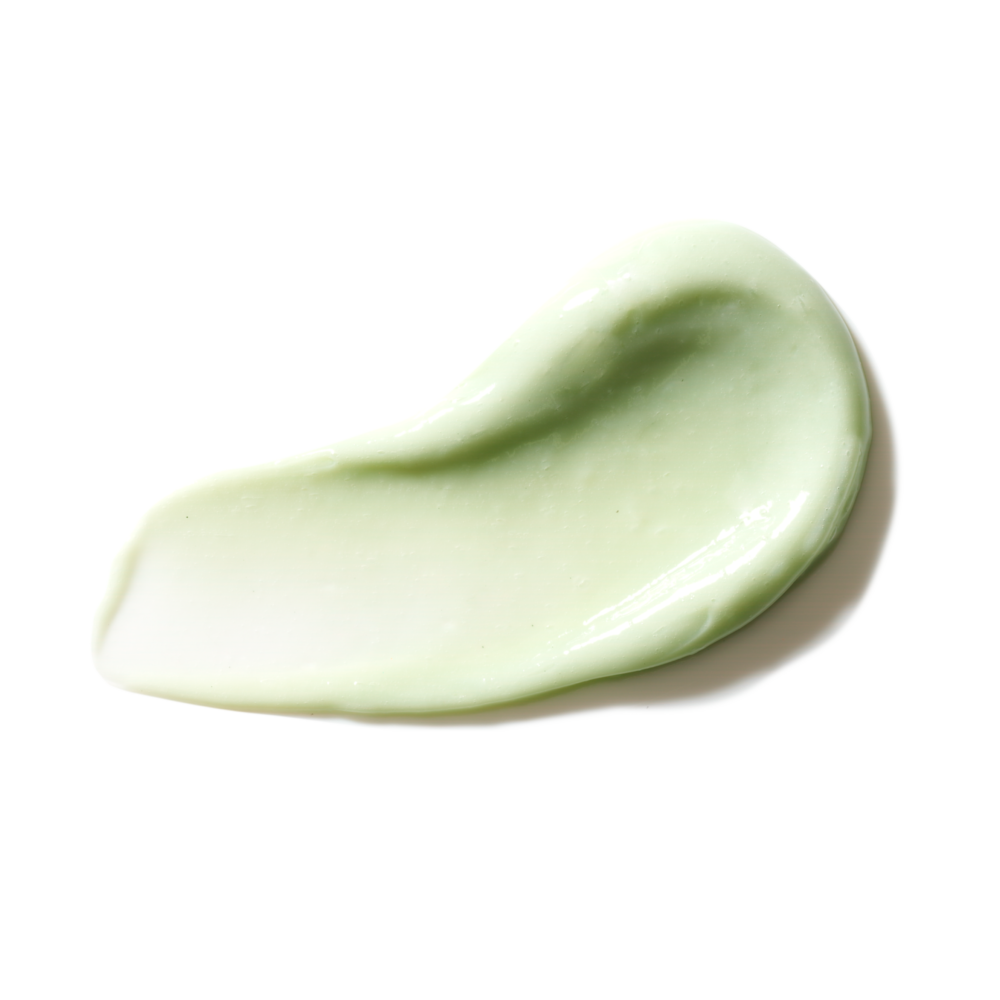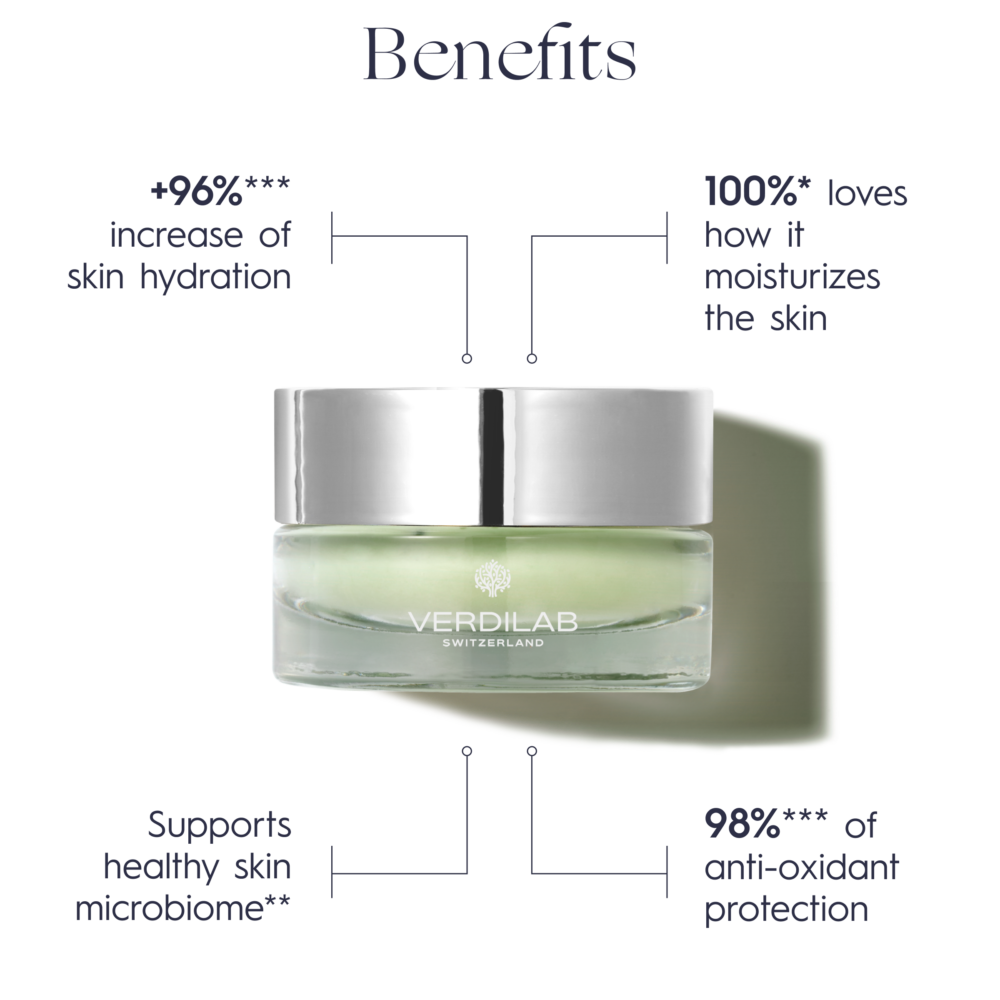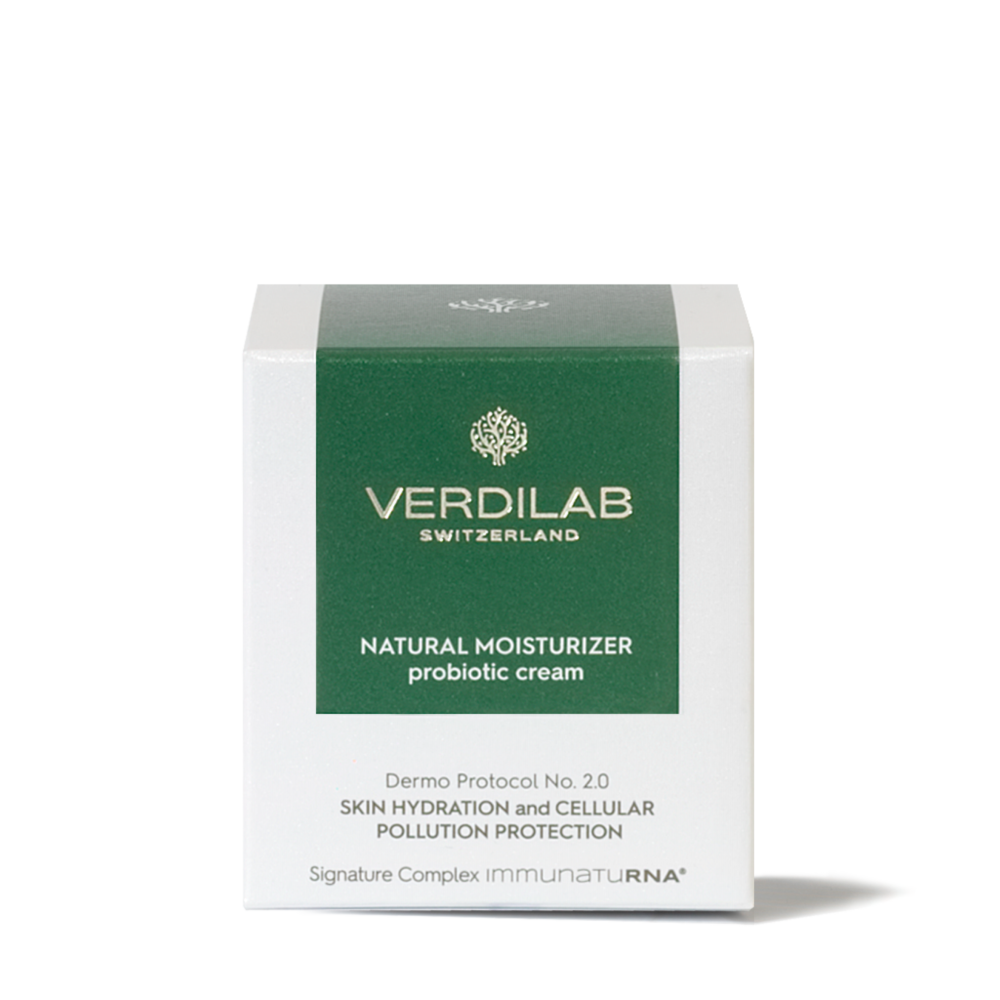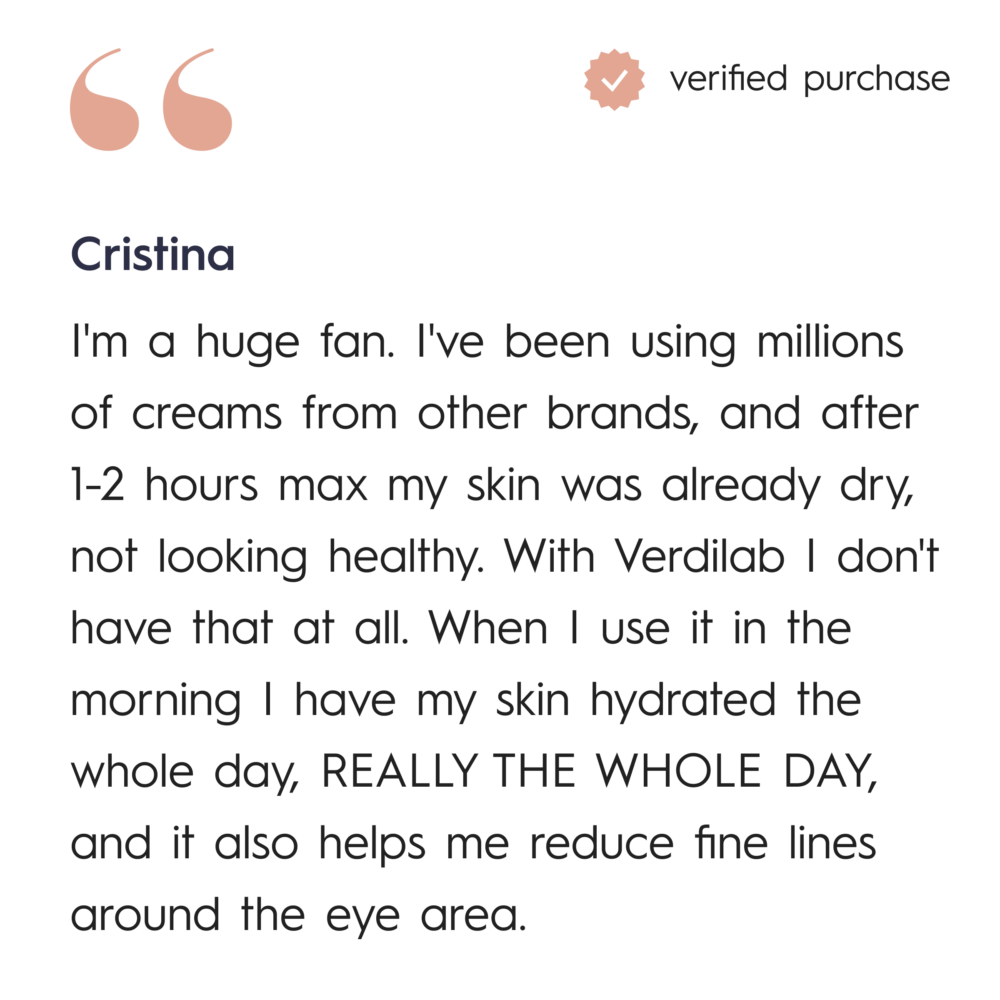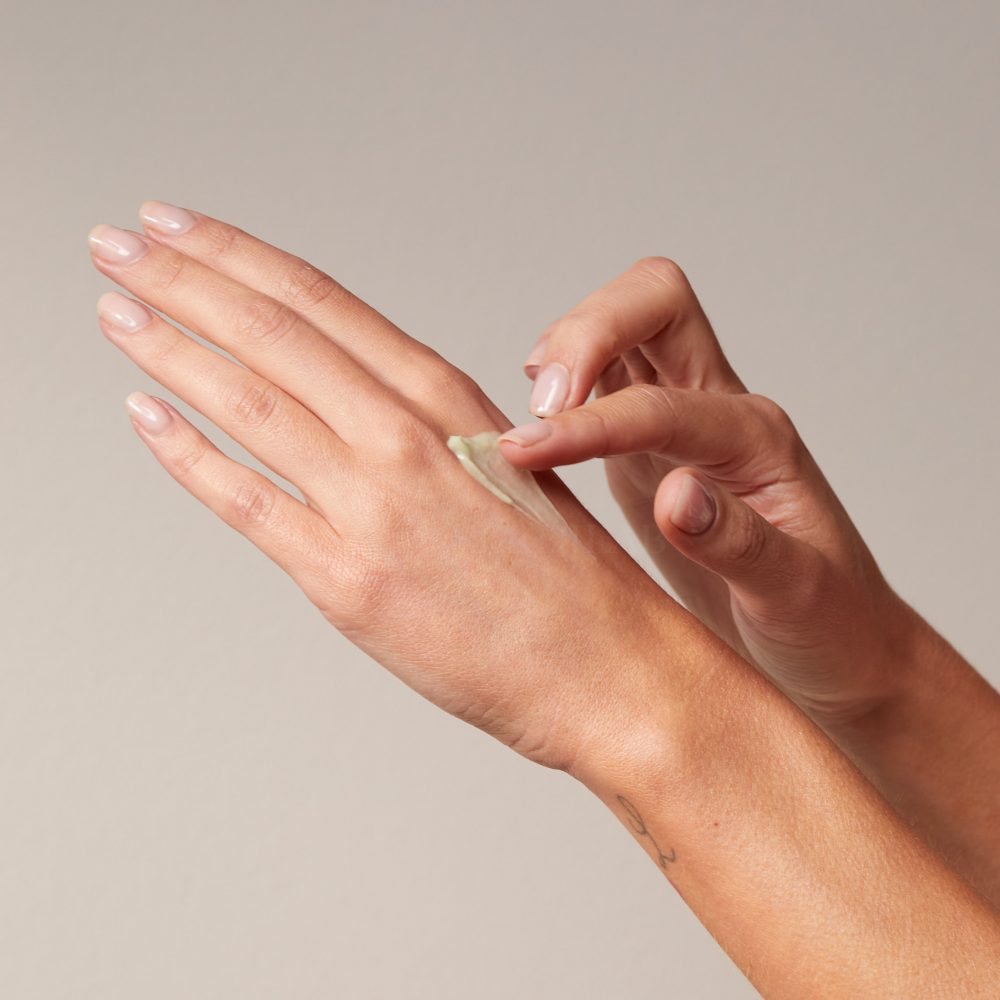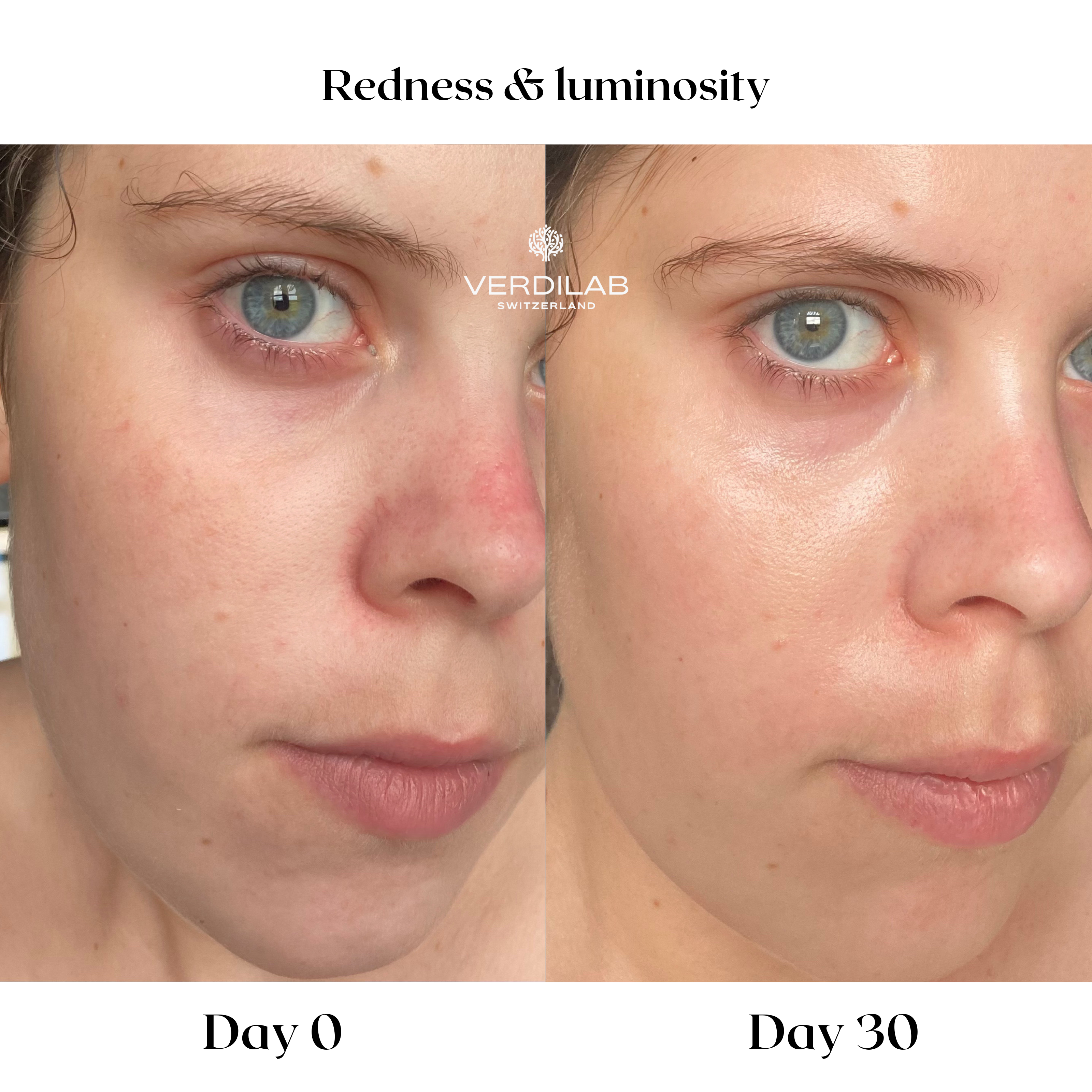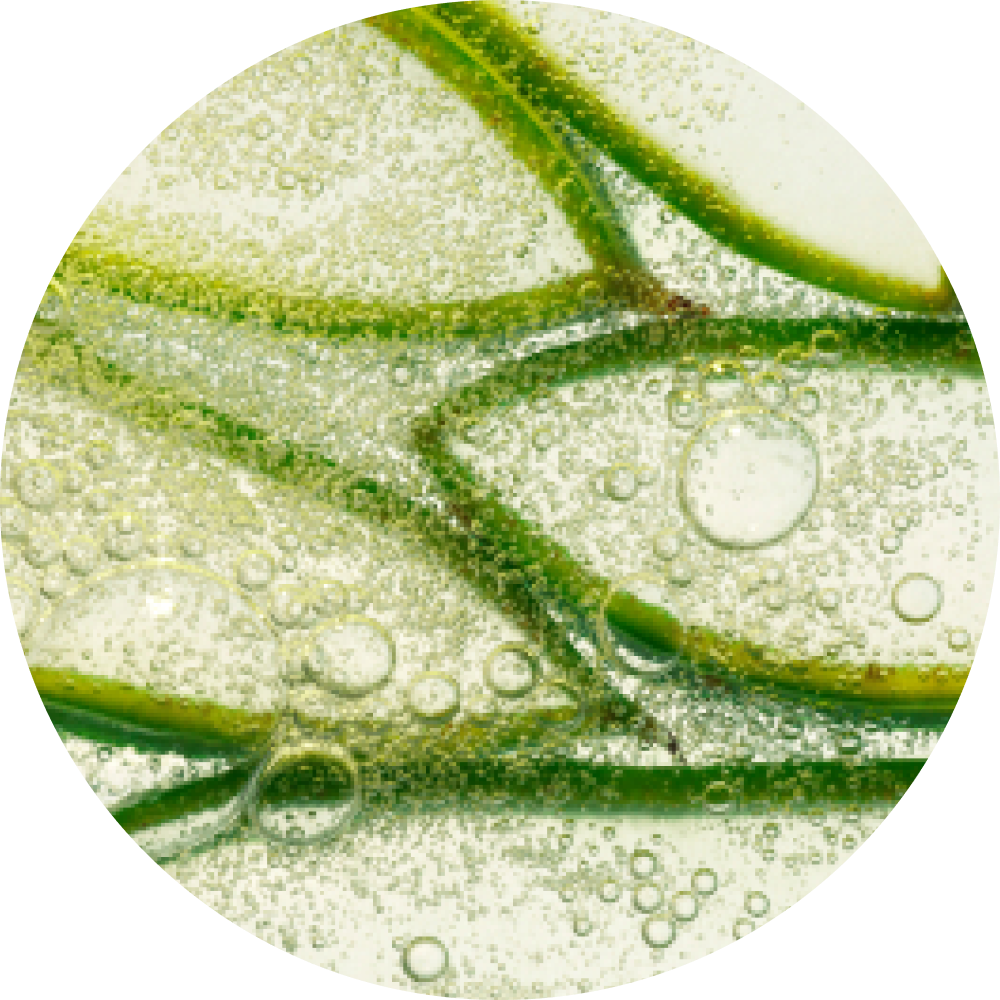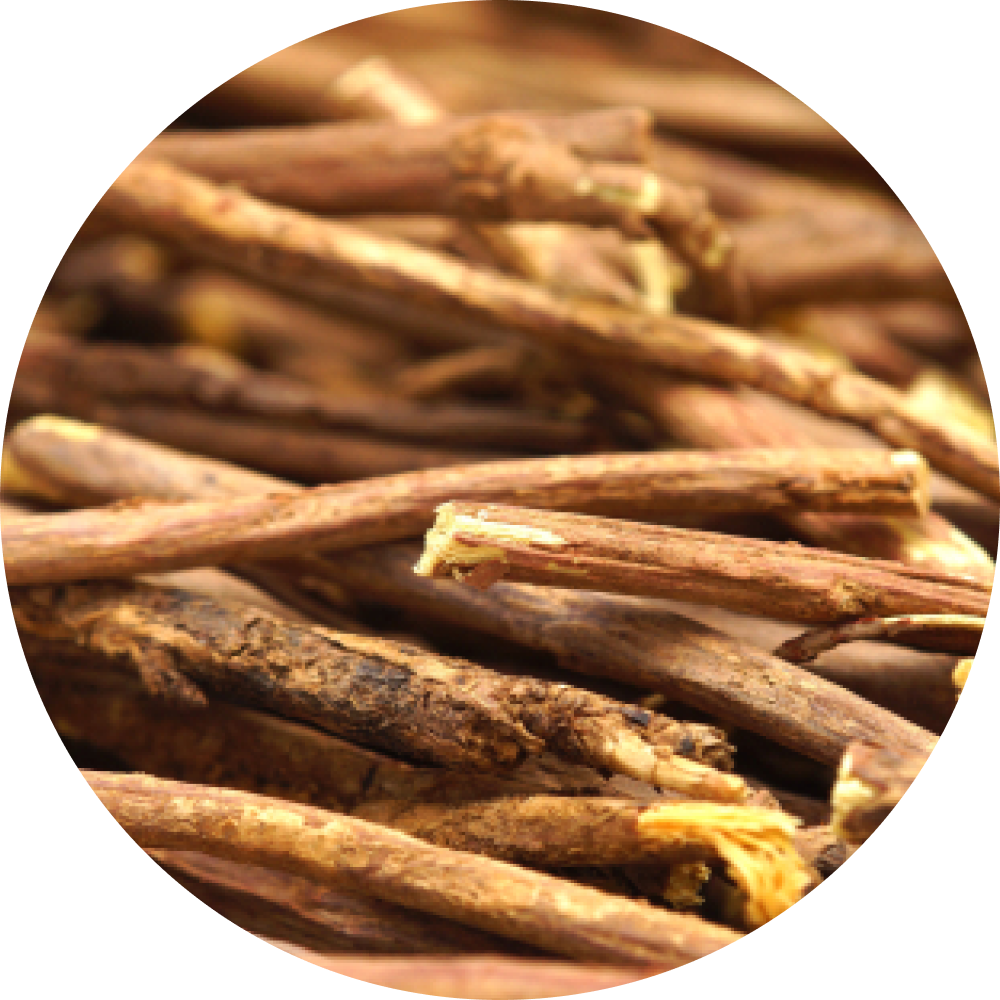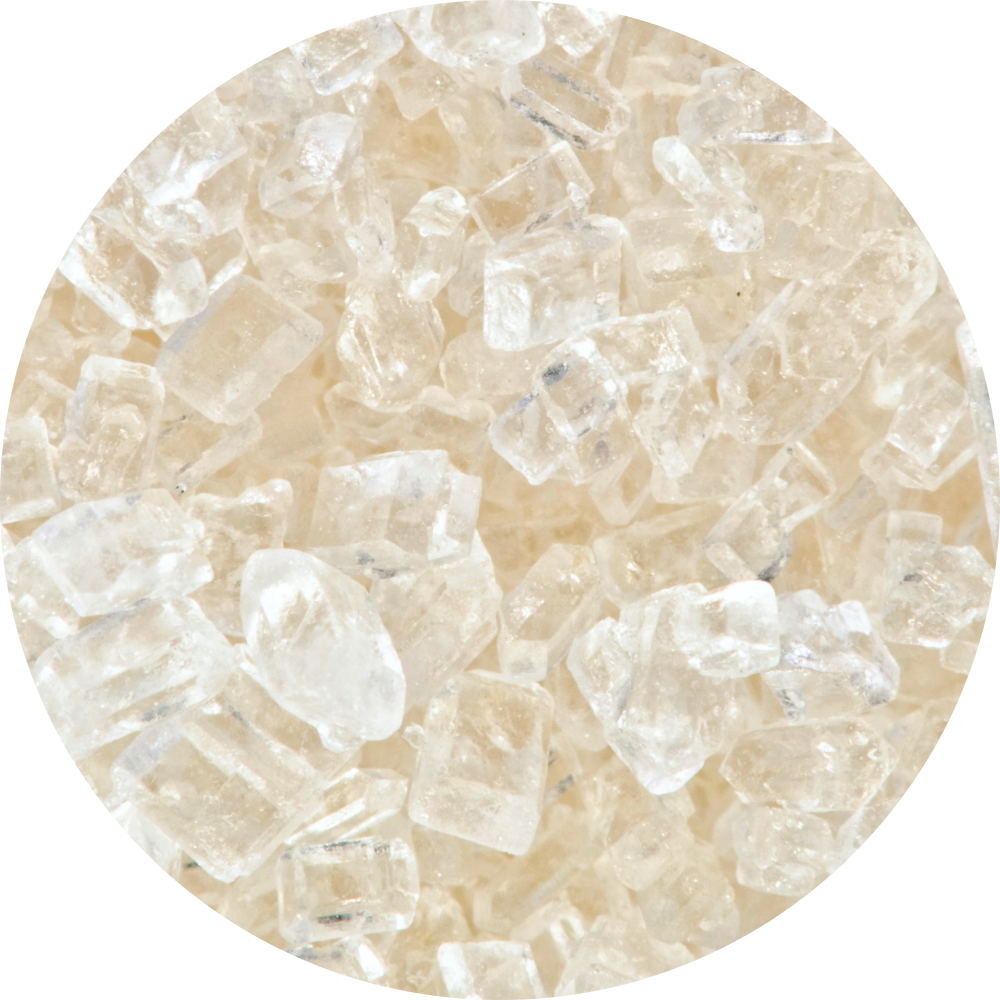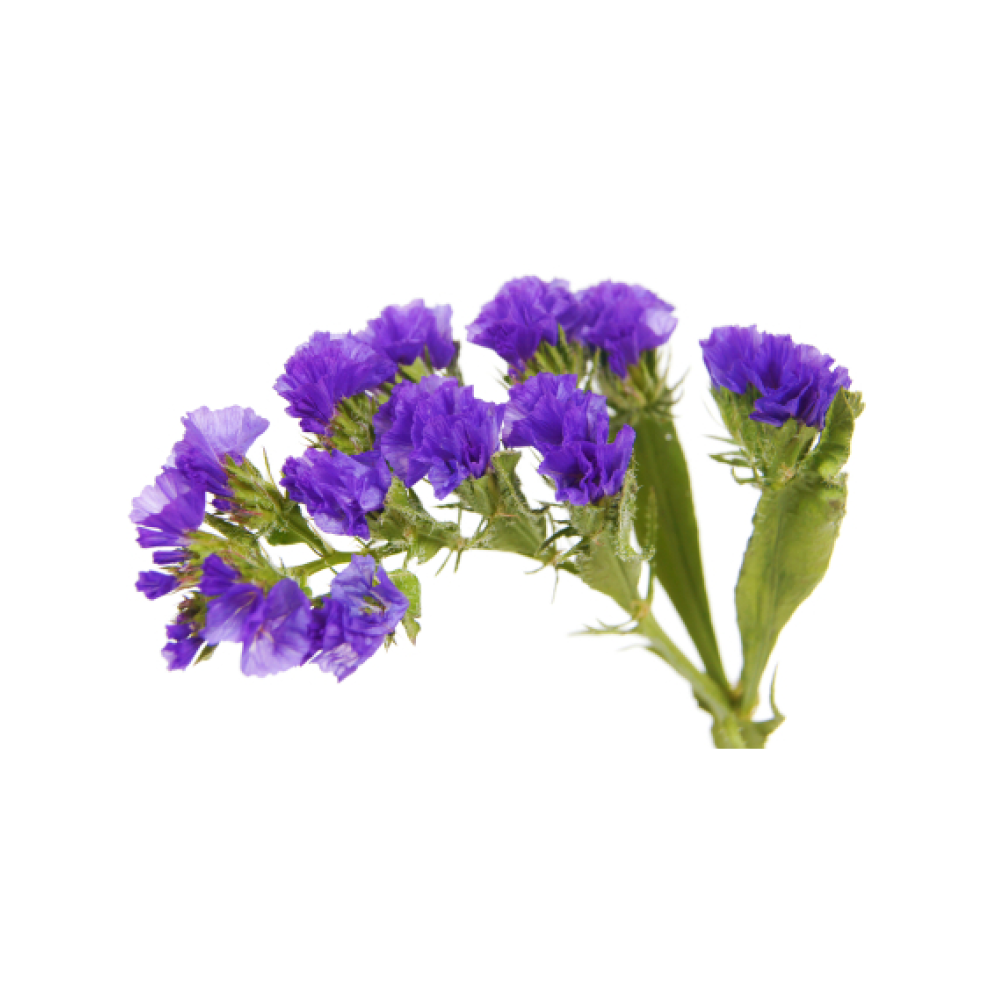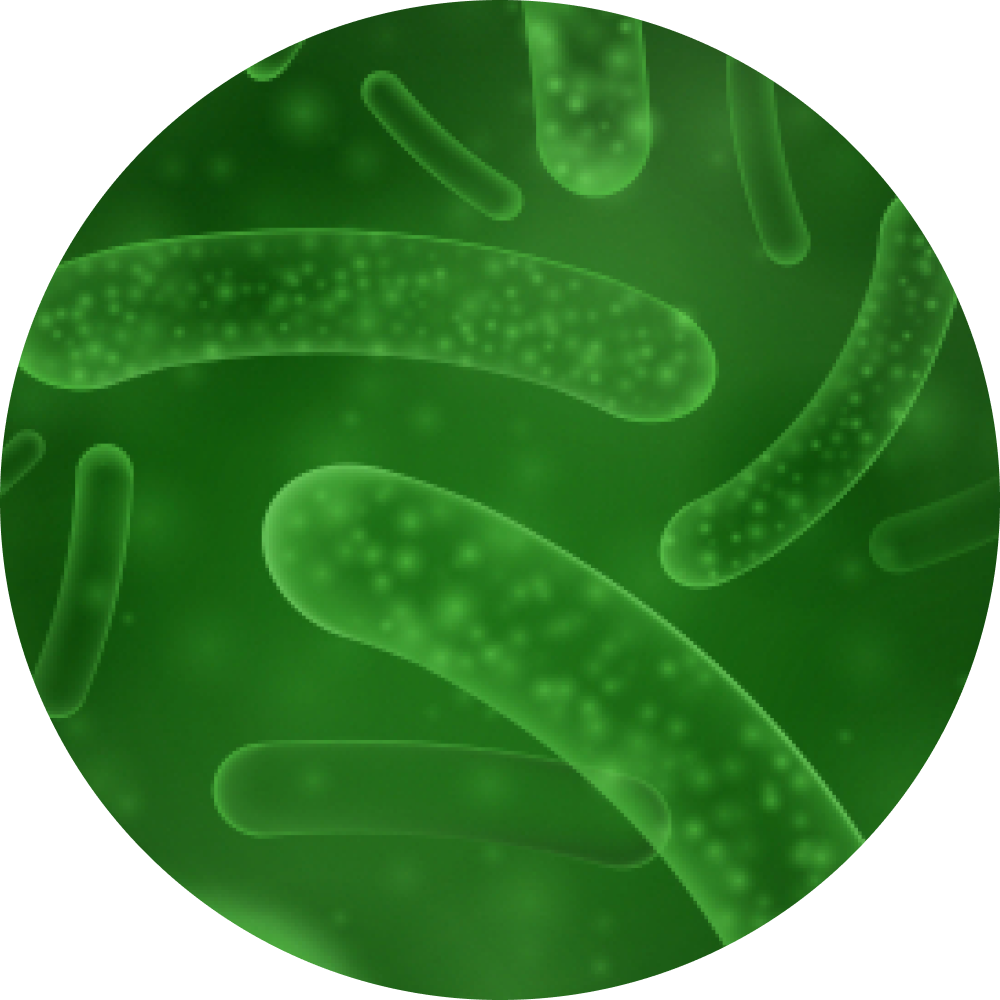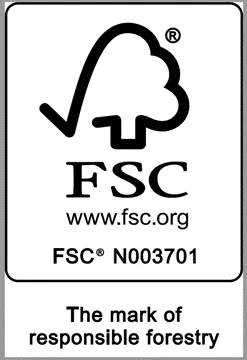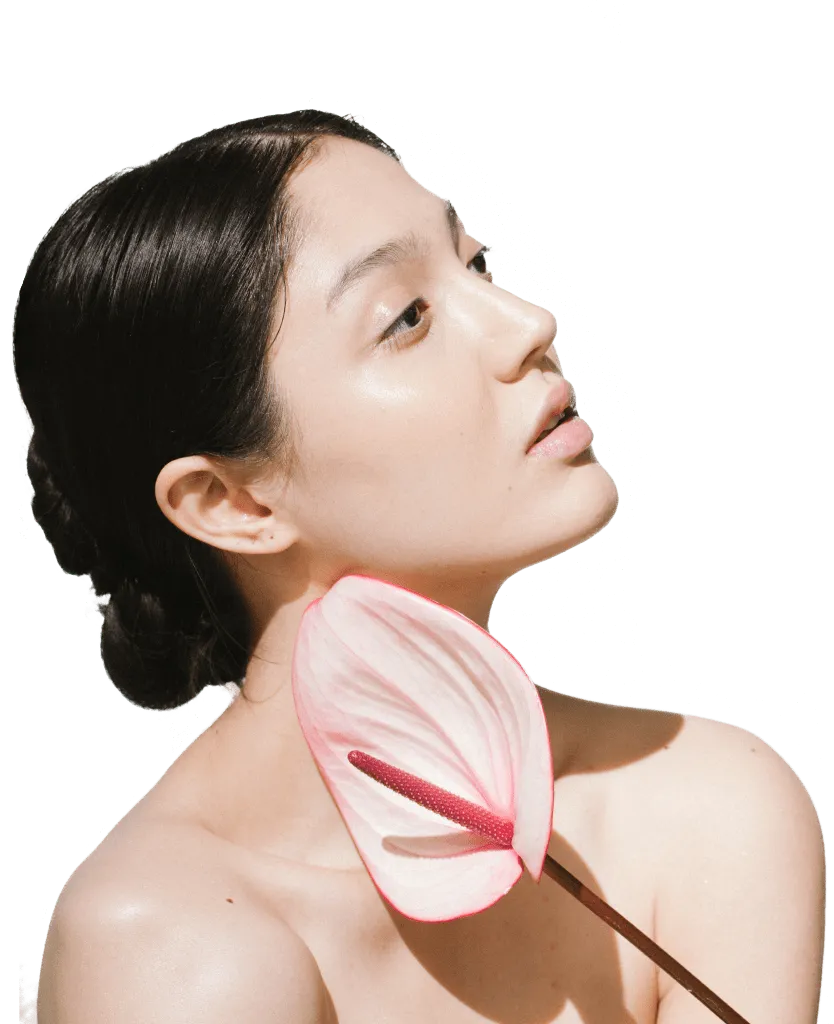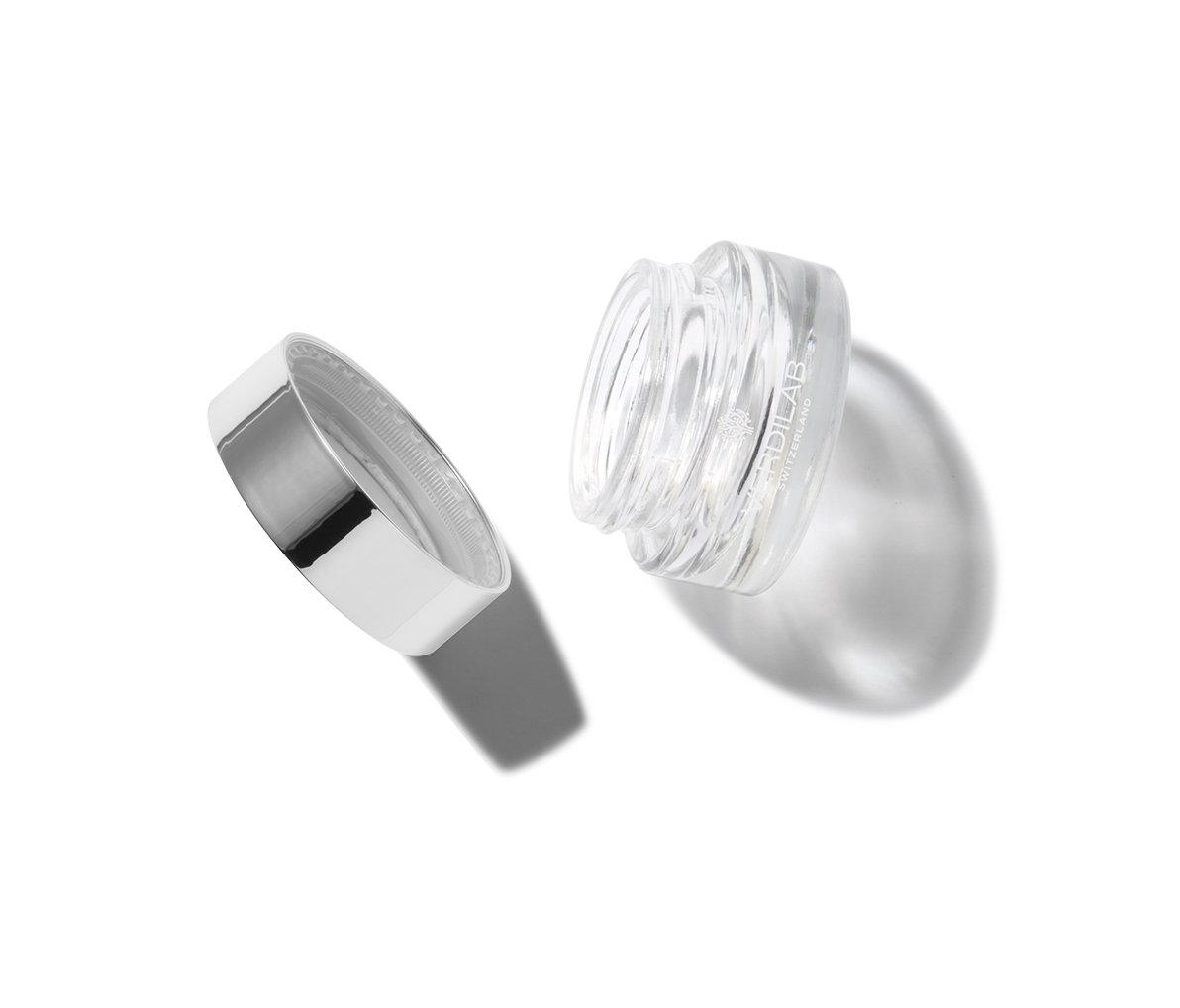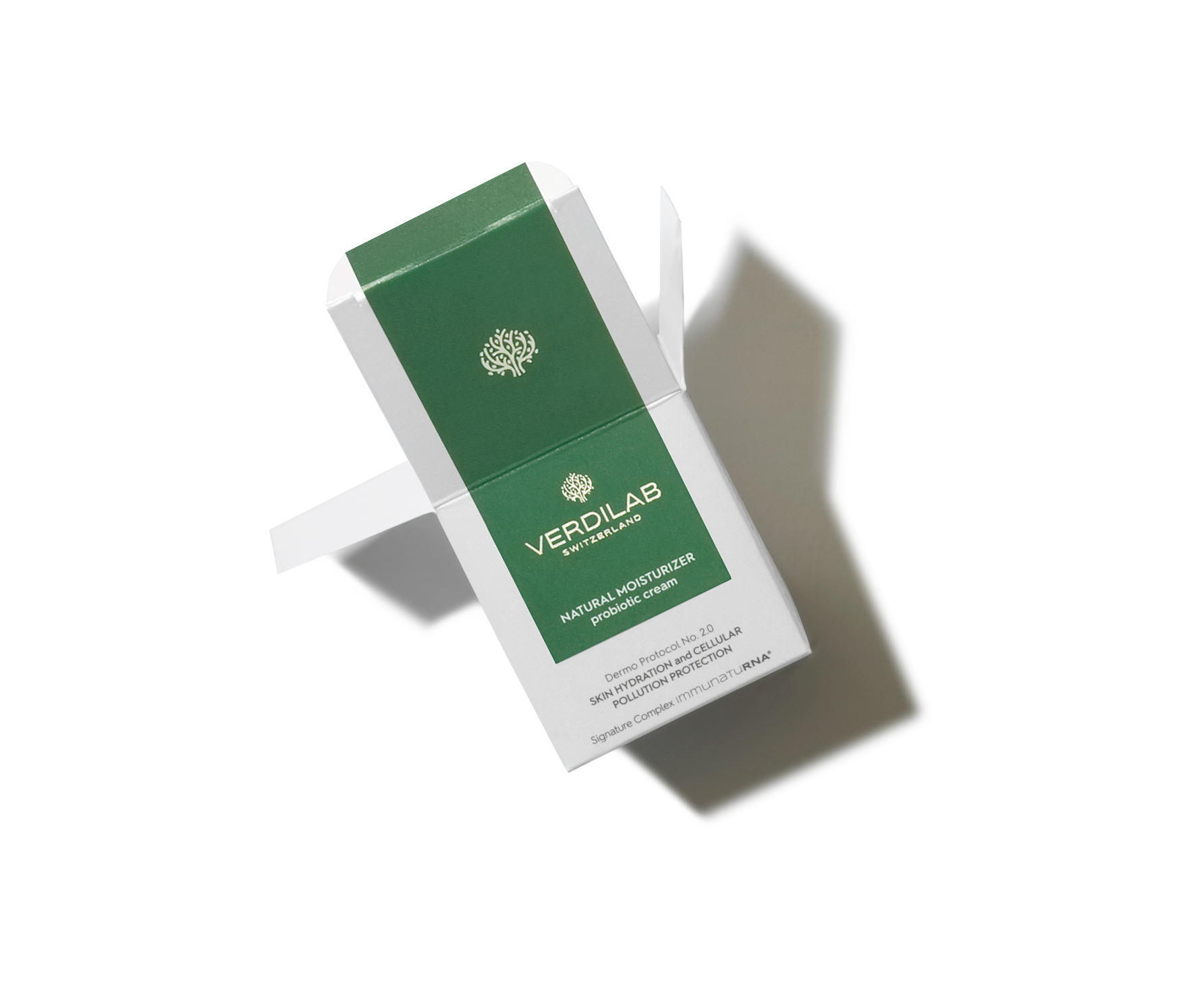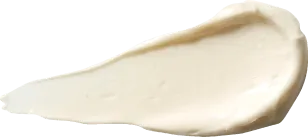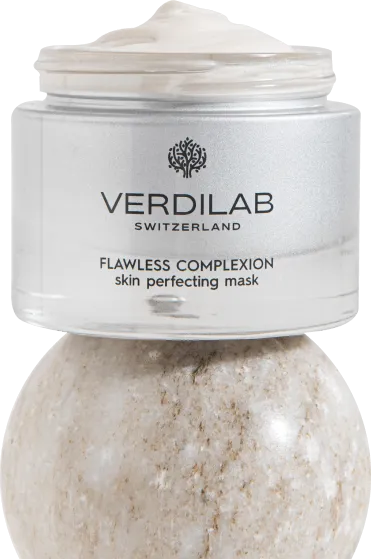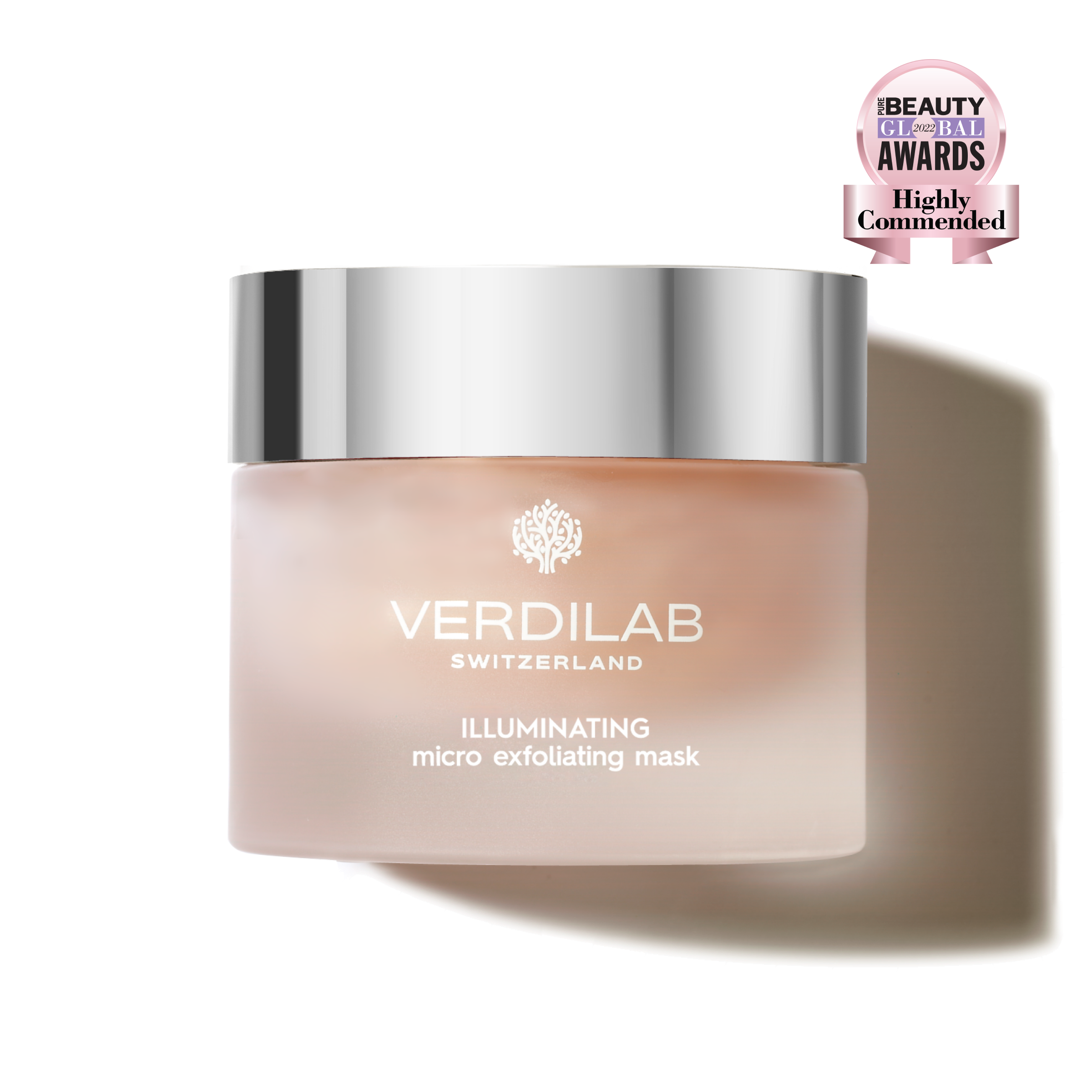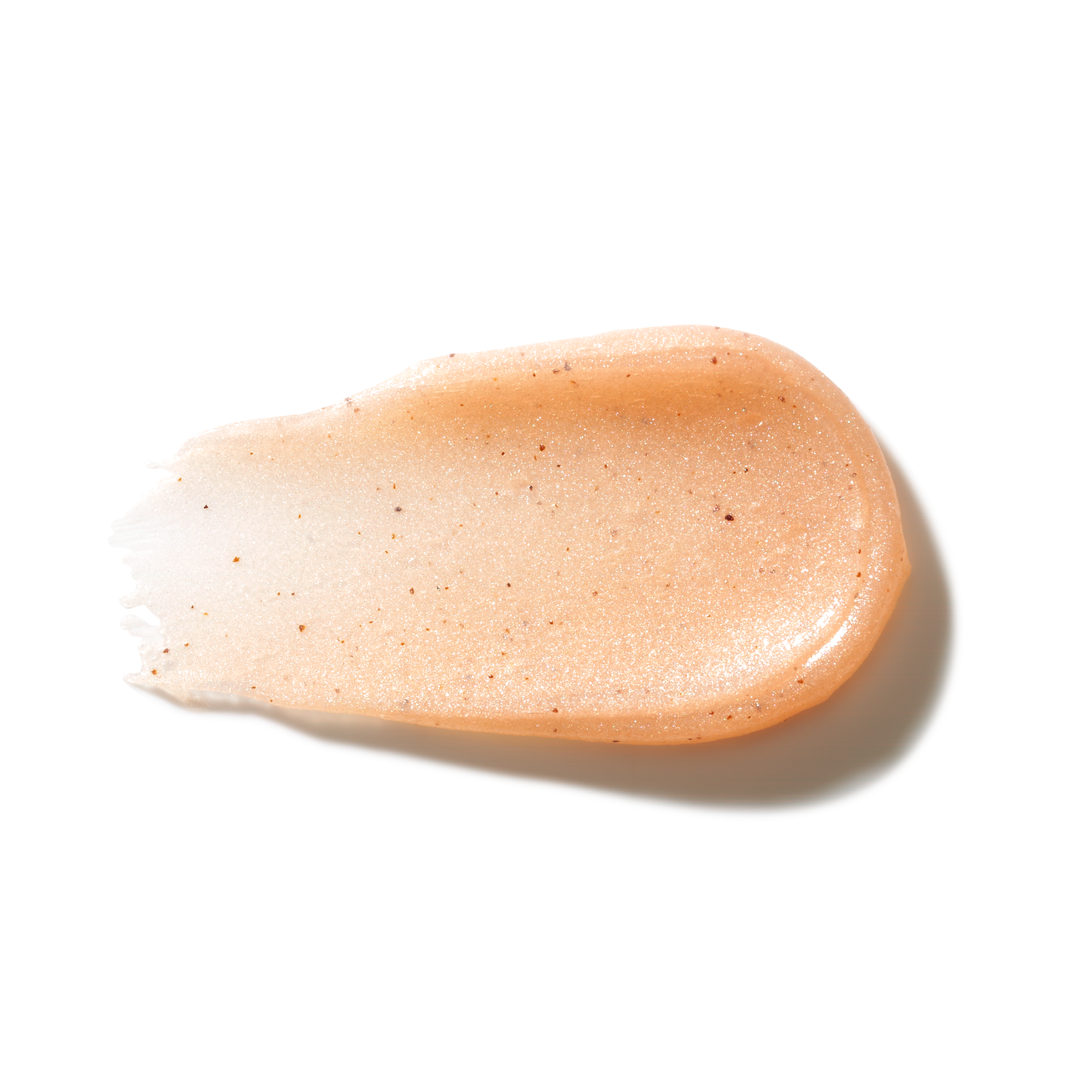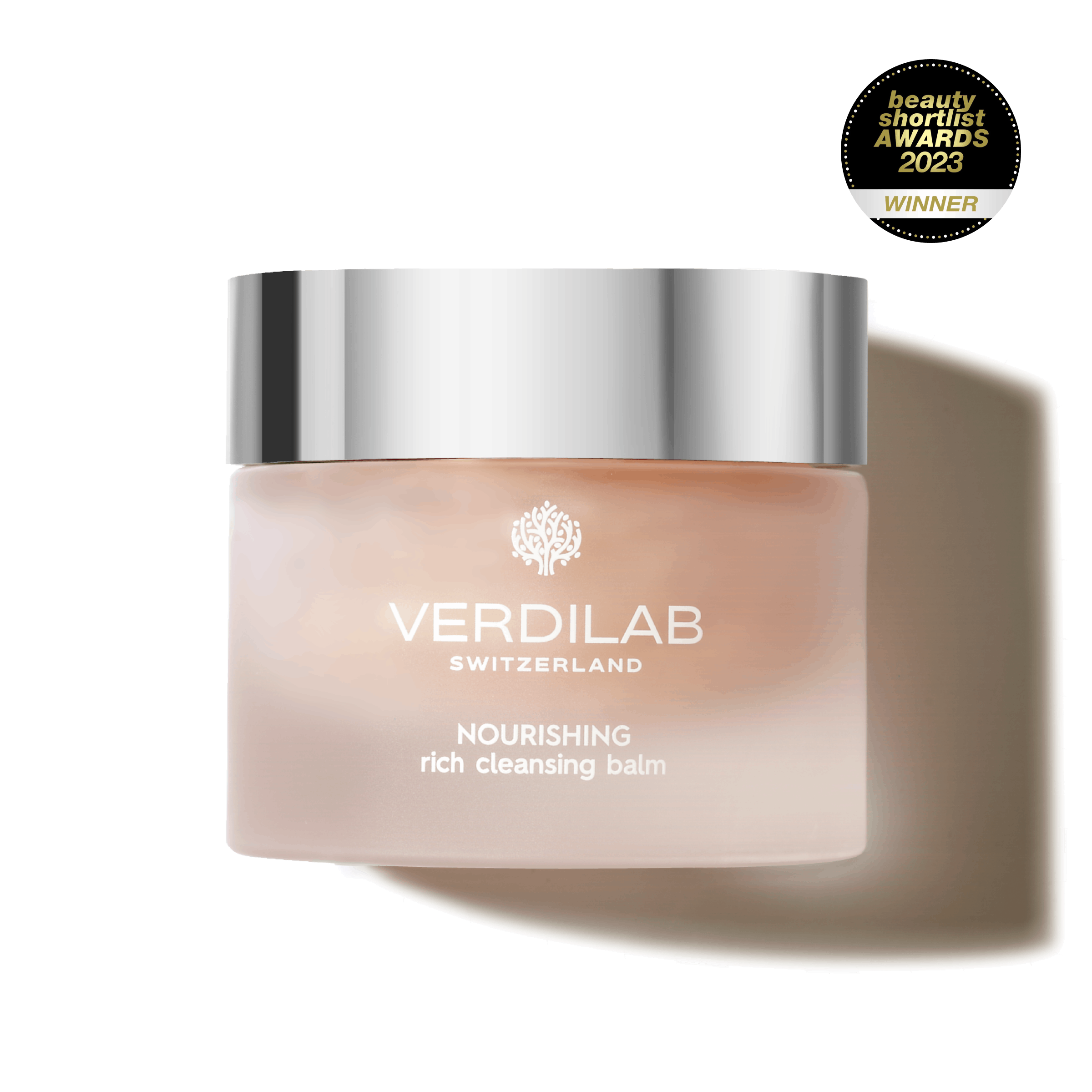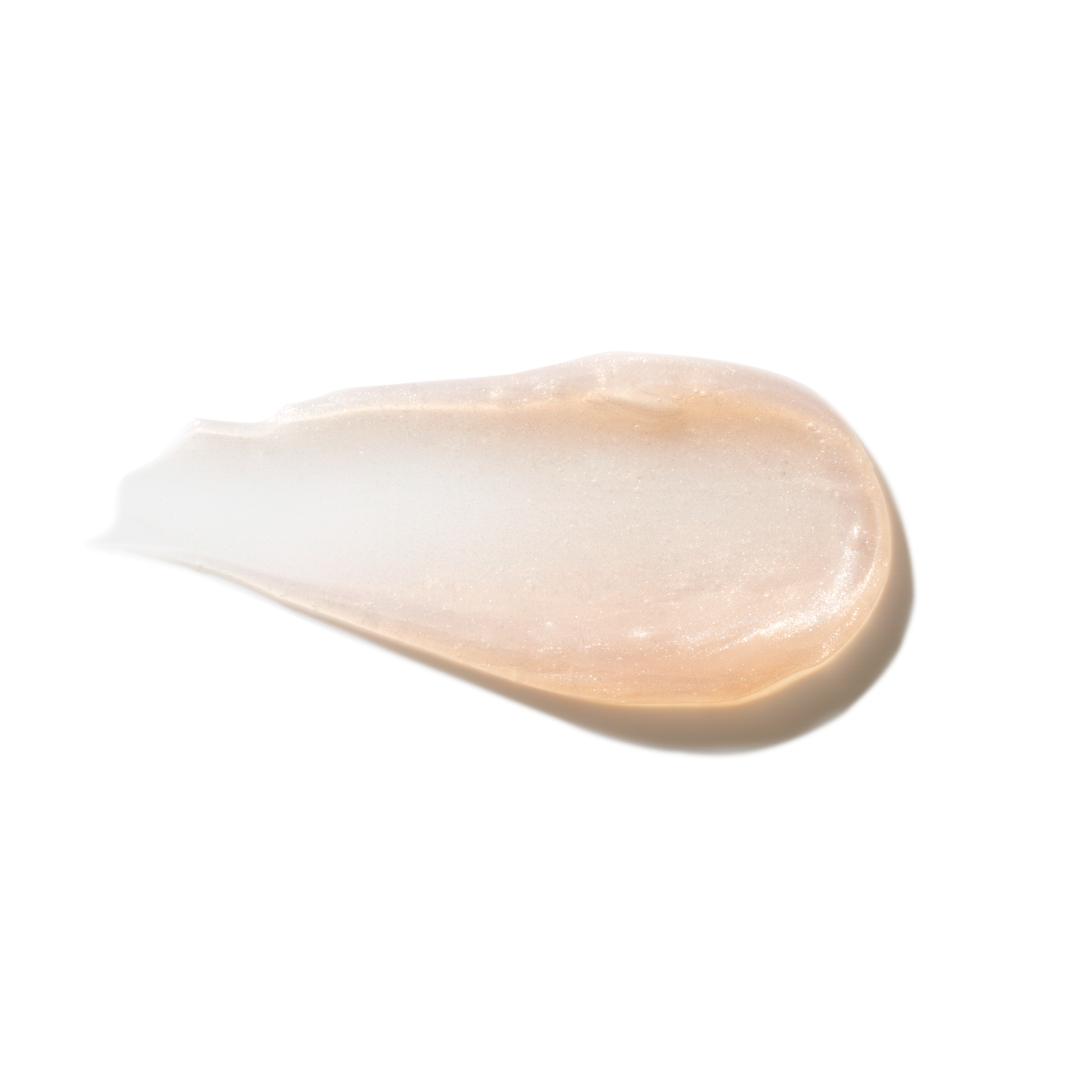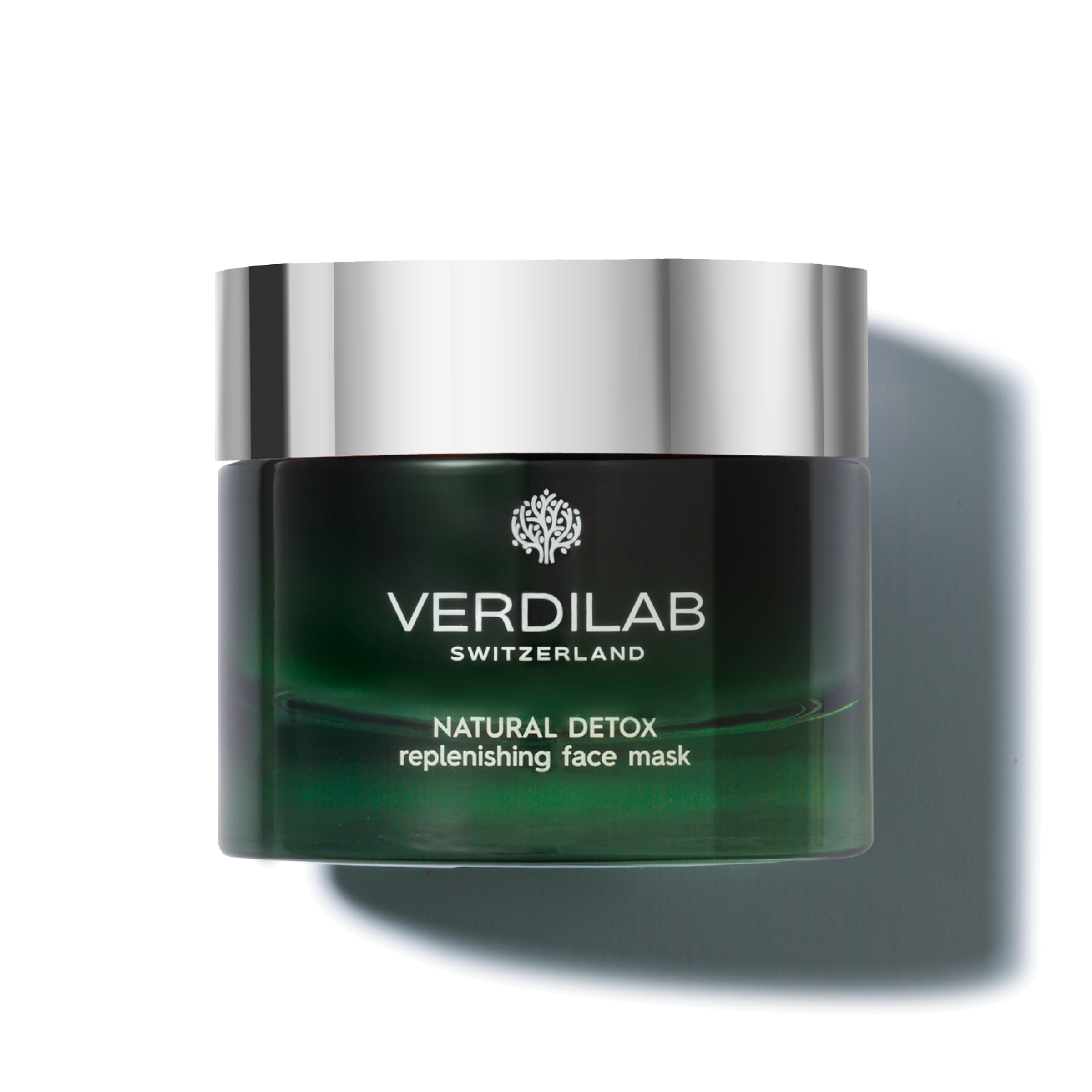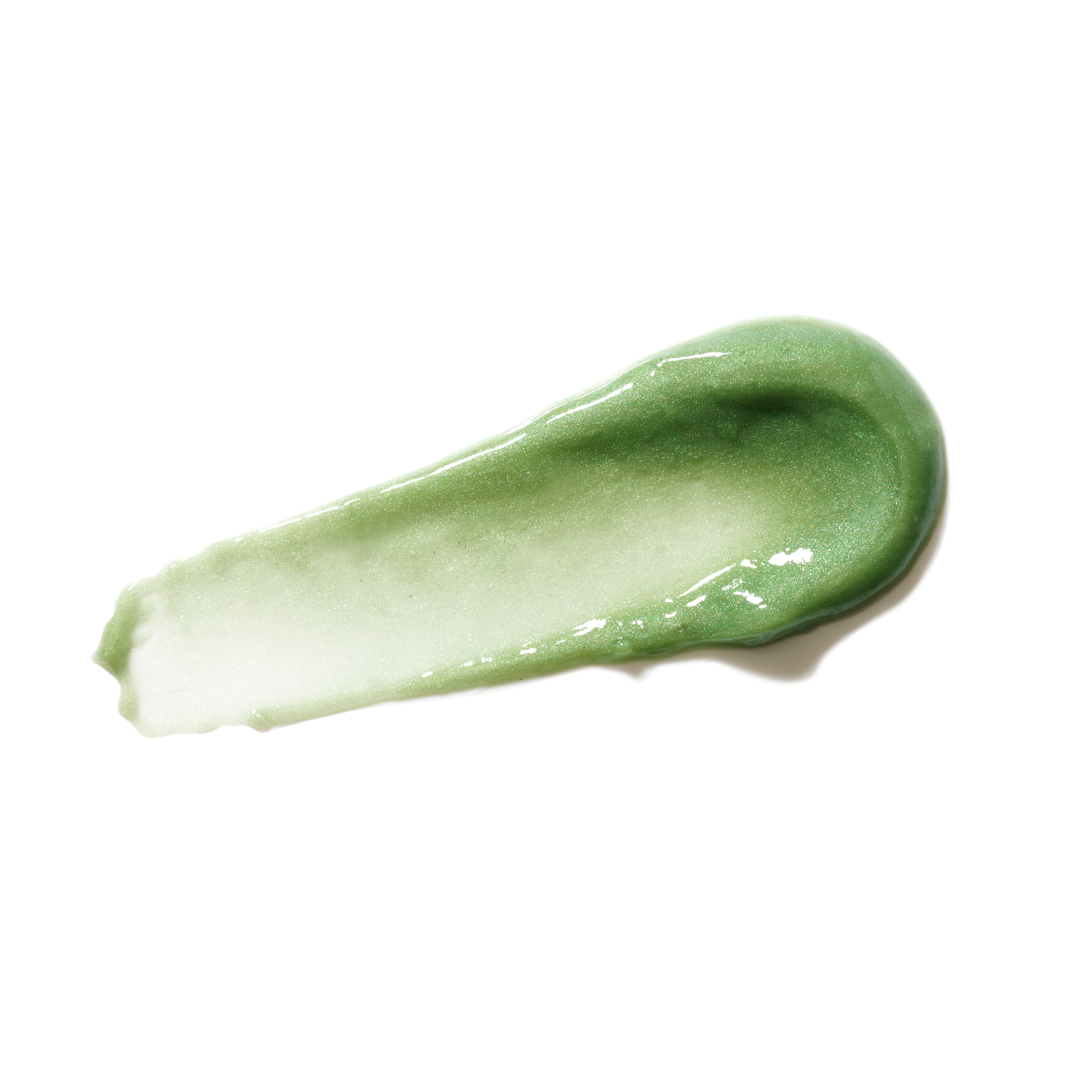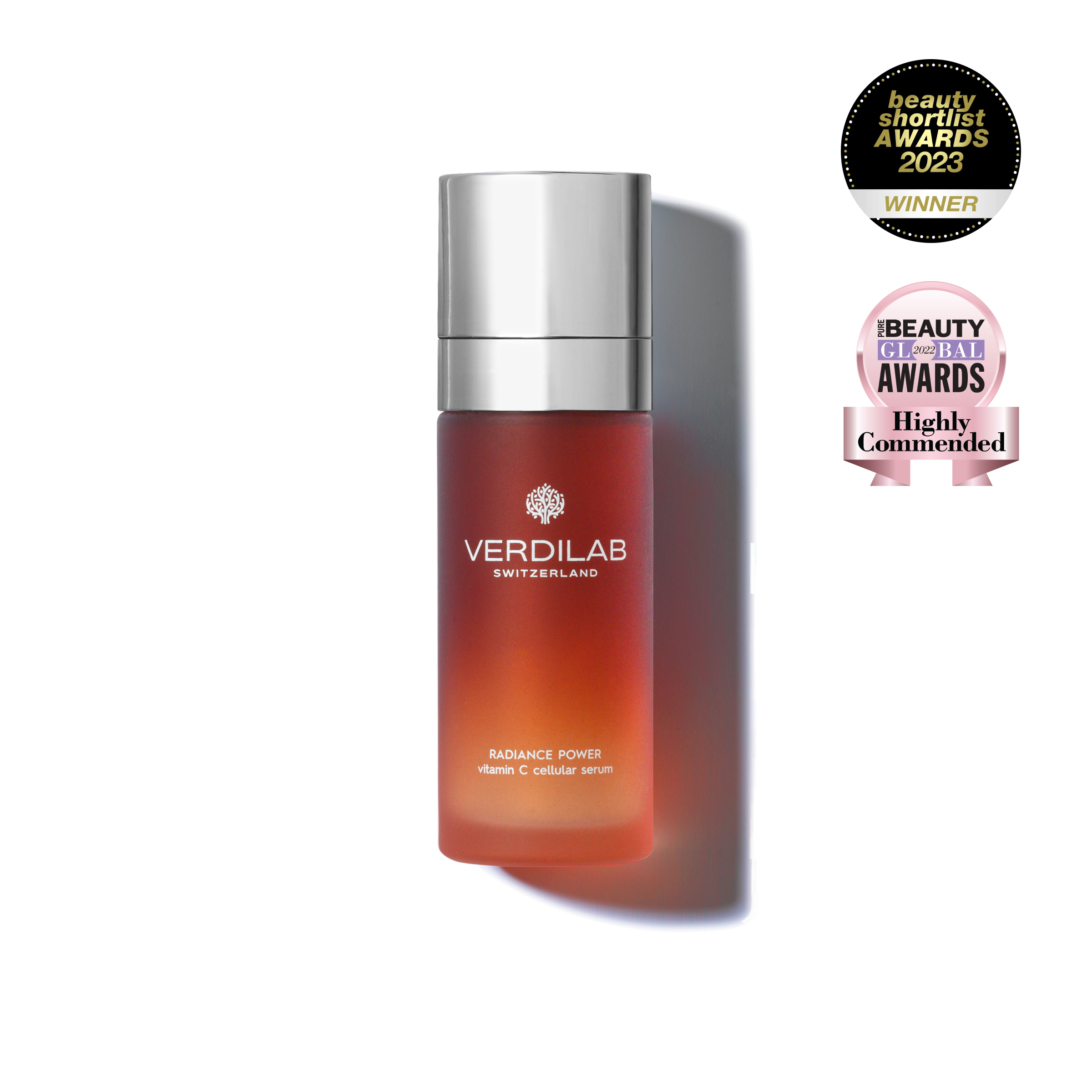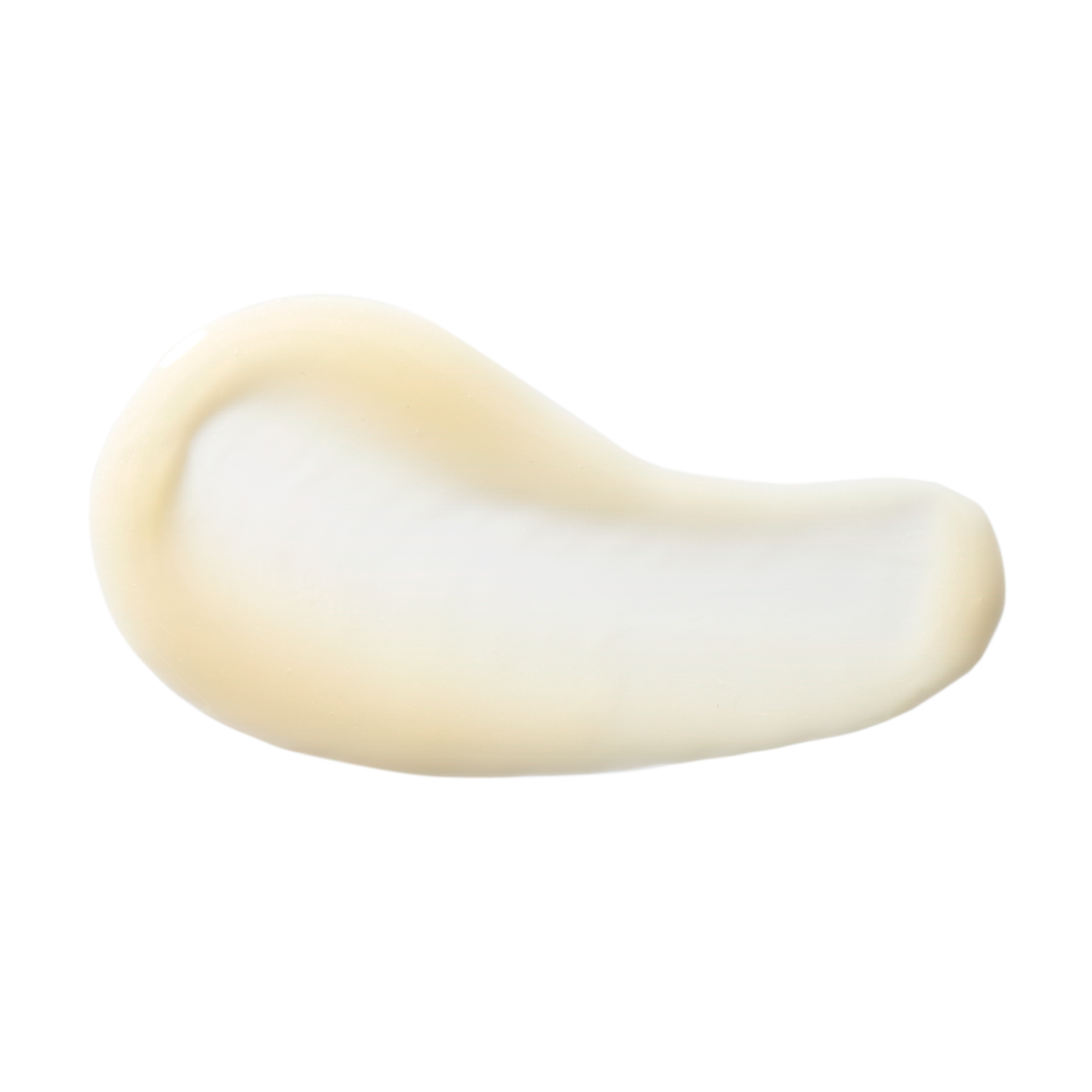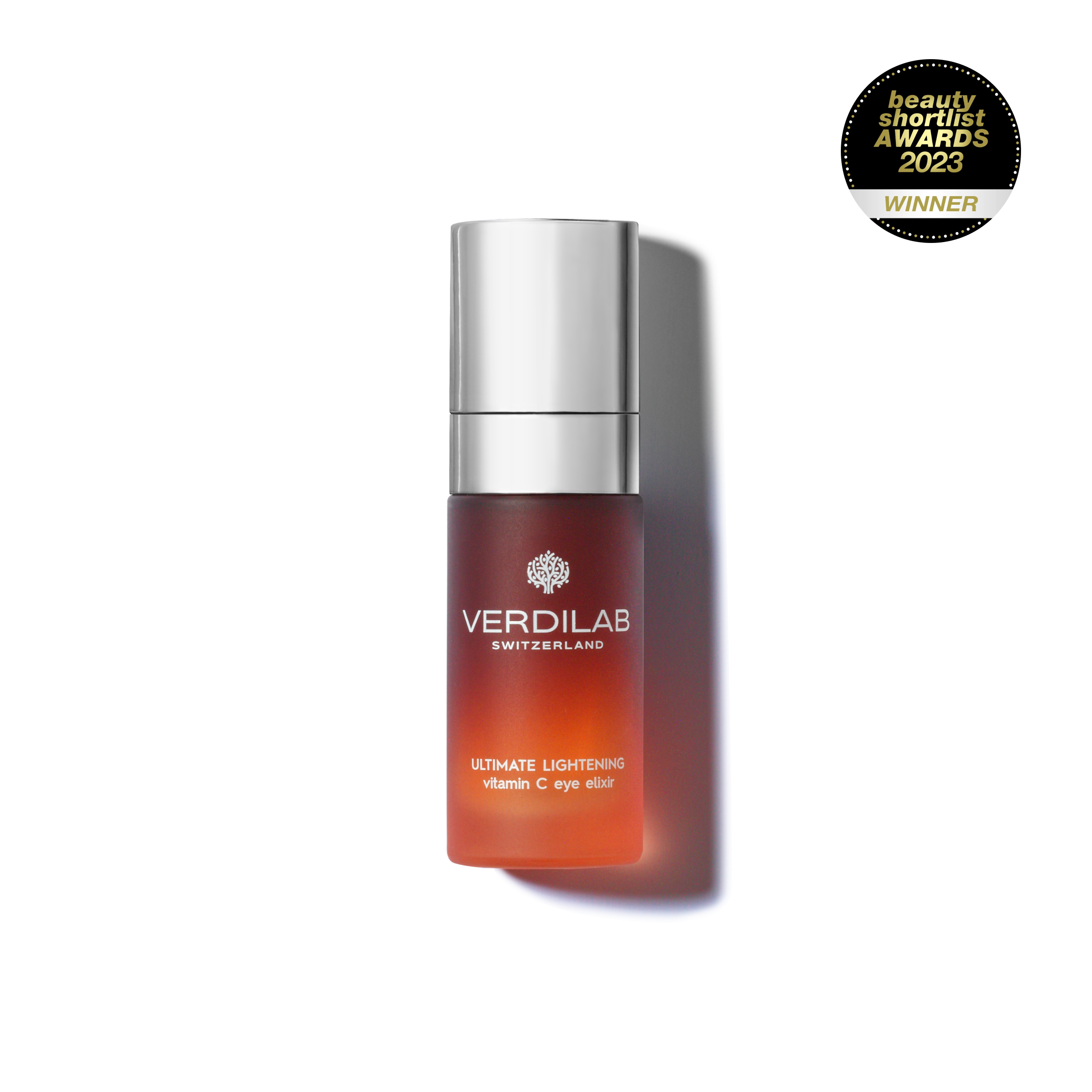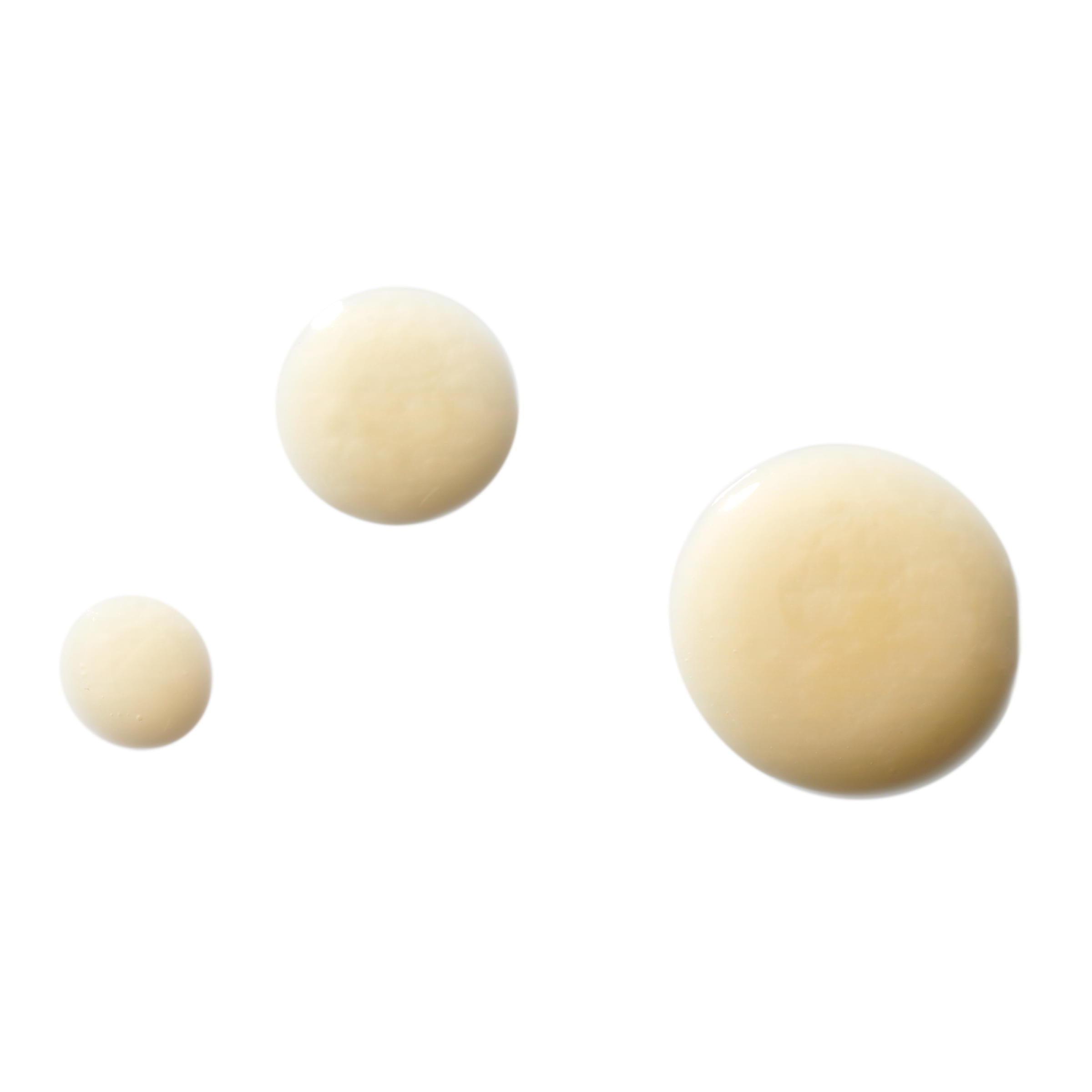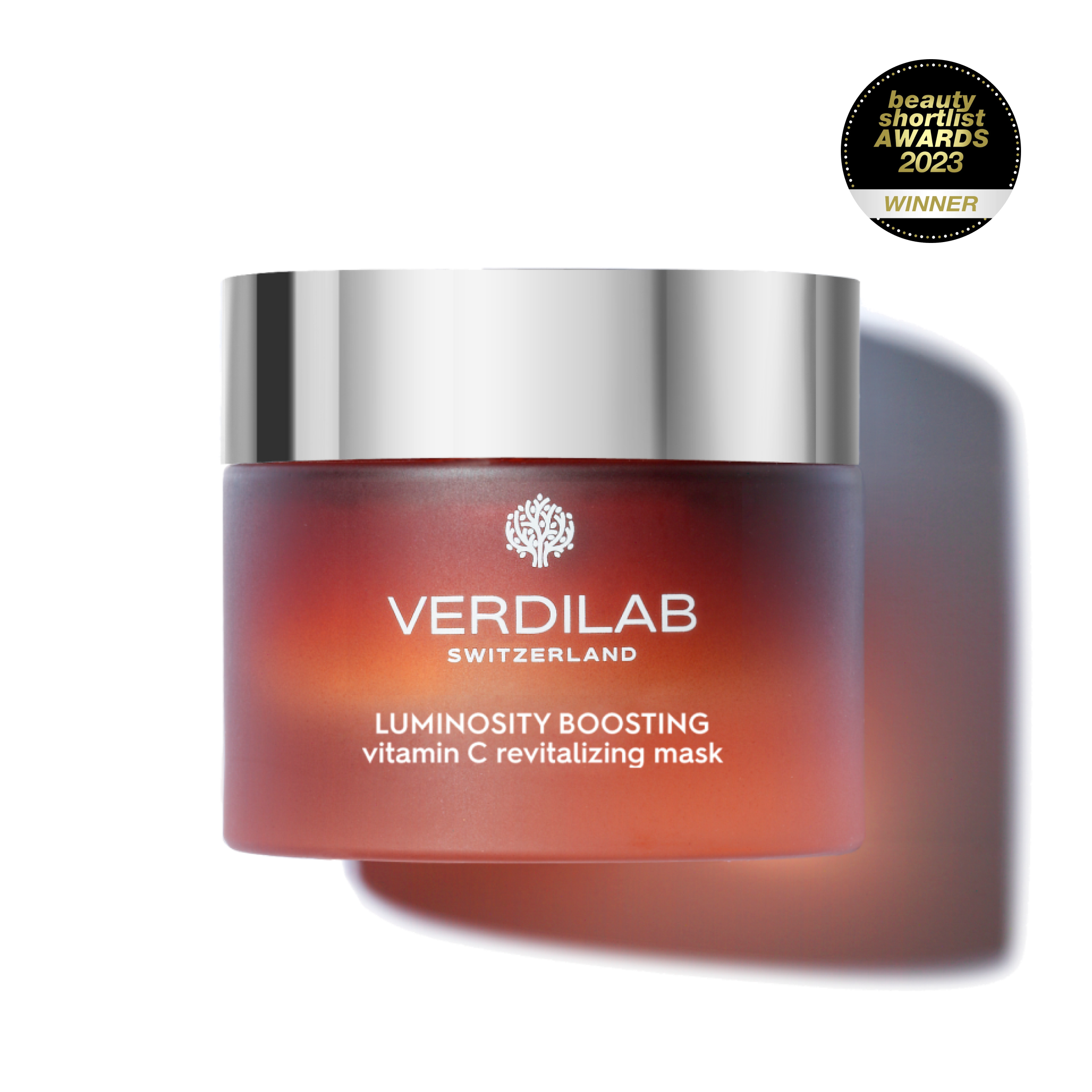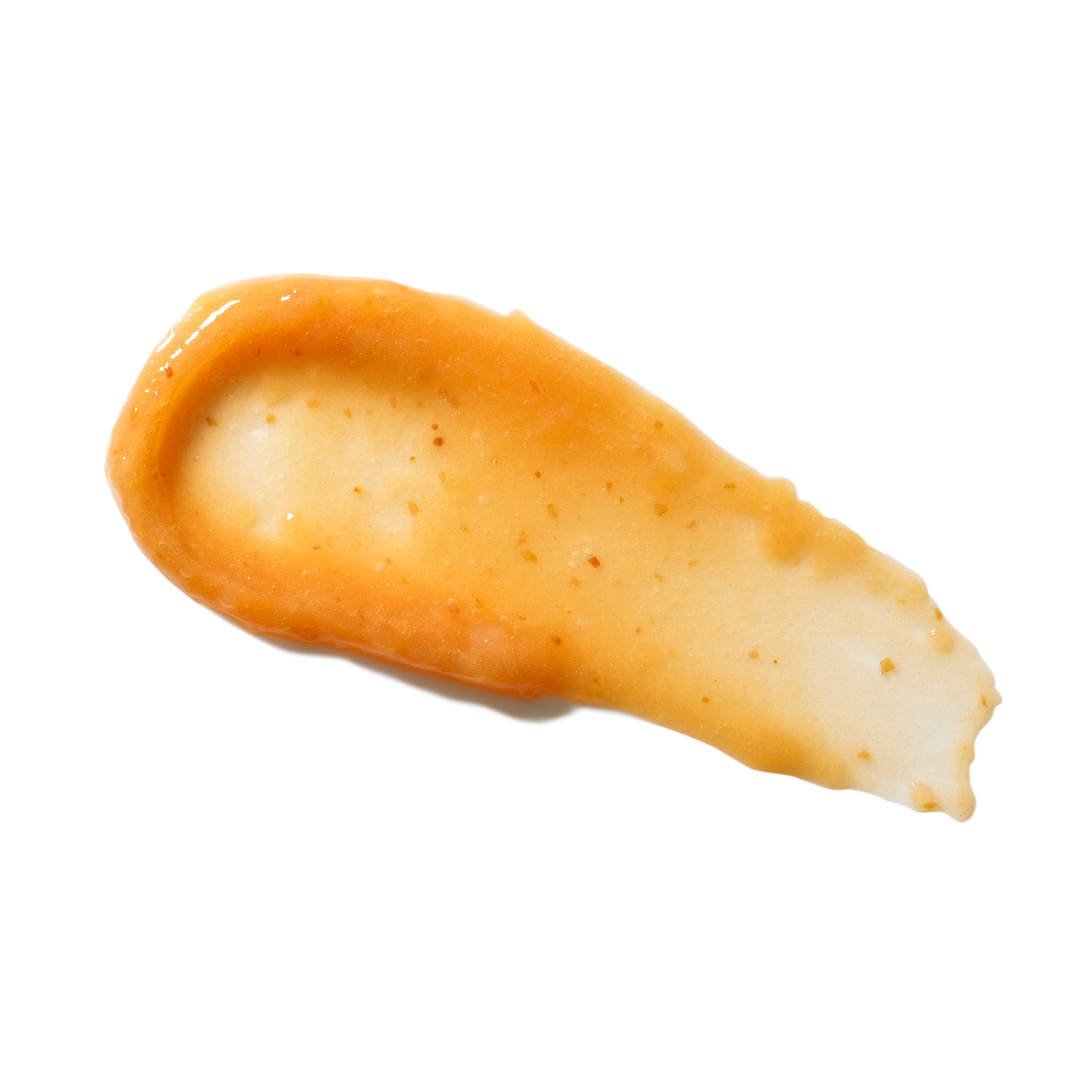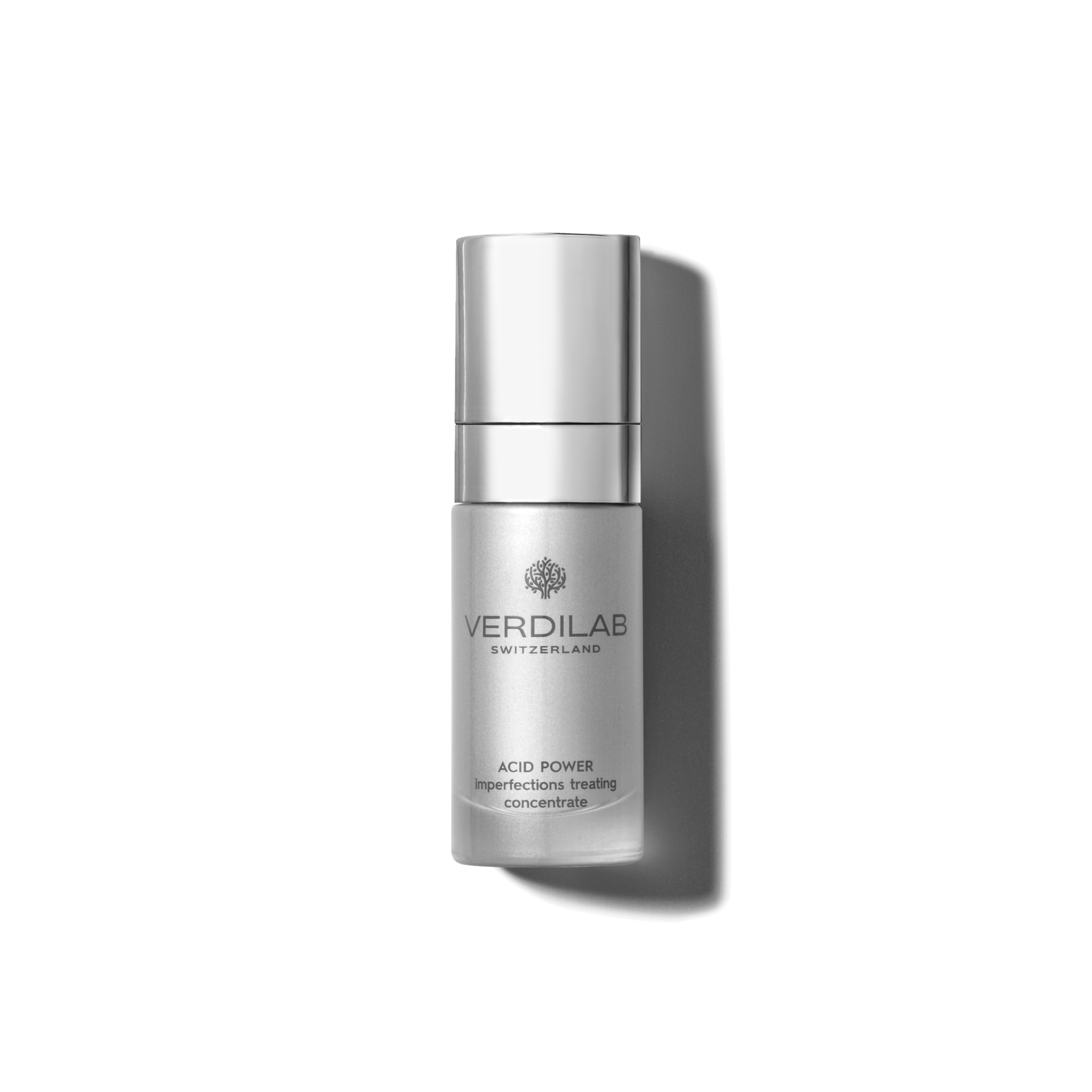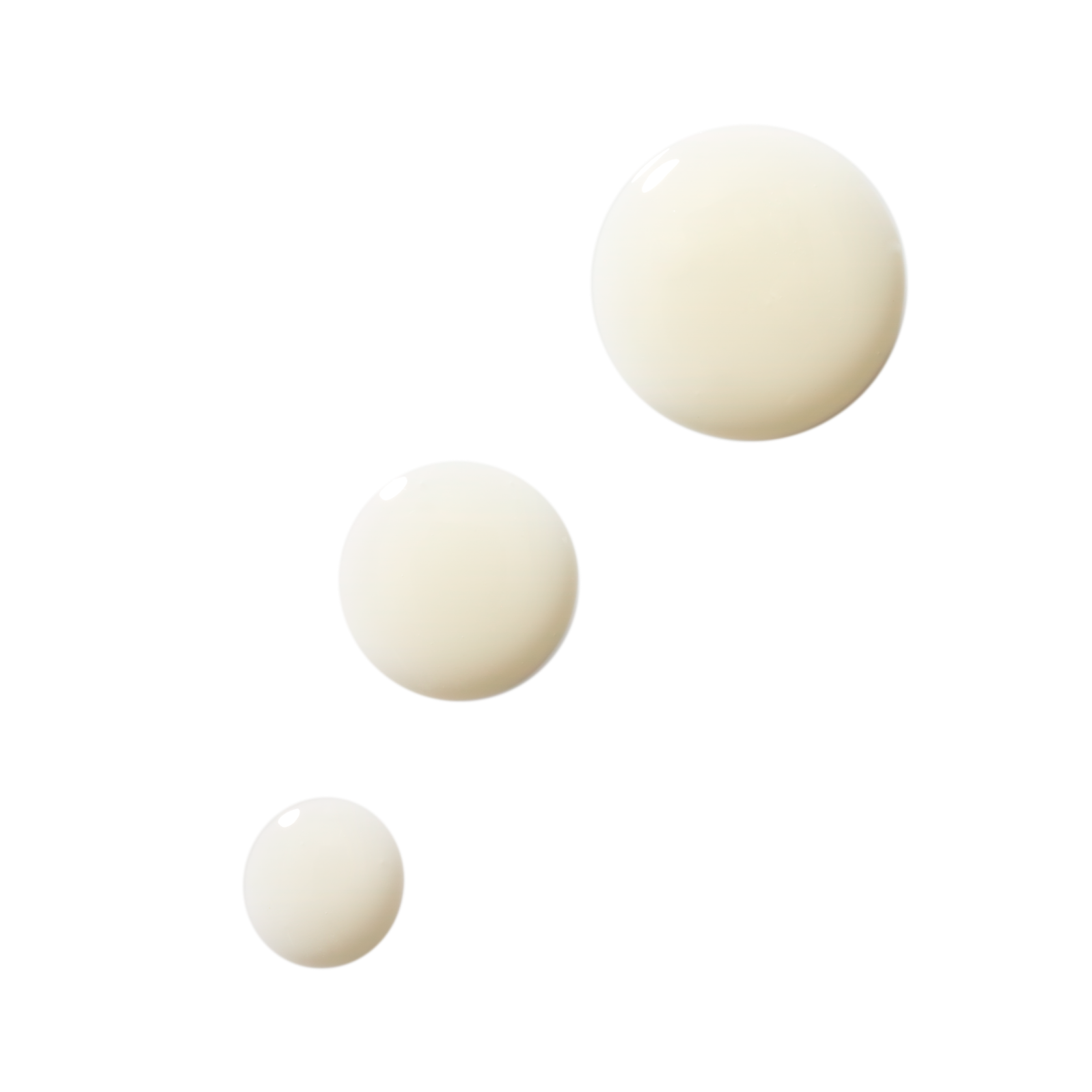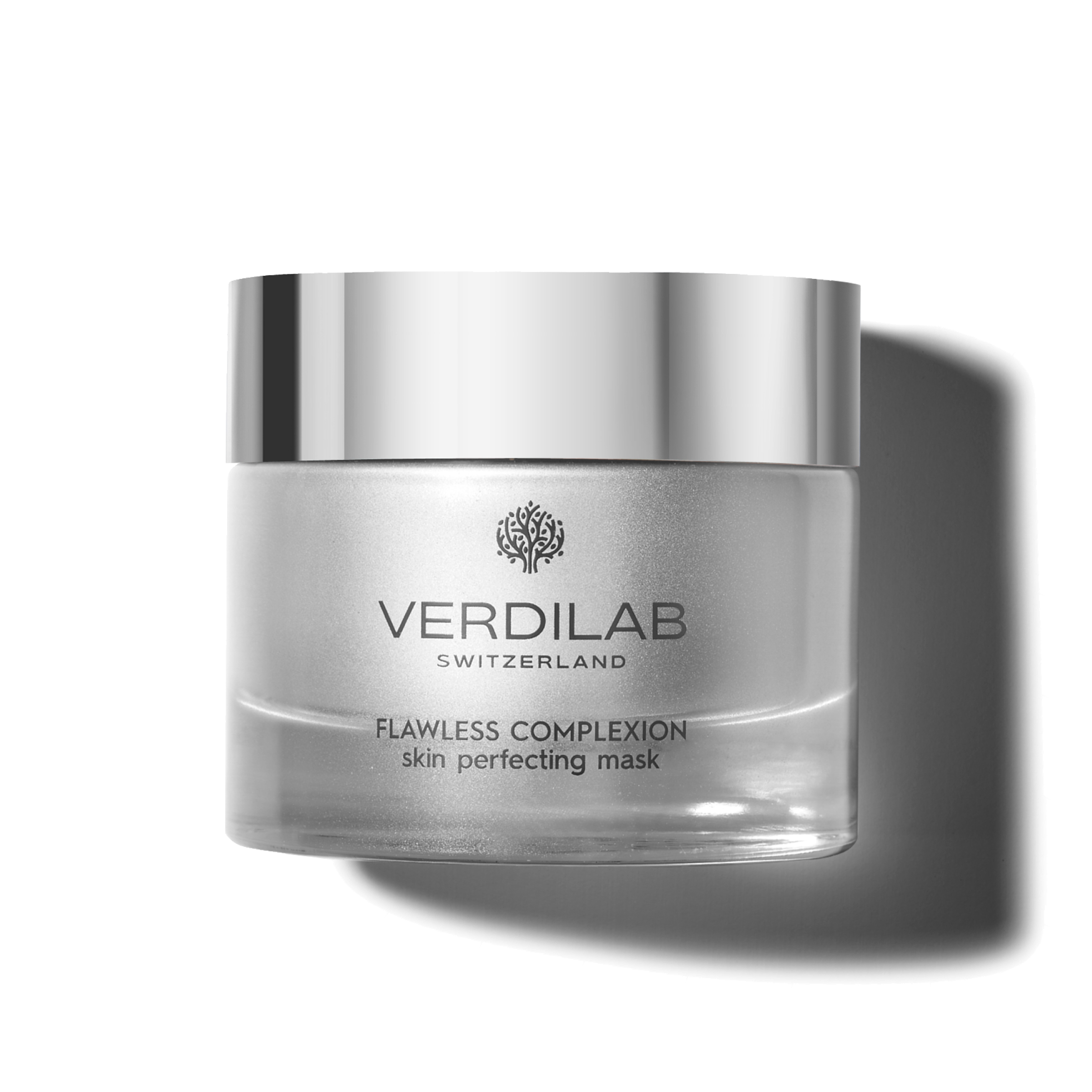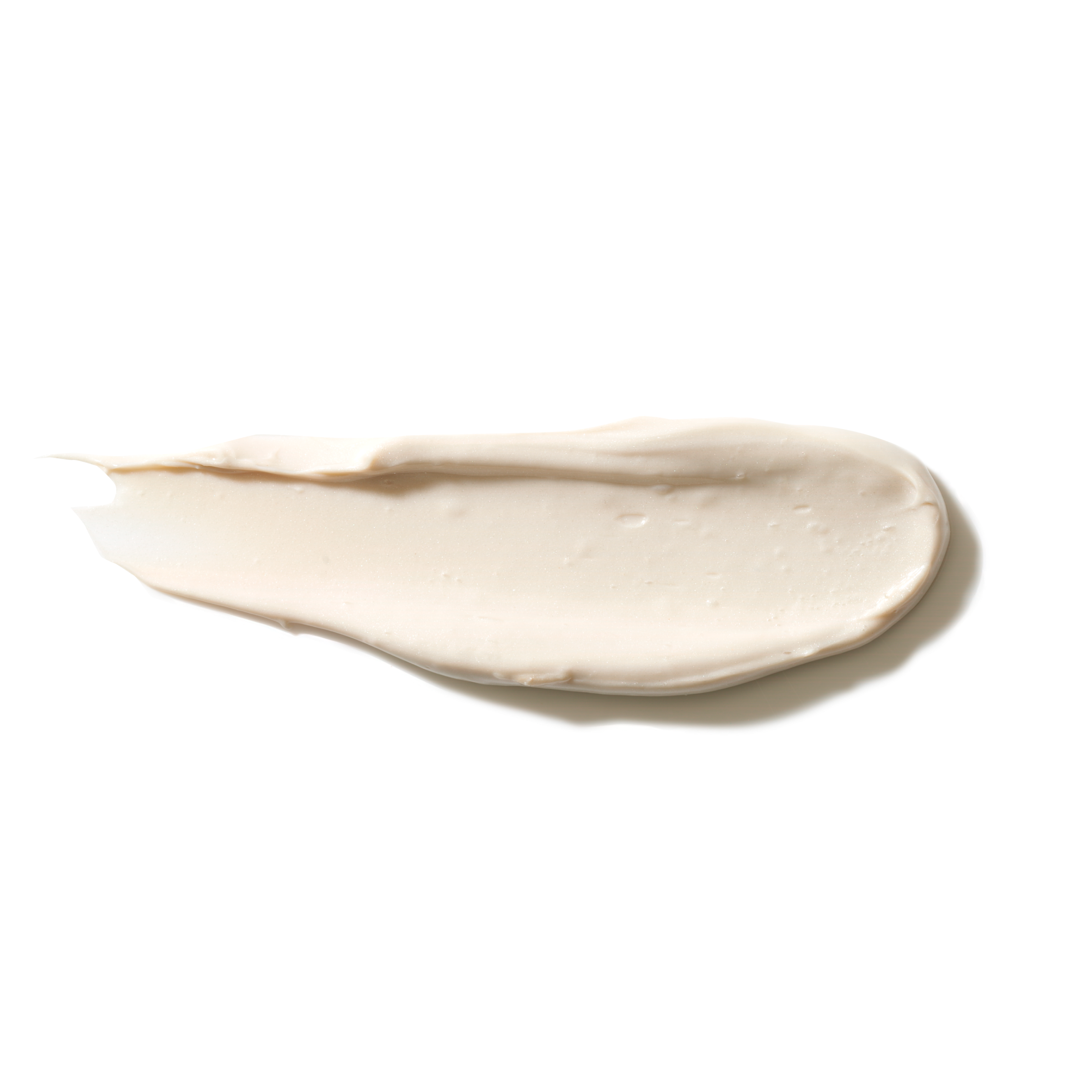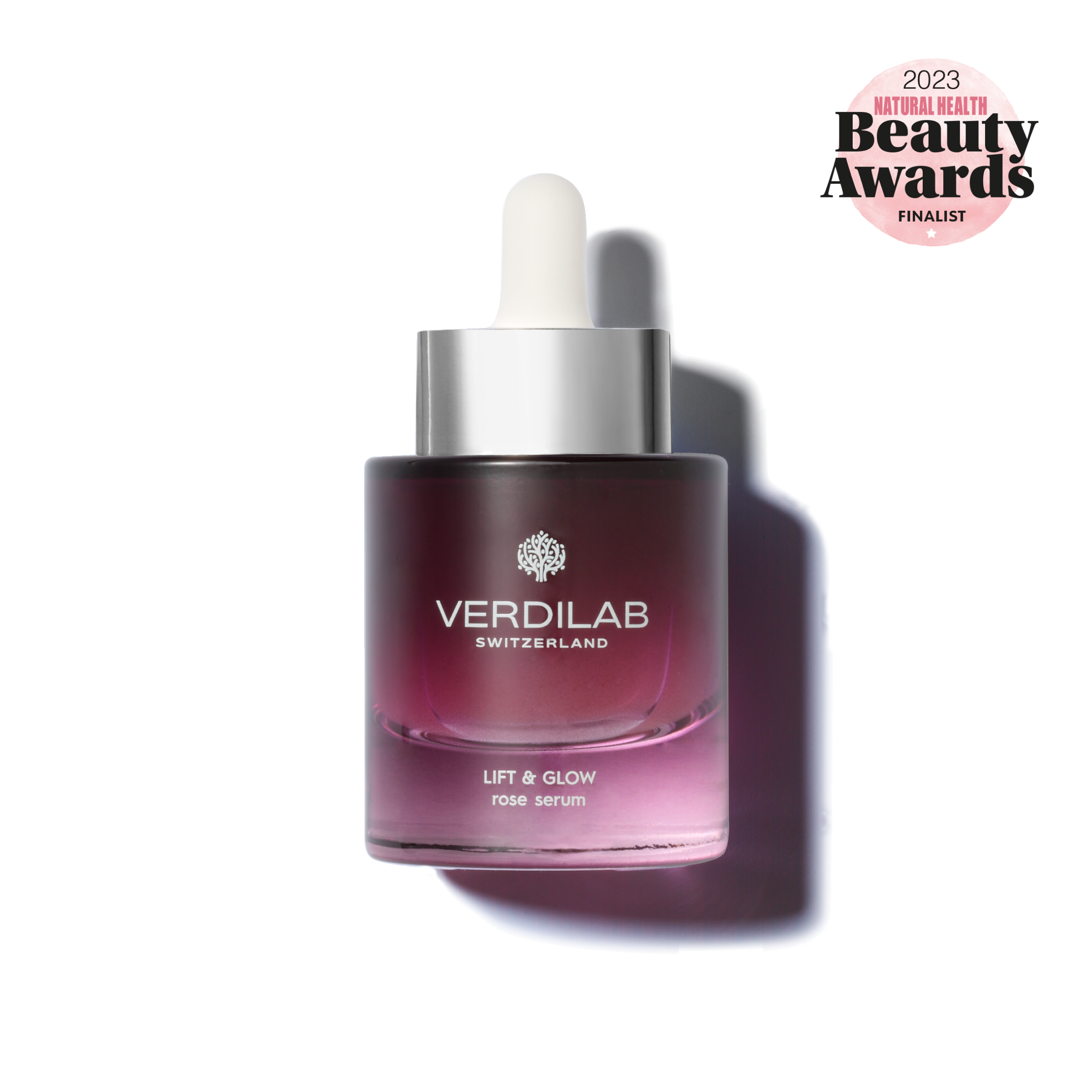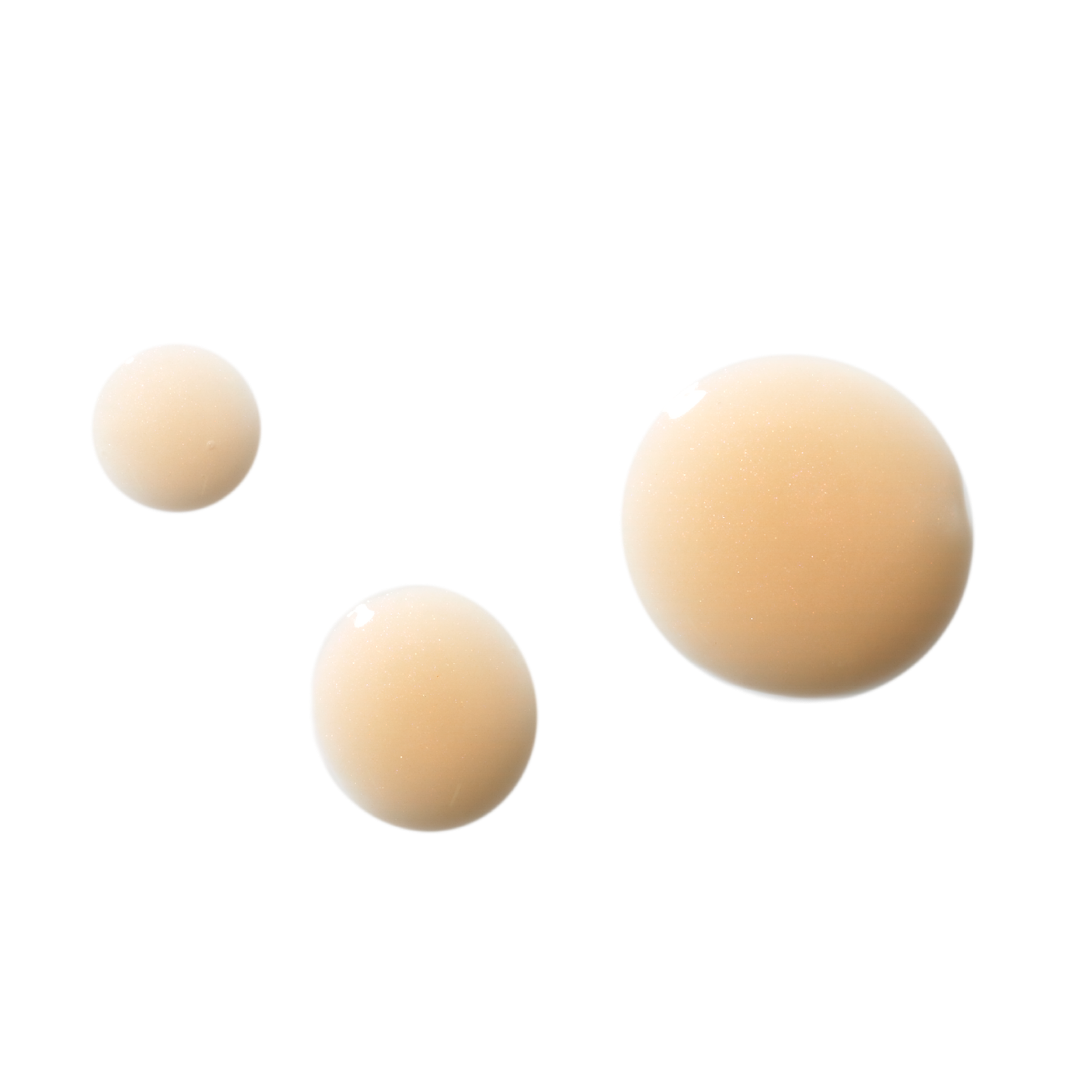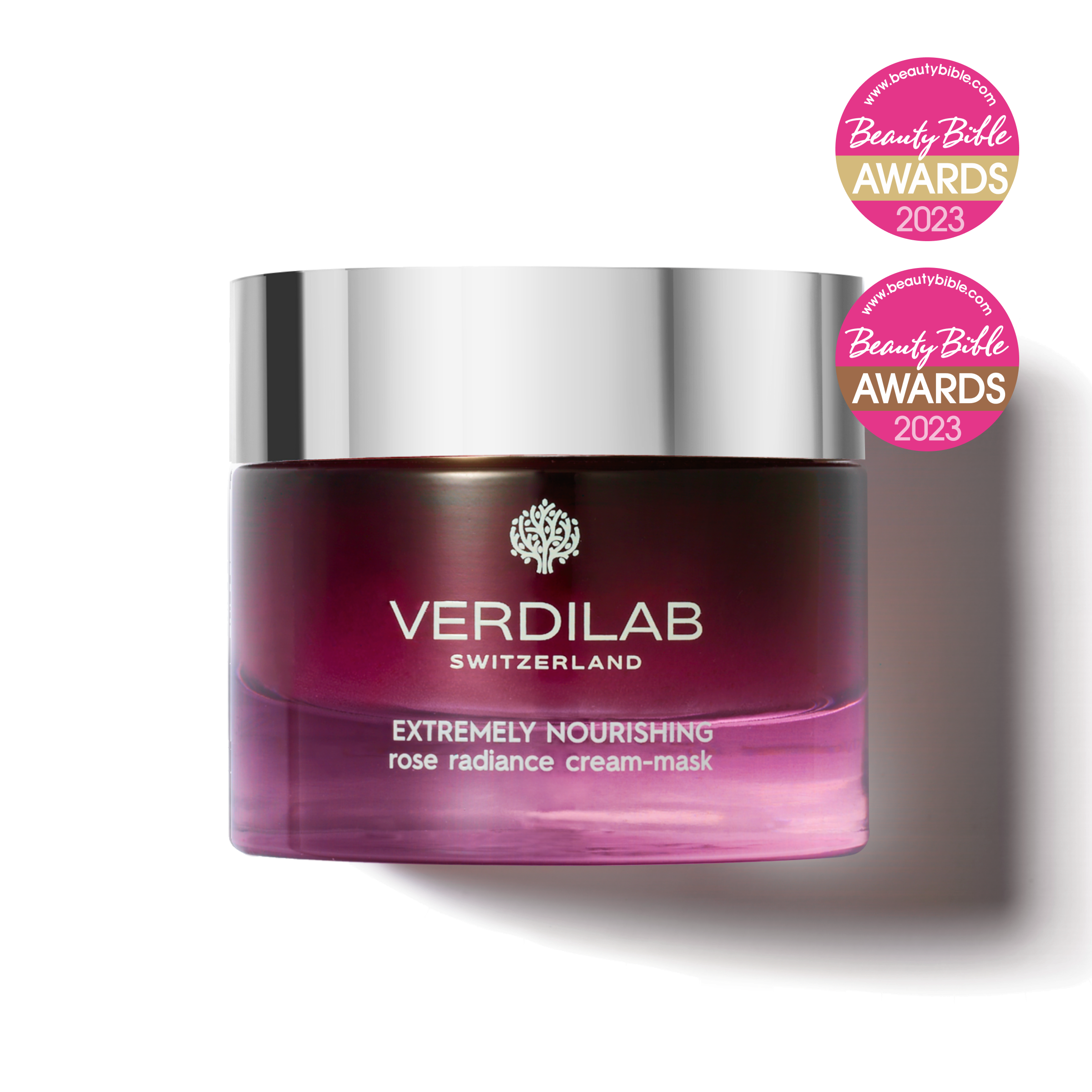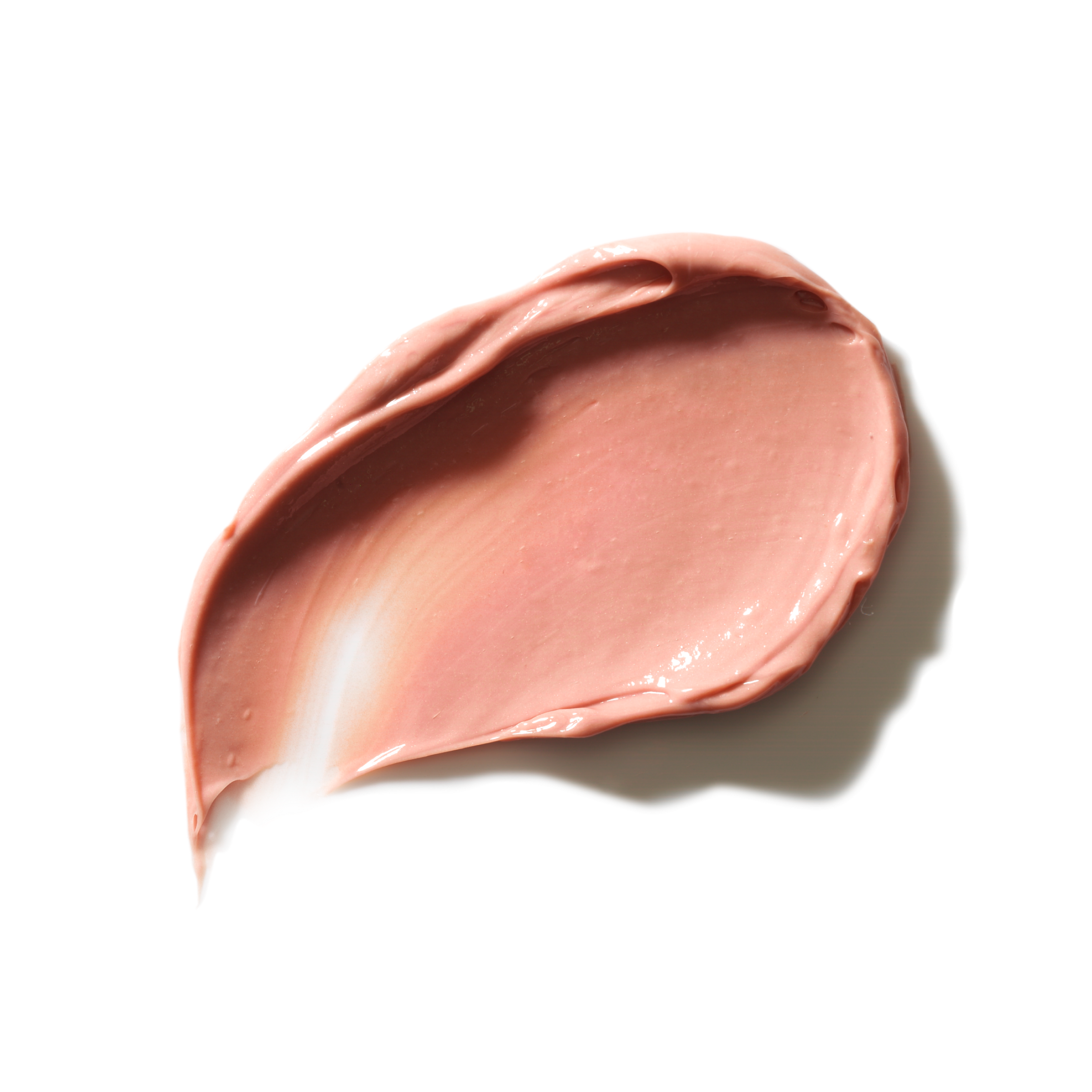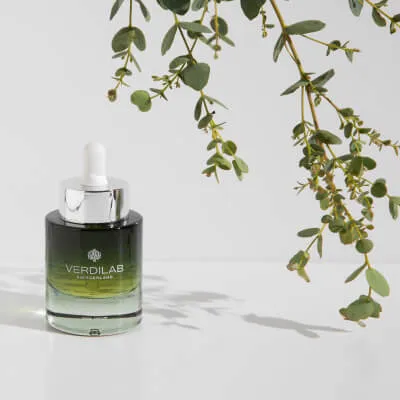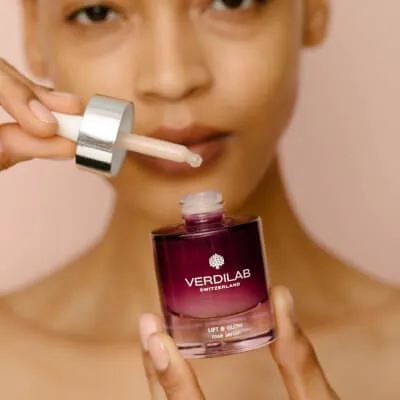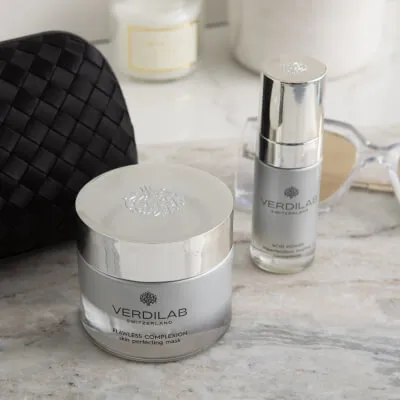Dermo Protocol No. 2.0 Skin Hydration and Cellular Pollution Protection
NATURAL MOISTURIZER Probiotic Cream
NATURAL MOISTURIZER Probiotic Cream
It is a unique hydrating and protecting skin care that supports the healthy balance of the microbiome and protects against all types of pollution by acting as a unique protective biomimetic shield for skin cells. It perfectly moisturizes and visibly promotes cell renewal, delivering an immediate feeling of comfort, prevents fine line formation, leaving your complexion plumped and revitalized.
Key benefits
- instantly and long lastingly hydrates the skin
- strongly supports healthy skin microbiome
- provides cellular protection against environmental pollution and damaging free radicals
- nourishes and provides healthier skin look
Is it right for me?
Do you want your skin to look hydrated and to be protected against pollutions? Do you wish to use a product that will activate the anti-oxidant capabilities of your skin, rebalance the skin microbiota and reduce redness and inflammation? If your answer is yes, this is right product for you!
Formula facts
- 100% natural & natural origins and non-toxic
- Powered by IMMUNATURNA - to provide scientifically proven strengthening of the natural immunity of the skin by boosting its regenerative and protective abilities
- Extremely rich in 25 ultra-potent Marine and Botanical actives - standarized and ethically sourced
- Superior effectiveness without overpromising - clinically tested and proven to work across people with sensitive skin
- Highest purity, going beyond Clean Beauty standards - 0% parabens,phenoxyethanol, synthetic polymers, silicones, microplastics, mineral oils, alcohol, and other irritants & synthetics - - see full black list
-
100% Vegan - Certified by Vegan Society

- Cruelty Free - never tested on animals
- High affinity to the skin, pH=5.0-5.5
- Safe for sensitive skin
How to use
Apply a small amount (the size of two peas would be enough as this cream is very efficient) morning and night on a cleansed face and neck, gently patting into the skin.
You can also safely use this cream around the eyes, as it has been ophtalmologically tested.
For better results use our signature VERDILAB GLOWING FACE MASSAGE.
It is a perfect base under make up as it absorbs very quickly and does not overburden the skin.
- Aloe Barbadensis
- Licorice Root
- Moisturising Complex of Natural Sugars
- Sea Lavender (Limonium Gerberi)
- Natural Prebiotic & Probiotic Complex
- Marine Prebiotic Complex
Clinical
Study Results
You don't have to take our word for it. Discover the real results delivered by this product, confirmed by clinical tests on subjects with sensitive skin immediately after use as well as after just 4 weeks of use! Confirmed results include instant and long-lasting skin hydration, microbiome protection, nourishment as well as well-rested and healthy-looking skin.
moisturizes the skin
nourishes
softens and reduces discomfort of dry skin
skin feels fresher and looks healthier
skin looks more energized and rested
firms and smooths the skin, brings an immediate feeling of comfort
extremely high level of anti-oxidant activity
over 98%***
increases leavel of skin hydration in just 1h after application
up to 96%***
long-lasting increase in the level of skin hydration (for 12h after just a single application)
up to 91%***
increase in the level of skin hydration in 21 days after application
up to 43%**
* clinical assessment by subjects aged 25-60 ** clinical study after 21 days of use Dermo Protocol No. 2.0 for controlled results *** in-vitro test in 1 h and 12h after use
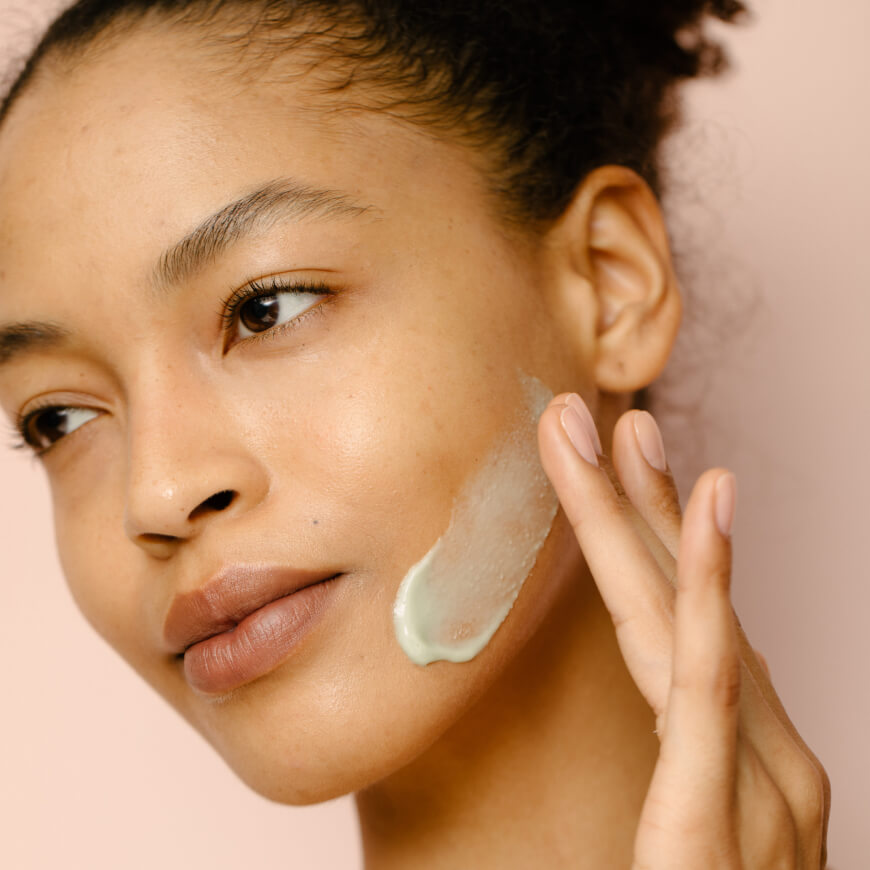
Your perfect solution for professional daily moisturizing care!
All natural. Proven to work.
This fresh, light cream absorbs very easily into the skin without stinging, and offers many benefits: an all-natural green scent, freshness, immediate hydration, and protection against aggressive environmental pollutants, including cigarette smoke and PM2.5 particles.
Despite the very light texture, its 100% natural formula is ultra-rich in 27 superior Marine and Botanical active ingredients. It ensures double protection of skin microbiota due to the unique combination of Natural Prebiotic/Probiotic Complex of plant Alpha-glucan Oligosaccharides with 100% pure juice from Yacon Strawberry Root, freez-dried Lactobacillus Probiotic Bacteria, and Marine Exopolysaccharides from Laminaria Digitata and Green Micro-Algae, which stimulate the natural defense abilities of skin cells, rebalancing skin microbiota and reducing redness and inflammations.
Phycosaccharides obtained from Brown Algae act as an invisible guard to capture pollutions such PM2.5 particles, heavy metals and cigarette smoke, significantly reducing their penetrating into the skin. A Complex of Natural Sugars paired with vegetable Squalane boosts skin hydration and promotes cell oxygenation. The highest quality standardized Licorice Root, the rich source of Glabridin in combination with Organic Aloe juice and Green Tea extract brings potent anti-oxidant, lightening and regenerating abilitie to the skin.
Beauty rules
CONTAINER
Made of 100% recyclable and partly recycled glass.
SEALING FOIL
Made of 100% recyclable aluminium.
LID
Made of 100% recyclable PP, Ecocert approved
CARTON BOX & LEAFLET
Made of 100% recycable, FSC-certified paper from responsibly managed forests that provide environmental, social and economic benefits
REVIEWS
What people say about us
Our tips
How to use in
your beauty routine?
Cleanser
Bring all NATURAL CLEANSING to your daily routine to eliminate all impurities, make up and pollution from your skin without irritating or over-drying it. It is an essential and integral part of your daily regimen that prepares your skin to absorb beneficial actives.
Serum
Recharge your complexion just in 60 seconds the 100% natural superpower botanical actives in our SERUM - just few drops of this potent booster will have a magical effect on your face.
NATURAL MOISTURIZER Probiotic Cream
Regular use of NATURAL MOISTURIZER is one of the most important steps in your daily skincare routine. It superbly hydrates, protects from pollution, adds radiance and supports the microbiome. What more could you want from your cream?
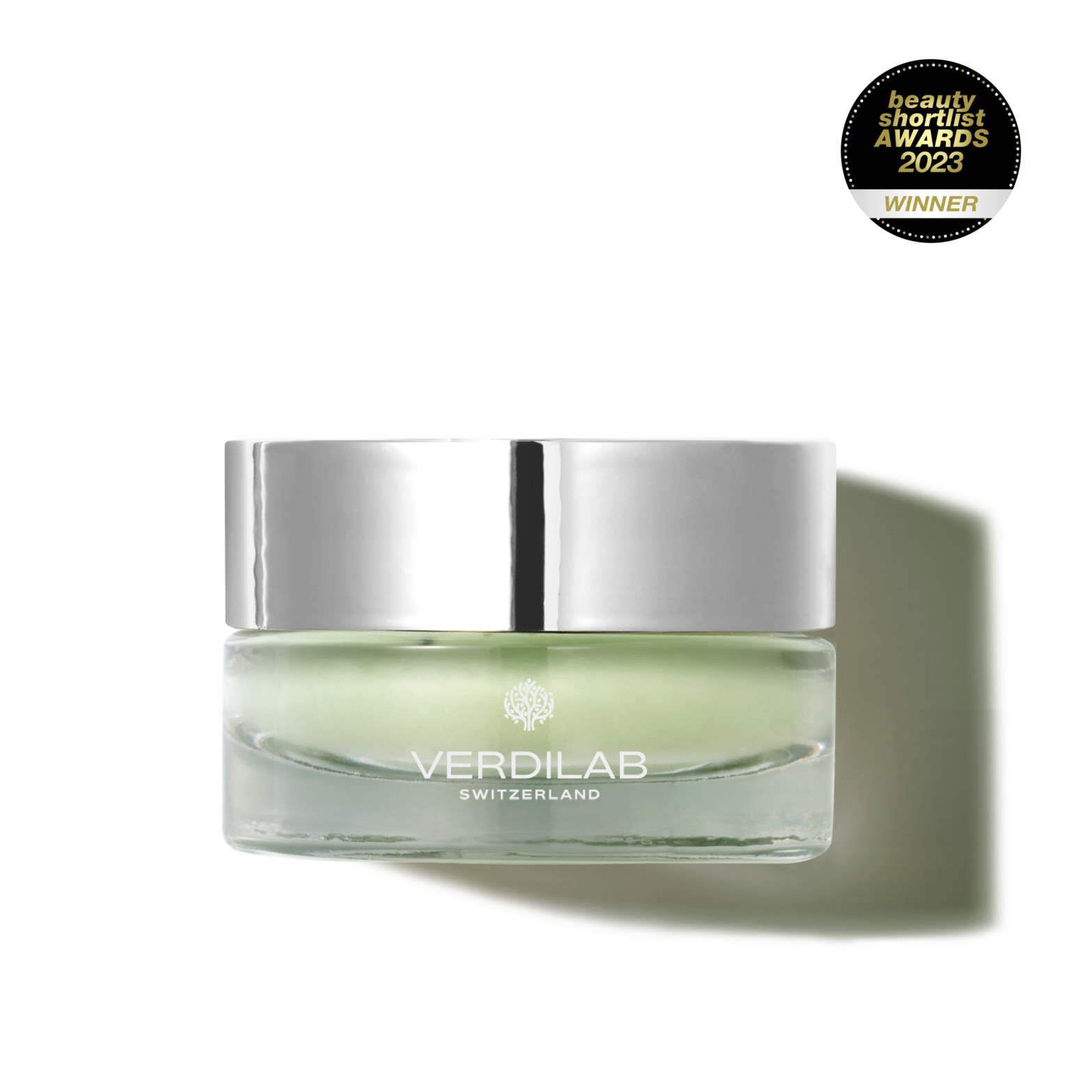
Face Mask
Use this luxurious all-natural night mask to visibly transform your skin. Combine with massage techniques to help drain toxins and soothe signs of fatigue for lasting relief!
DISCOVER MORE
Recommended Products
Our cutting-edge, patent-pending Signature Complex, based on 50 years of scientific research, is at the heart of VerdiLab cosmetics. It is the first fully natural proprietary composition that boosts the immune capabilities of the skin. Powered by the unique properties of natural RNA, it combines synergistically working natural compounds with a biomimetic transdermal delivery system. Engineered to bring a new level of effectiveness to skincare.
ACCELERATES SKIN’S INNATE ABILITIES TO REPAIR DAMAGED CELLS
BOOSTS SKIN’S REGENERATION CAPABILITIES
ACTIVATES SKIN’S NATURAL DEFENSES AGAINST EXTERNAL AGRESSORS
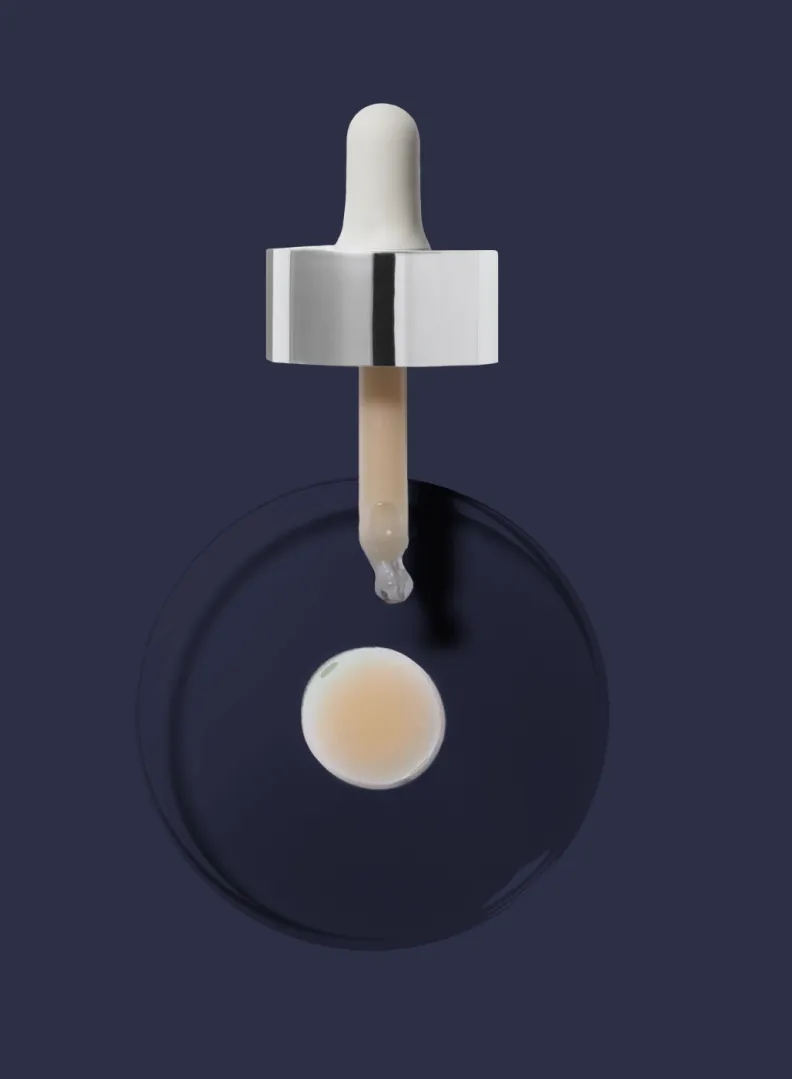
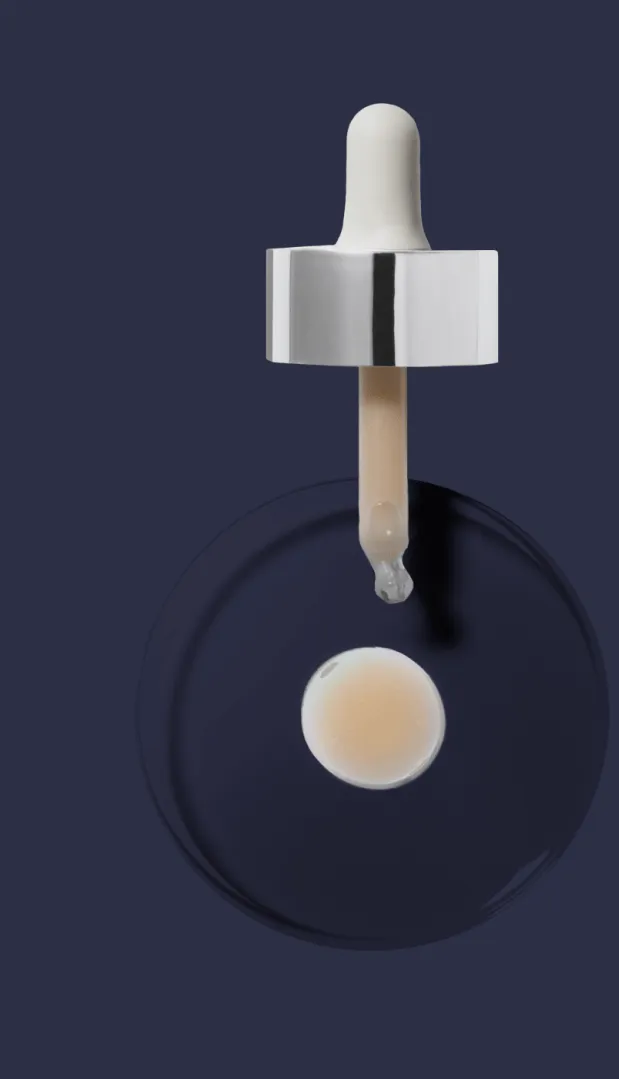

MEET OUR FOUNDER
 VERDILAB is my personal contribution for the betterment of the health of our skin and our planet.
VERDILAB is my personal contribution for the betterment of the health of our skin and our planet. 
My dream was clear - I wanted to create 100% natural and non-toxic skincare that has a power to support immunity of the skin. To go beyond Clean Beauty offering cosmetics without any synthetics or irritants. Because I believe in the healing power of pure nature, and I want to share this power with you. If we know nature well, understand it intimately and use it properly, it can do miracles, changing our skin, our body, and our life for the better. That is why I would like to inspire You to re-think and revise Your approach to beauty. For the sake of Your health and Our environment. I’m Victoria, a 3rd generation medical doctor with over a decade of hands-on experience in the cosmetics industry.
Discover my story
Follow Us On
Instagram

Join our club to get additional benefits & exclusive offers
Everything we do is based on science, knowledge and passion - we are happy to share them with you to have the healthiest skin and life possible.
Your opinion is crucial for us, and we would like to give you a unique opportunity to directly influence what we create and implement.

Full ingredients list
- Ascophyllum Nodosum (Organic Algae) Extract*
- Glycerin (Vegetable)
- Aqua (Water)
- Propanediol
- Centaurea Cyanus (Organic Cornflower) Flower Water*
- Cetearyl Alcohol
- Pentylene Glycol
- Malus Domestica (Organic Apple) Fruit Extract*
- Hydrogenated Vegetable Glycerides
- Olus Oil (Vegetable Oil)
- Decyl Oleate
- Coco-Caprylate/Caprate
- Caprylic/Capric Triglyceride
- Cetearyl Glucoside
- Glyceryl Stearate
- Maris Aqua (Sea Water)
- Sodium Levulinate
- Alpha-Glucan Oligosaccharide
- Xylitylglucoside (Natural Sugar)
- Butylene Glycol
- Squalane (Vegetable)
- Anhydroxylitol
- Parfum (Fragrance Natural)
- Lecithin (non-GMO)
- Lysolecithin
- Sclerotium Gum
- Sodium Anisate
- Sodium RNA
- Betaine
- Polymnia Sonchifolia (Yacon Strawberry) Root Juice
- Xylitol (Natural Sugar)
- Pullulan
- Xanthan Gum
- Sodium Hyaluronate
- Aloe Barbadensis Leaf Juice Powder
- Maltodextrin
- Tocopherol (Vegetable Vitamin E)
- Helianthus Annuus (Sunflower) Seed Oil
- Glycyrrhiza Glabra (Licorice) Root Extract
- Hydrolyzed Algin (Marine)
- Leuconostoc/Radish Root Ferment Filtrate
- Limonium Gerberi (Sea Lavender) Extract
- Phytic Acid
- Tremella Fuciformis Sporocarp (Snow Mushroom) Extract
- CI 77288 (Chromium Oxide Greens)
- Cryptomeria Japonica Bud (Japanese Cedar Bud) Extract
- Phenethyl Alcohol, Alteromonas Ferment Extract (Marine)
- Silica
- Glucose (Natural Sugar)
- Lactobacillus
- Saccharide Isomerate (Marine)
- Laminaria Digitata (Brown Algae) Extract
- Glyceryl Caprylate
- Glyceryl Undecylenate
- Fucus Vesiculosus (Algae) Extract
- Chlorella Vulgaris (Green MIcro Algae) Extract
- Sodium Hydroxide
- Camellia Sinensis (Green Tea) Leaf Extract
- Hydrogenated Palm Glycerides Citrate
(Butylated Hydroxyanisole) may cause cancer, skin irritation and hormonal disorders.
(Butylated Hydroxytoluene) suspected of causing cancer, skin irritation and hormonal disorders.
some of them are already banned for cosmetic use because of risk of cancer and hormonal disruptions, but other (including methylparaben, ethylparaben, butylparaben, propylparaben) are still allowed to be used In cosmetics, although some studies show they can affect reproductive functions through both, male and female. Moreover, long term impact of them on our health is largely unknown.
first choice preservatives used recently by a lot of brands, also claiming themselves “clean”. Classified as toxic (for use around the mouth) and an irritant by the European Union.
known as carcinogens, can also cause neurotoxicity.
preservatives from the isothiazolinones family, that cause high risk of allergies, but still allowed by EU law to be used in rinse-off cosmetics.
- DEA
- TEA
- MEA
- ETA
- Ethylenediaminetetraacetic Acid
- Disodium EDTA
- Calcium Disodium EDTA
- Tetrasodium EDTA
- Trisodium EDTA
- Oxybenzone
- Octocrylene
- Benzophenone
- Diphenylmethanone
- Diphenylketone
- Benzoylbenzene
- Phenylketone,
- 2-hydroxy-4-methoxybenzophenone,
- Octinoxate.
- PEGs (polyethylene glycols) including compounds
- PPG
- Ethyl acrylate,
- Ethyl methacrylate,
- Butyl methacrylate,
- Methyl methacrylate,
- Hydroxypropyl methacrylate,
- Tetrahydrofurfuryl methacrylate,
- Trimethylolpropane trimethacrylate
- DBP
- DEHP
- DEP
- Acrylates Copolymer
- Acrylates Crosspolymer
- Acrylamides
- Polyacrylamides
- Polyethylene (PE)
- Polyacrylates
- Propylen Copolymer
- Polypropylene (PP),
- Polymethyl methacrylate (PMMA),
- Nylon (PA),
- Polyurethane
- Carbomere
- Methacrylate Colopymers
- Methacrylate Crosspolymers
- SLS - Sodium Lauryl Sulfate
- SLES - Sodium Laureth Sulfate
- ALS - Ammonium lauryl sulphate
- Alcohol Denat
- Alcohol, Ethanol
- Ethyl Alcohol
- SD Alcohol
- Methanol
- Propyl Alcohol
- Propanol
- Isopropanol
- Isopropyl Alcohol
- Amyl cinnamal
- Amylcinnamyl alcohol
- Anisyl alcohol
- Benzyl alcohol
- Benzyl benzoate
- Benzyl cinnamate
- Benzyl salicylate
- Cinnamyl alcohol
- Cinnamaldehyde
- Citral
- Citronellol
- Coumarin
- Eugenol
- Farnesol
- Geraniol
- Hexyl cinnamaladehyde
- Hydroxycitronellal
- Hydroxyisohexyl 3-cyclohexene carboxaldehyde (HICC), (also known as Lyral)
- Isoeugenol
- Lilial
- d-Limonene
- Linalool
- Methyl 2-octynoate
- g-Methylionone
- Oak moss extract
- Tree moss extract
